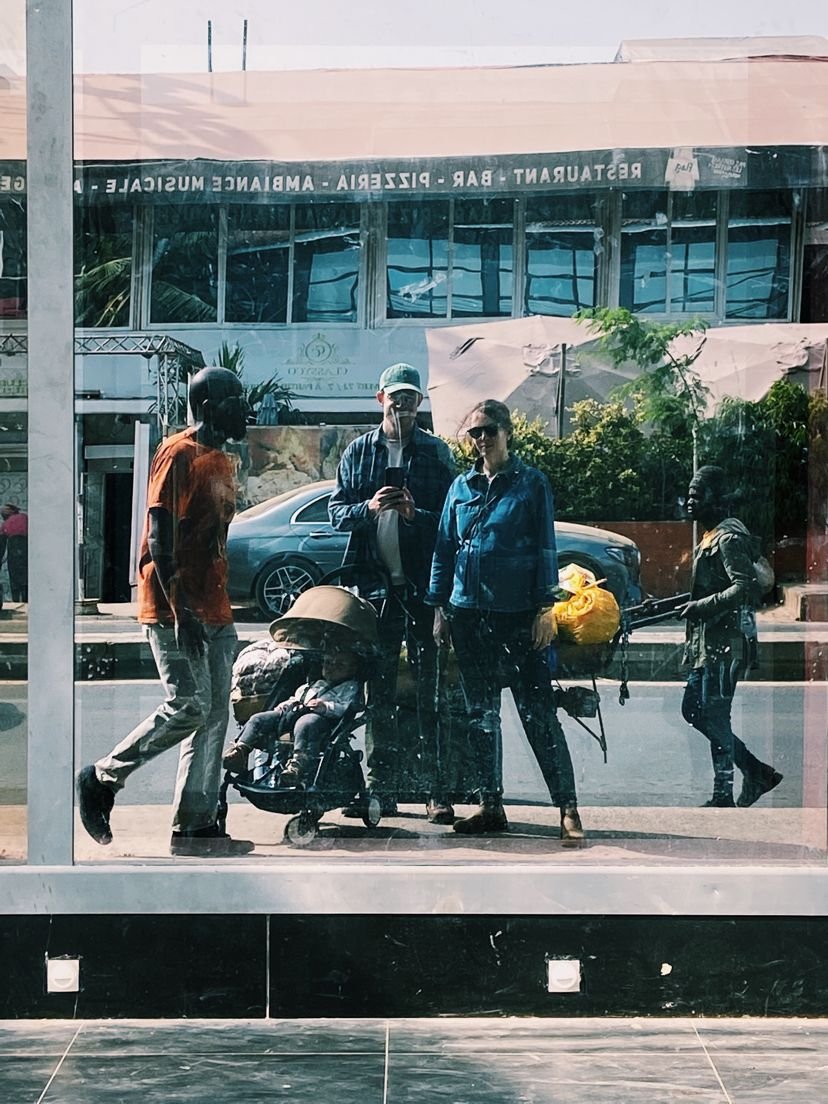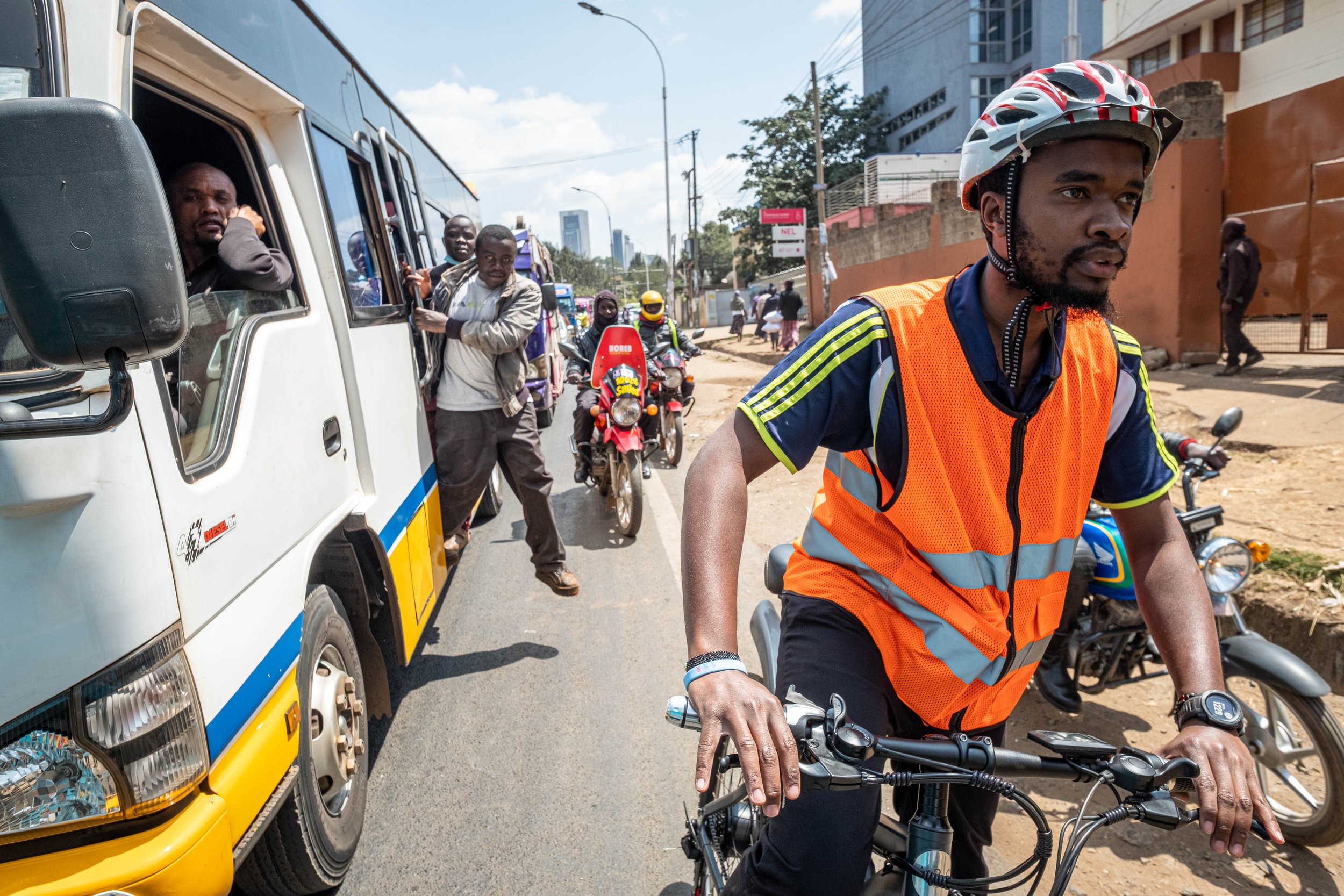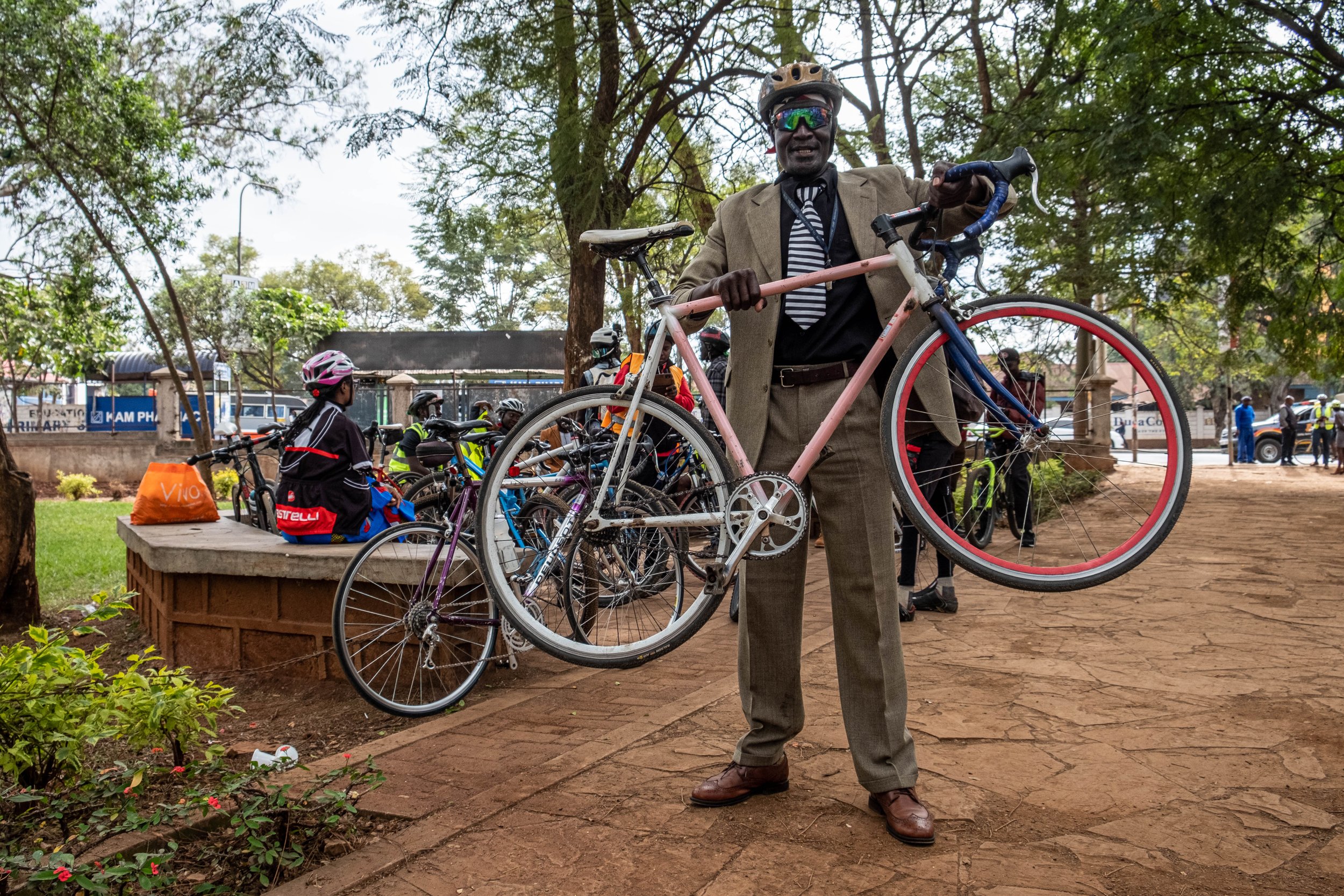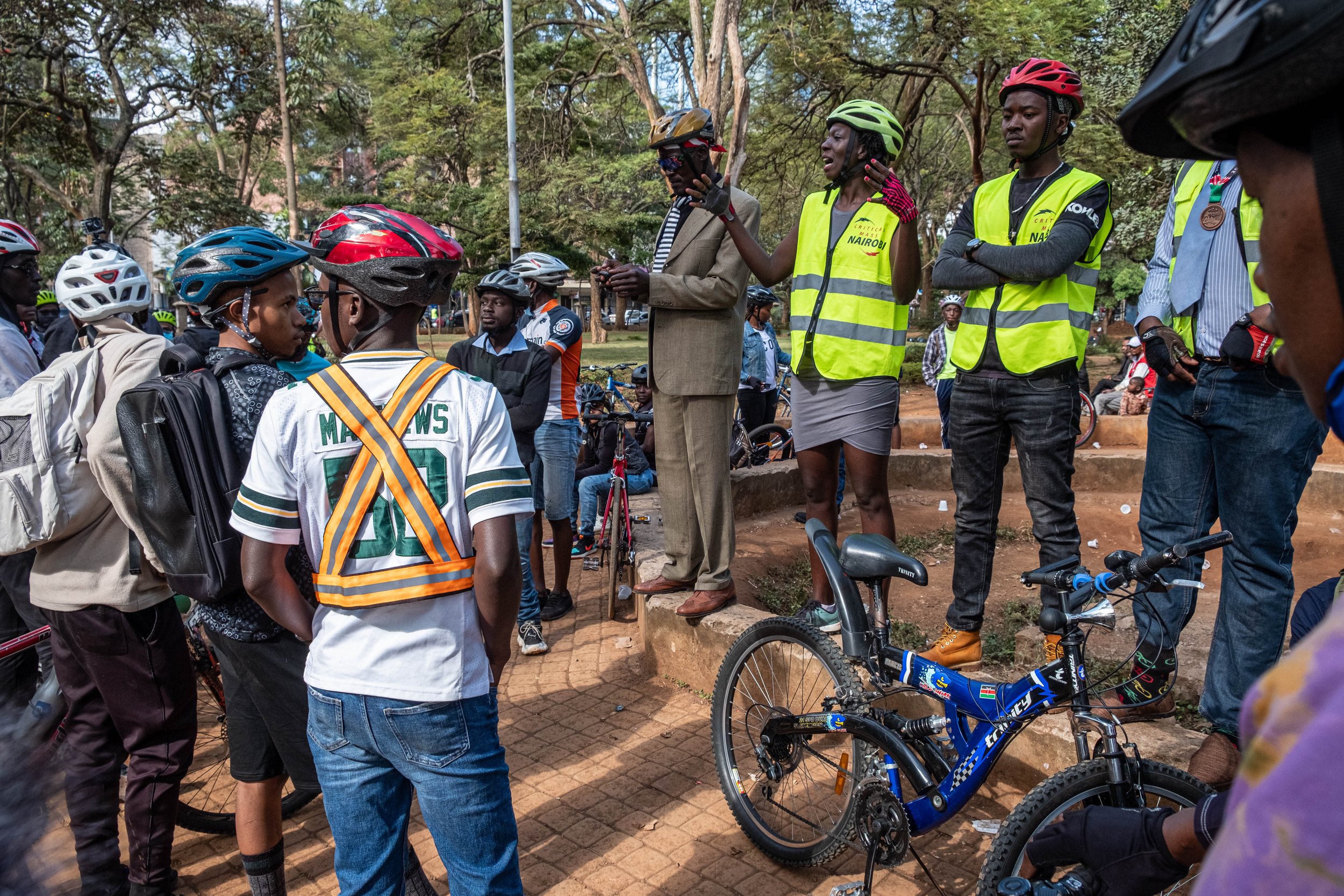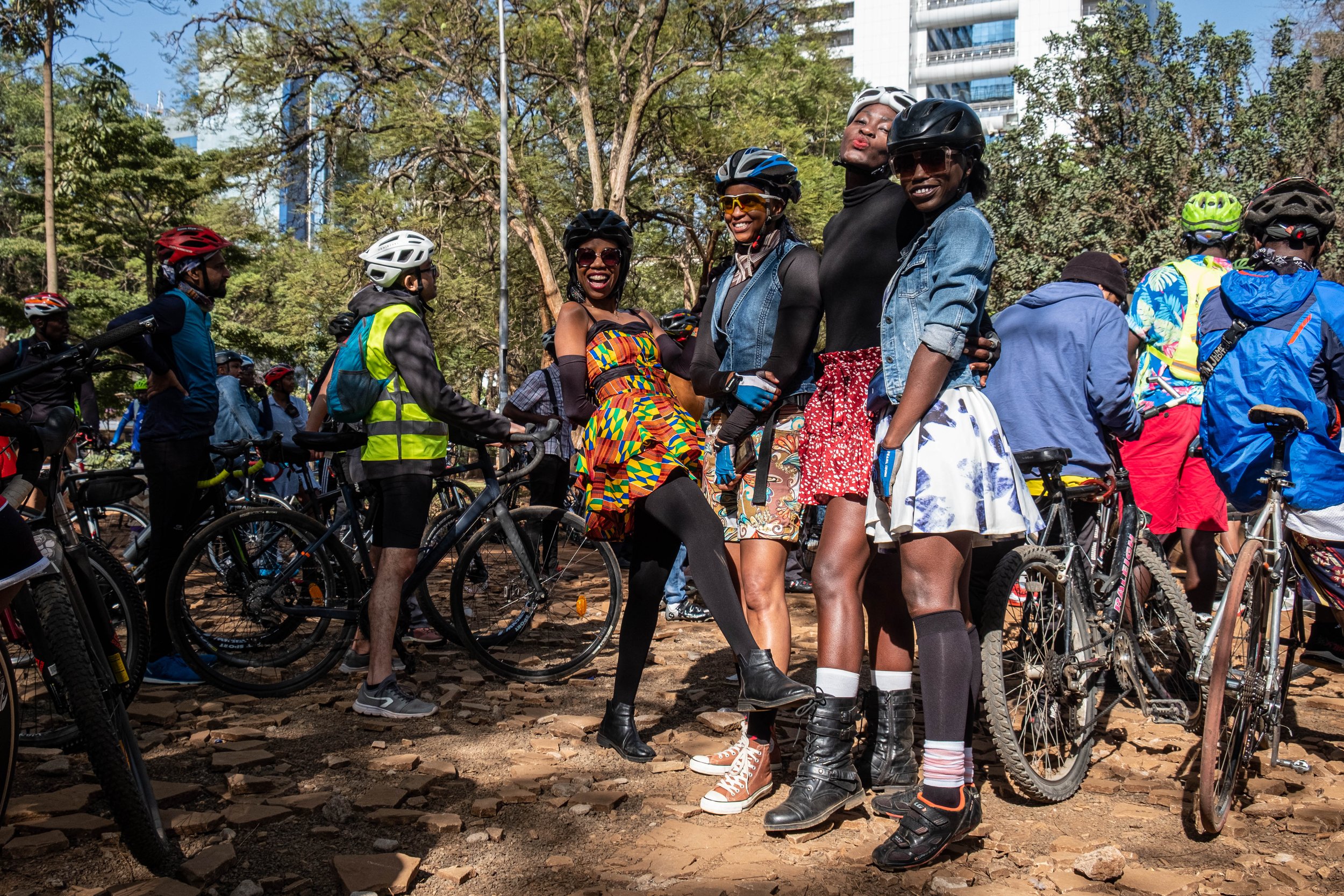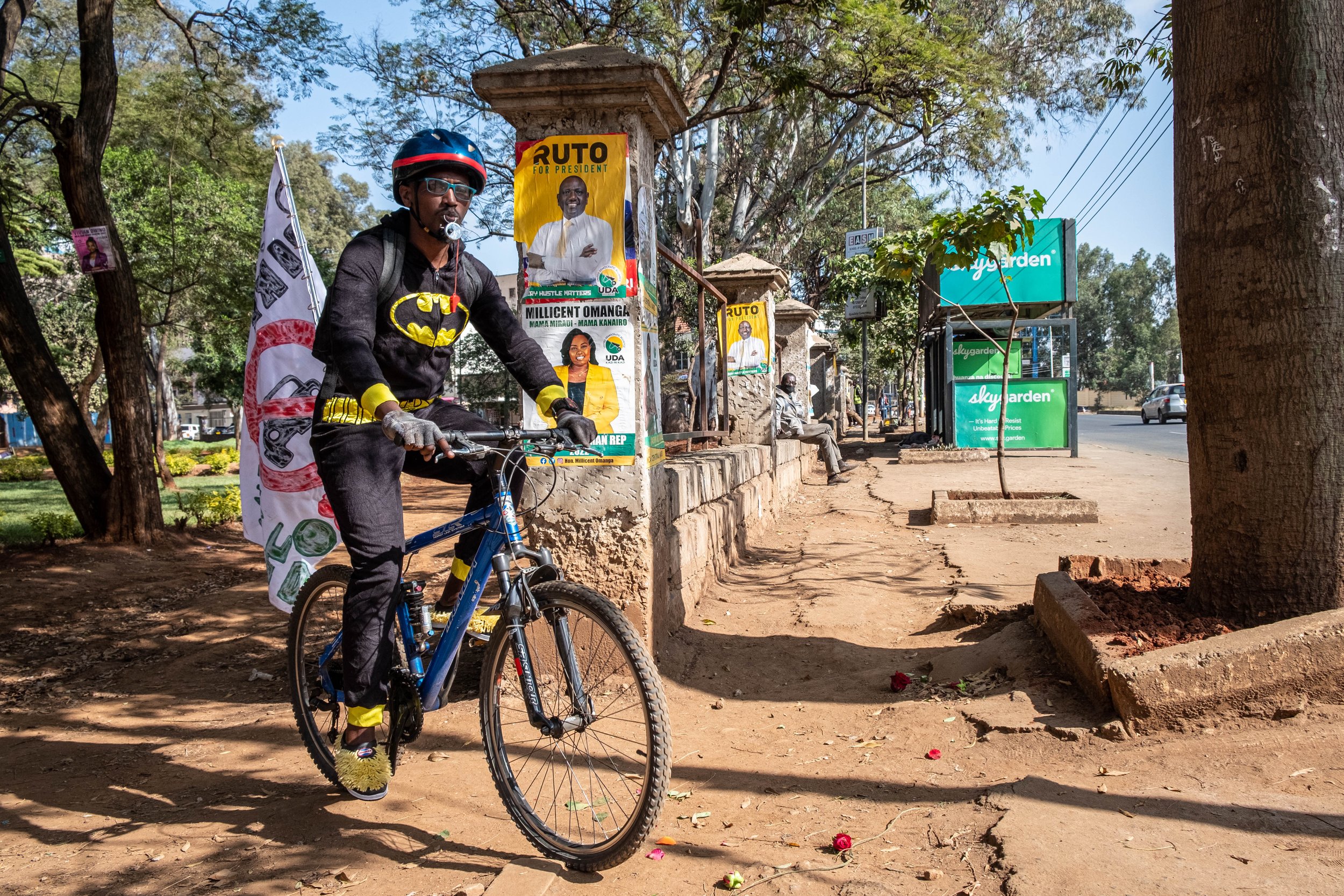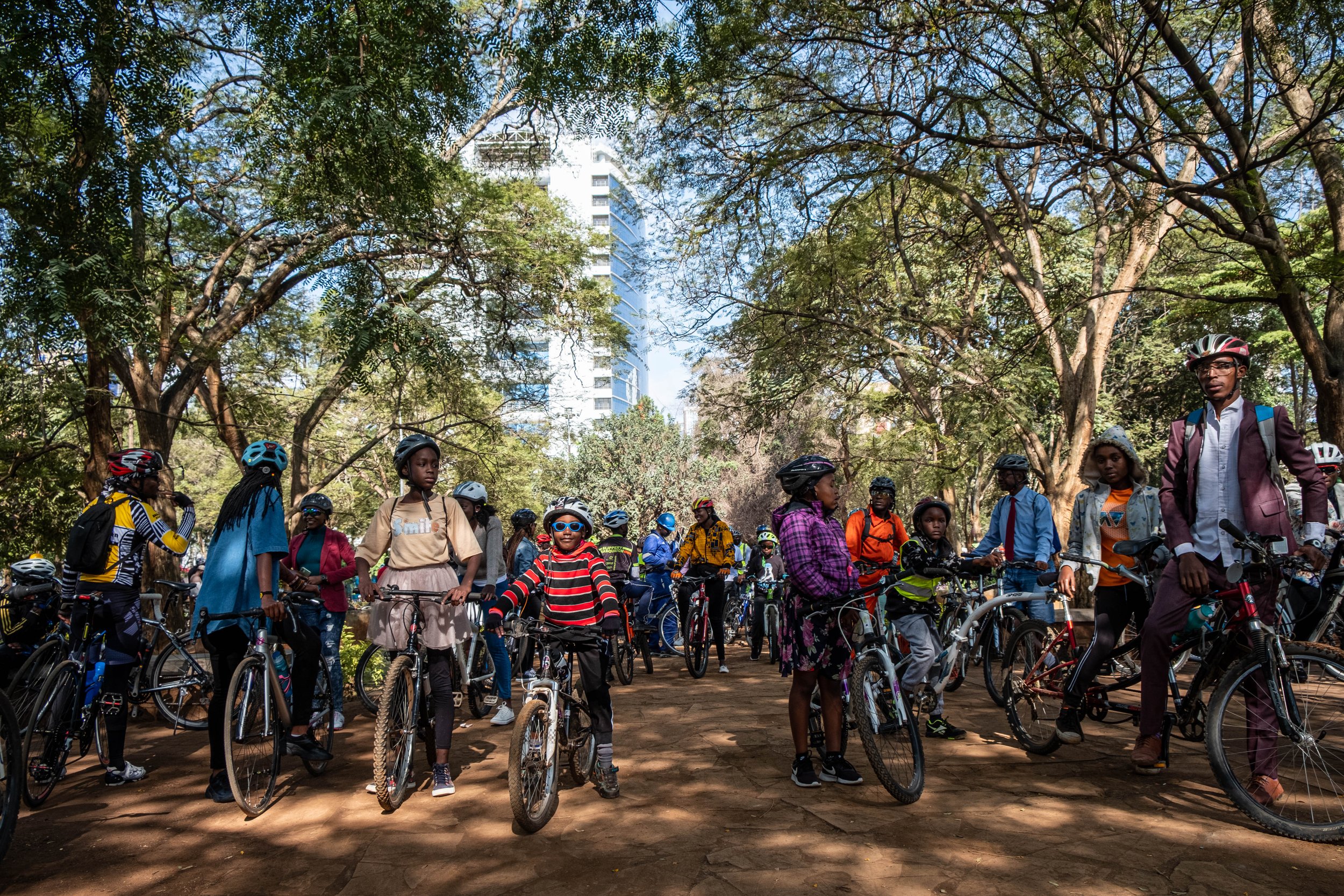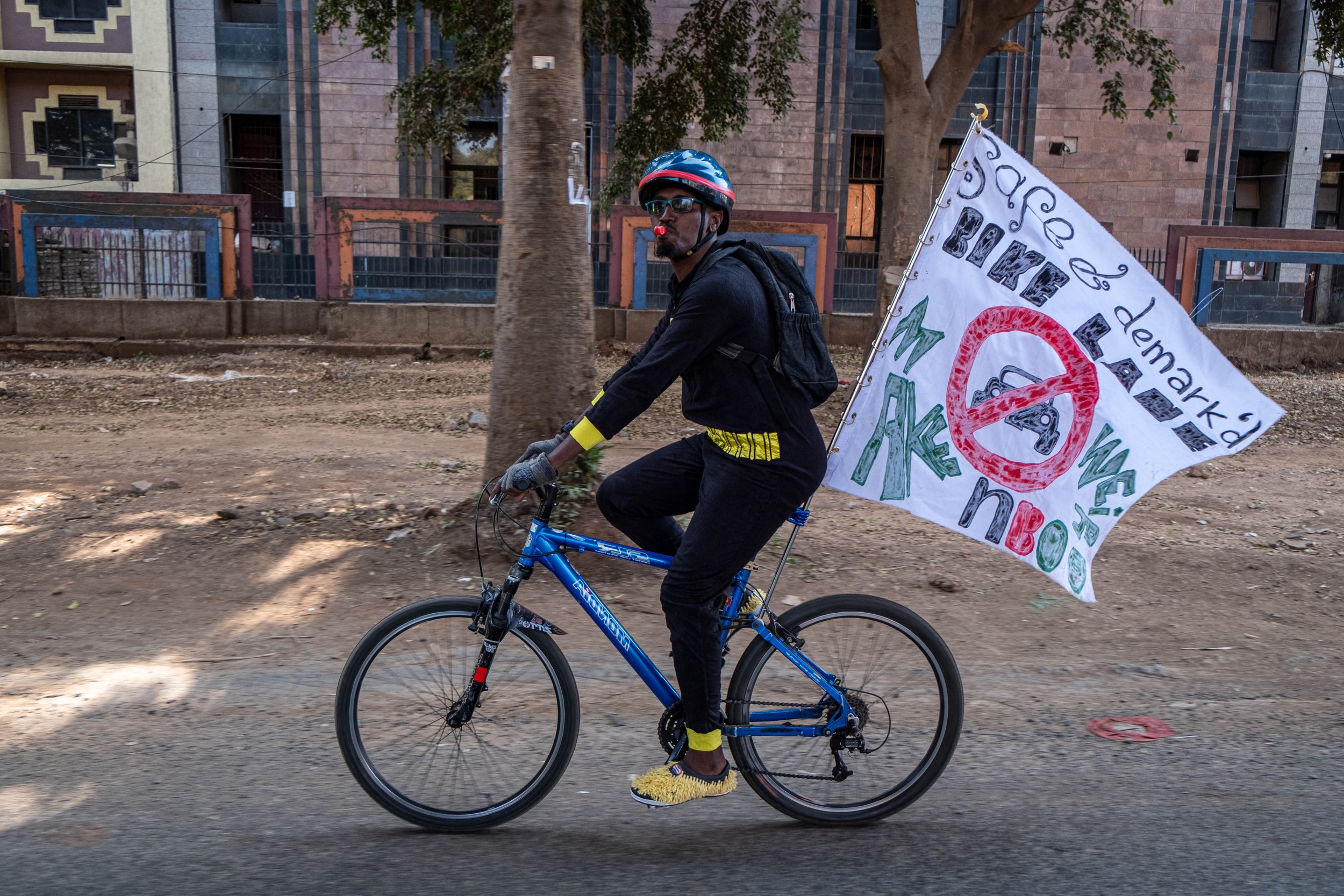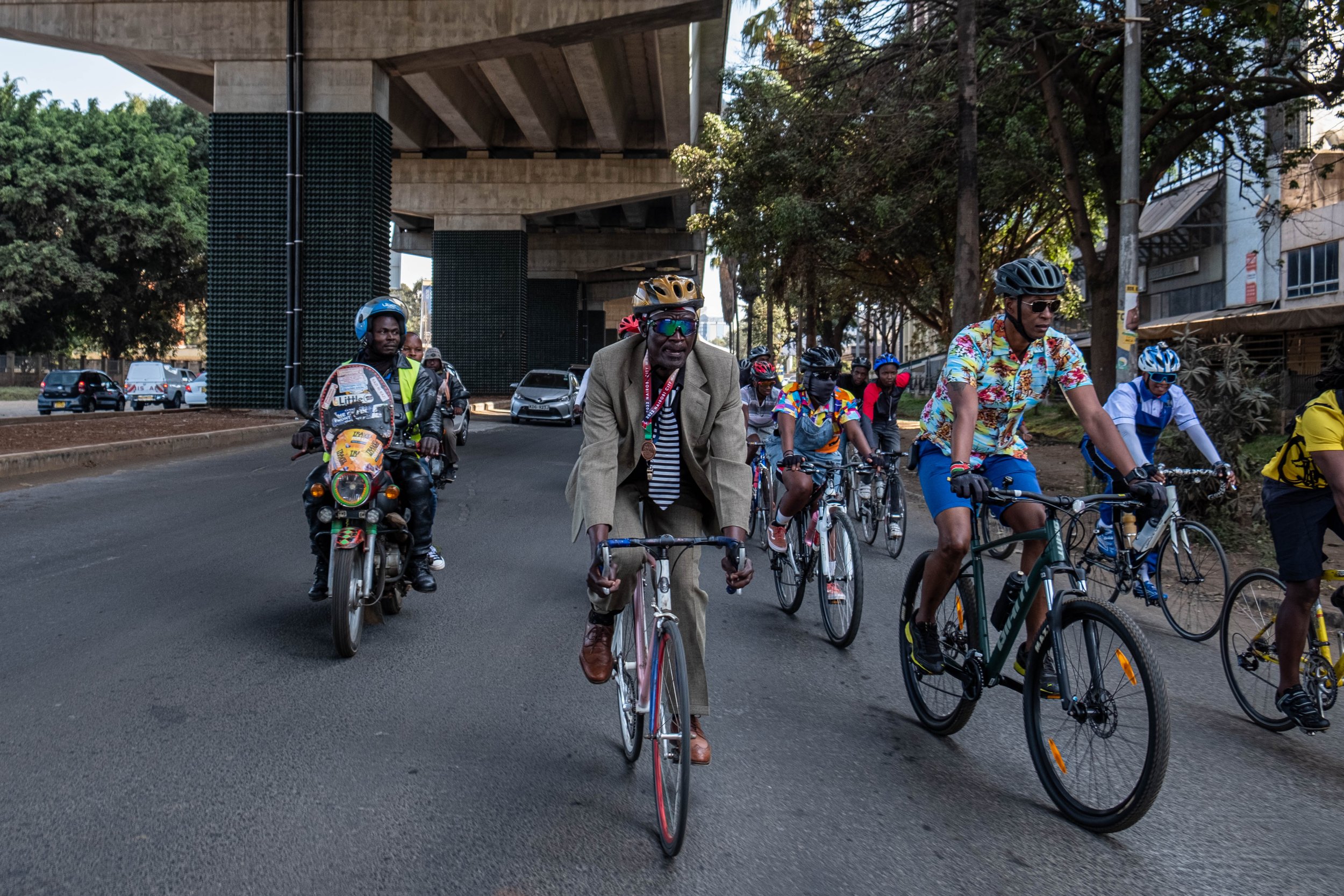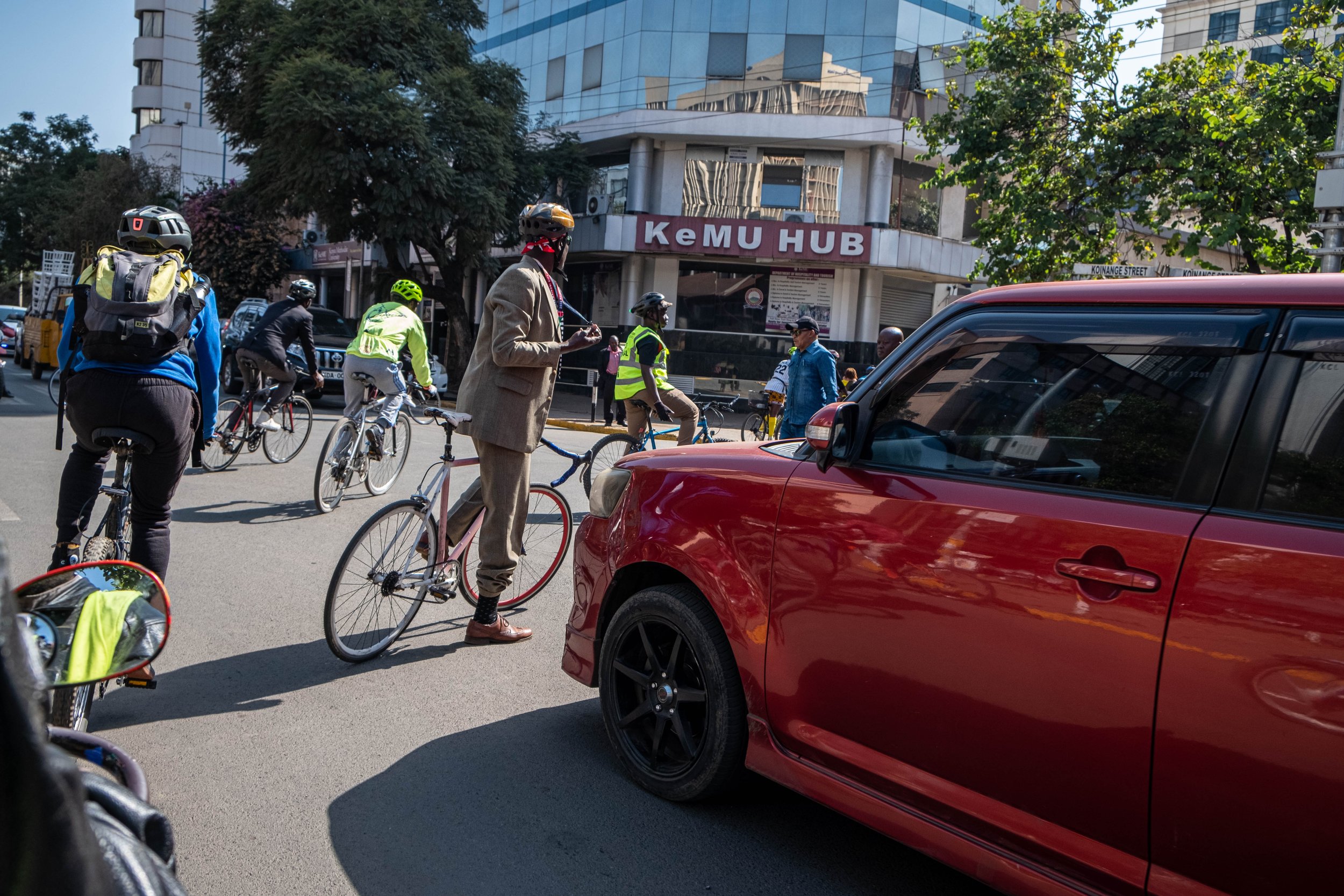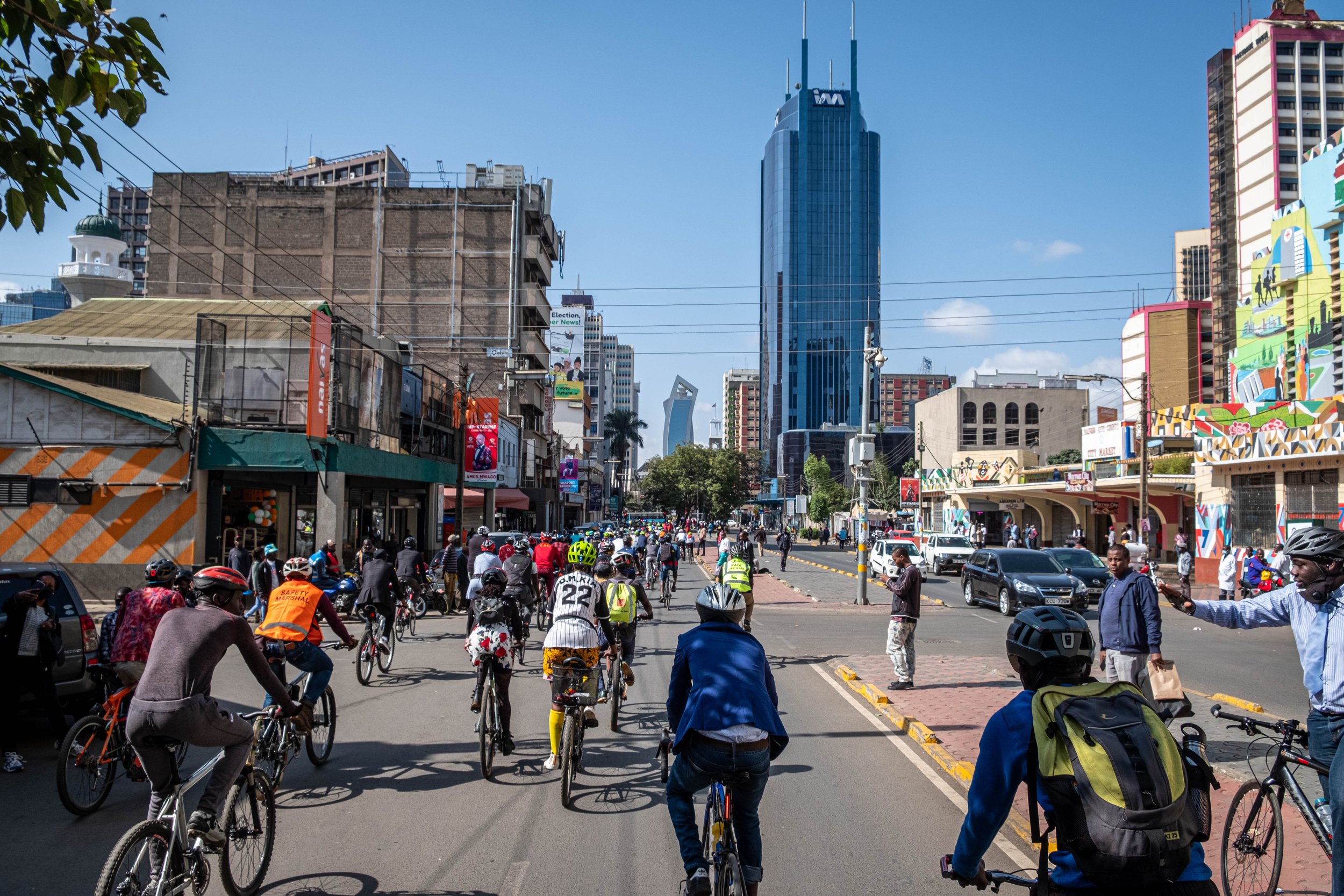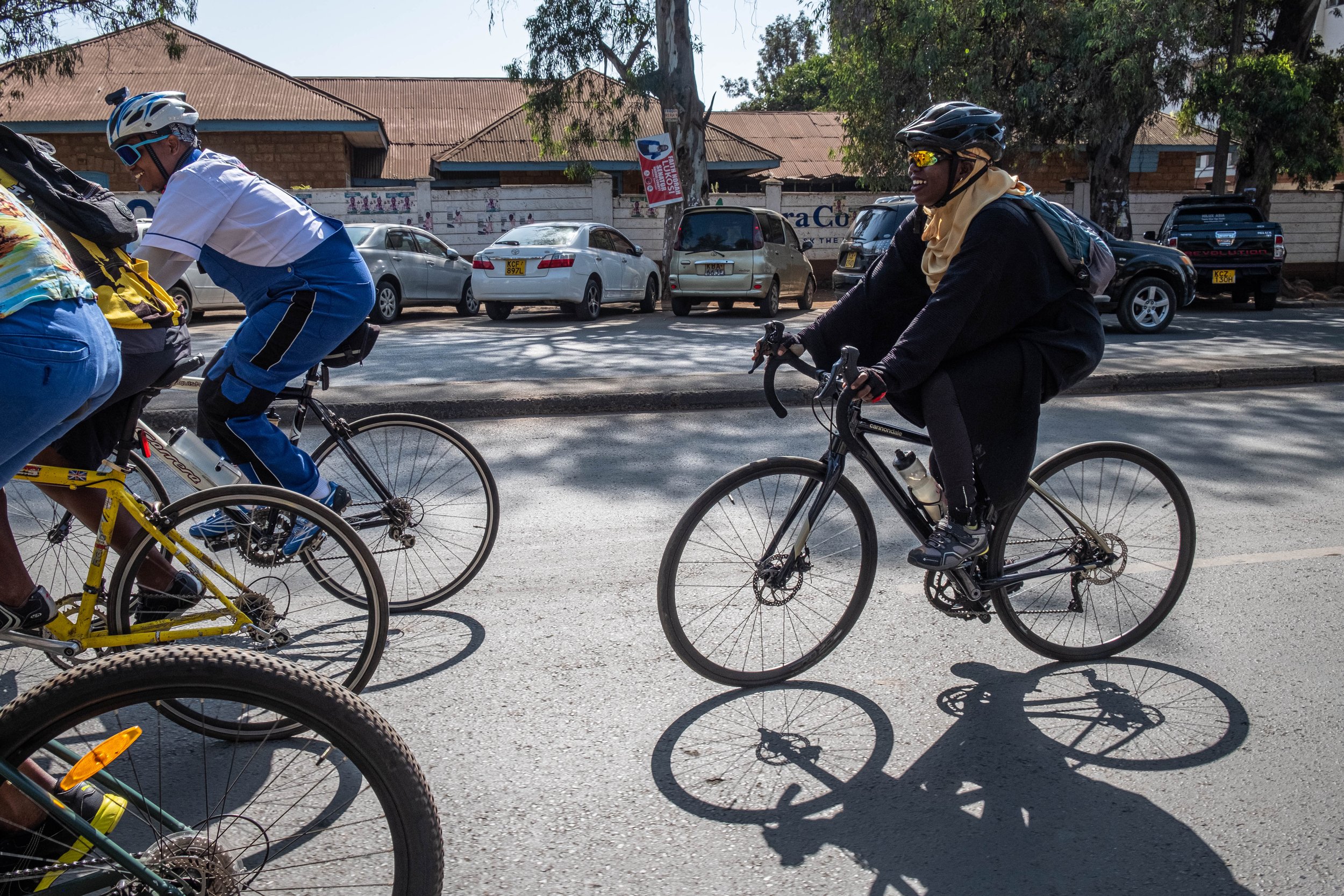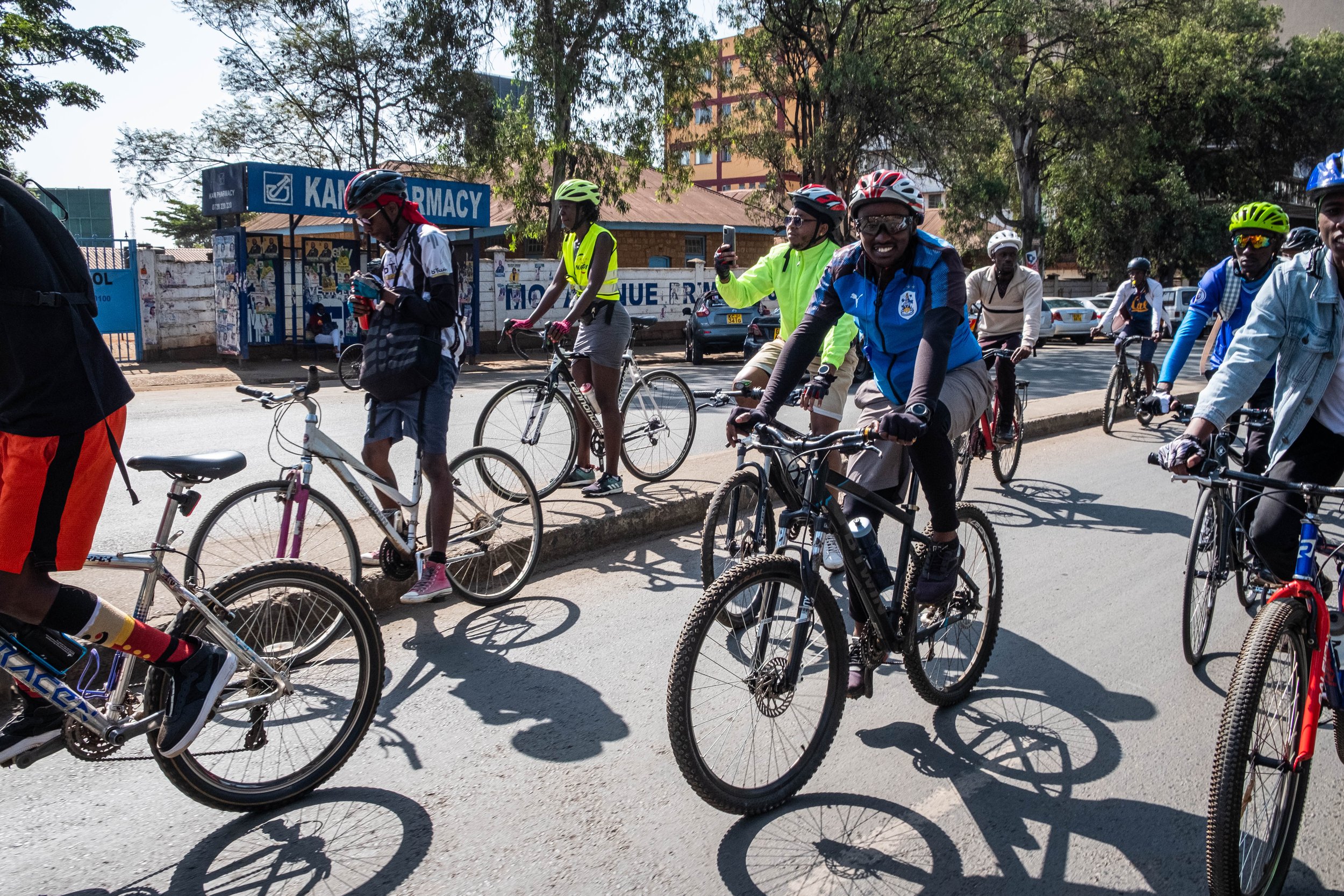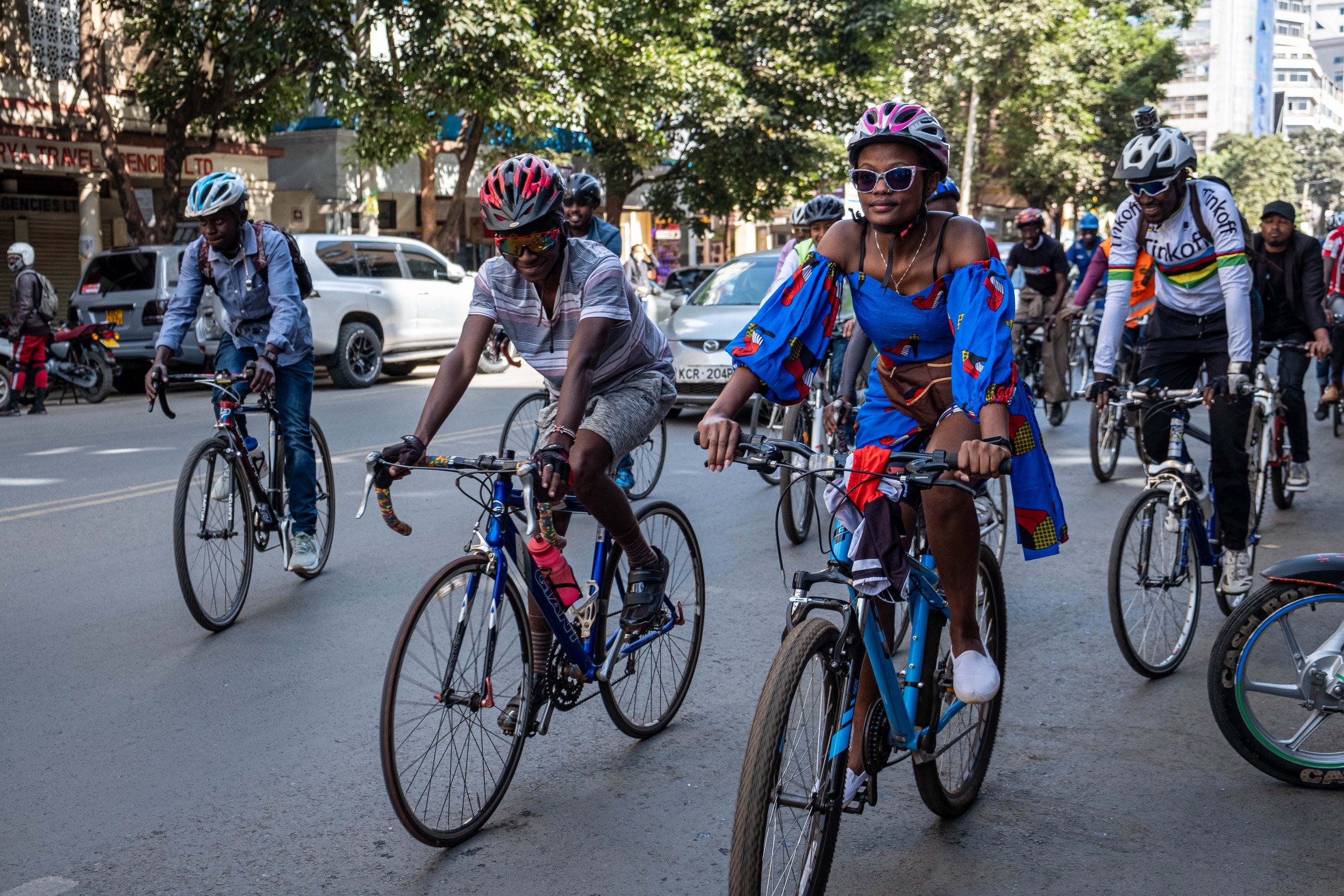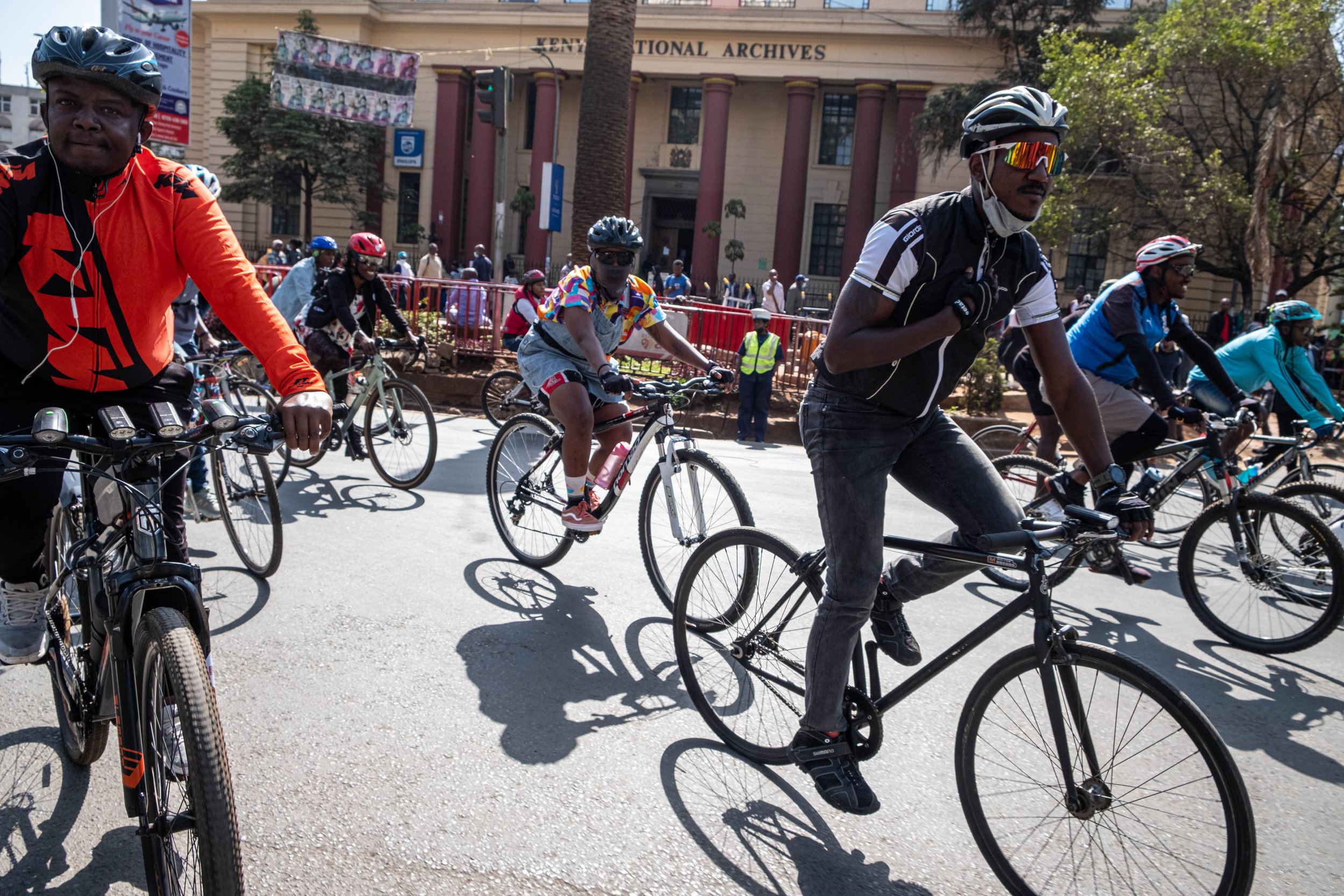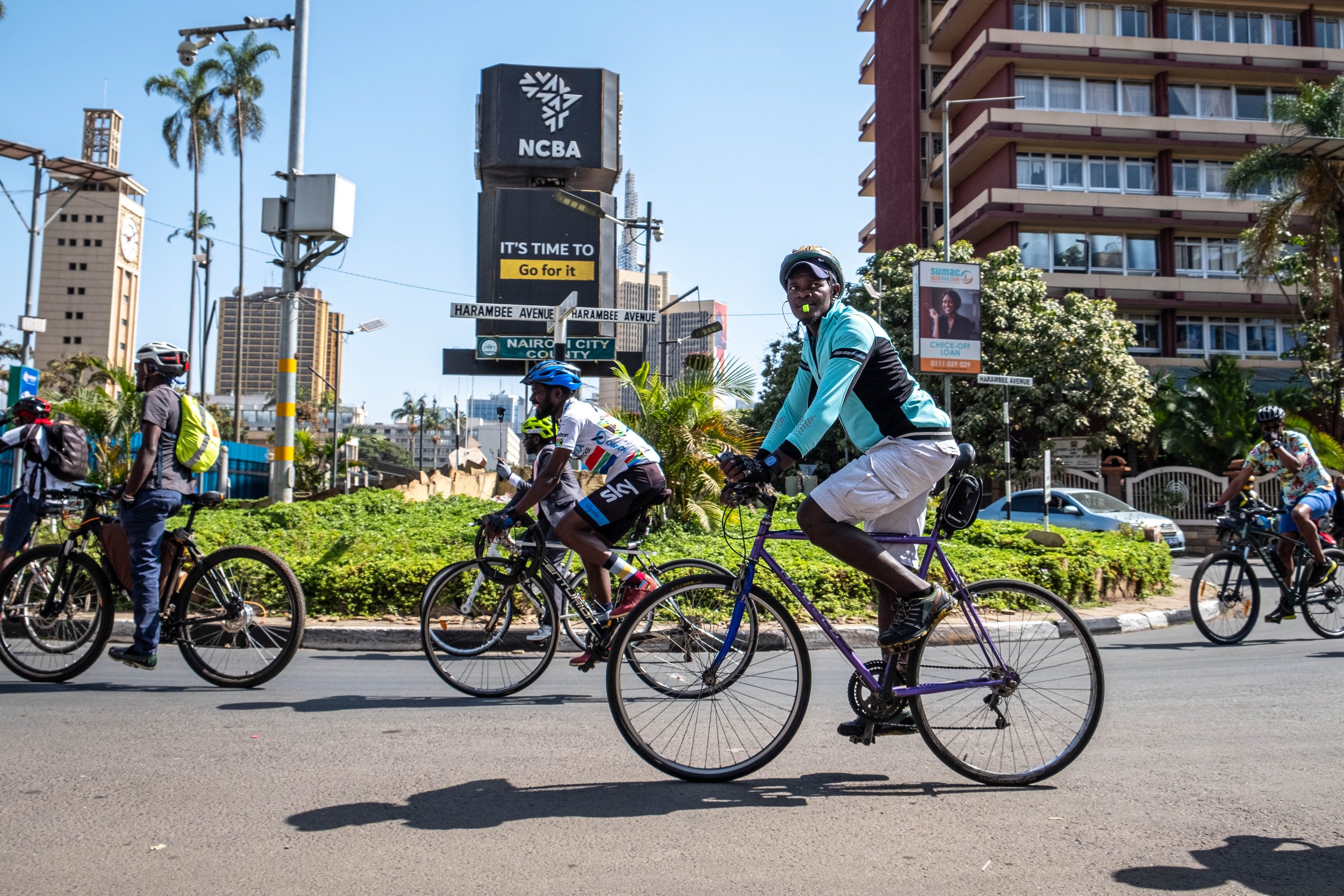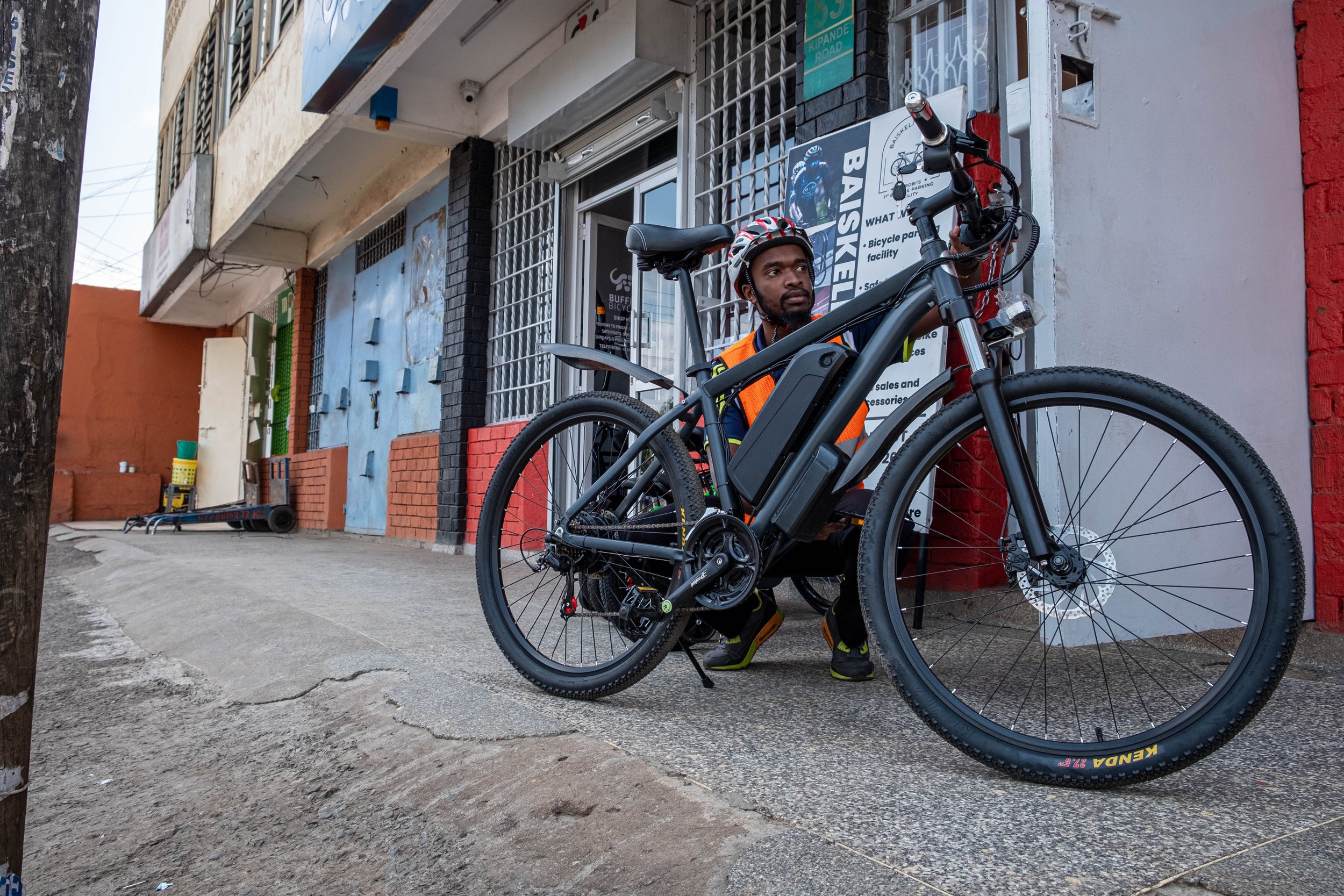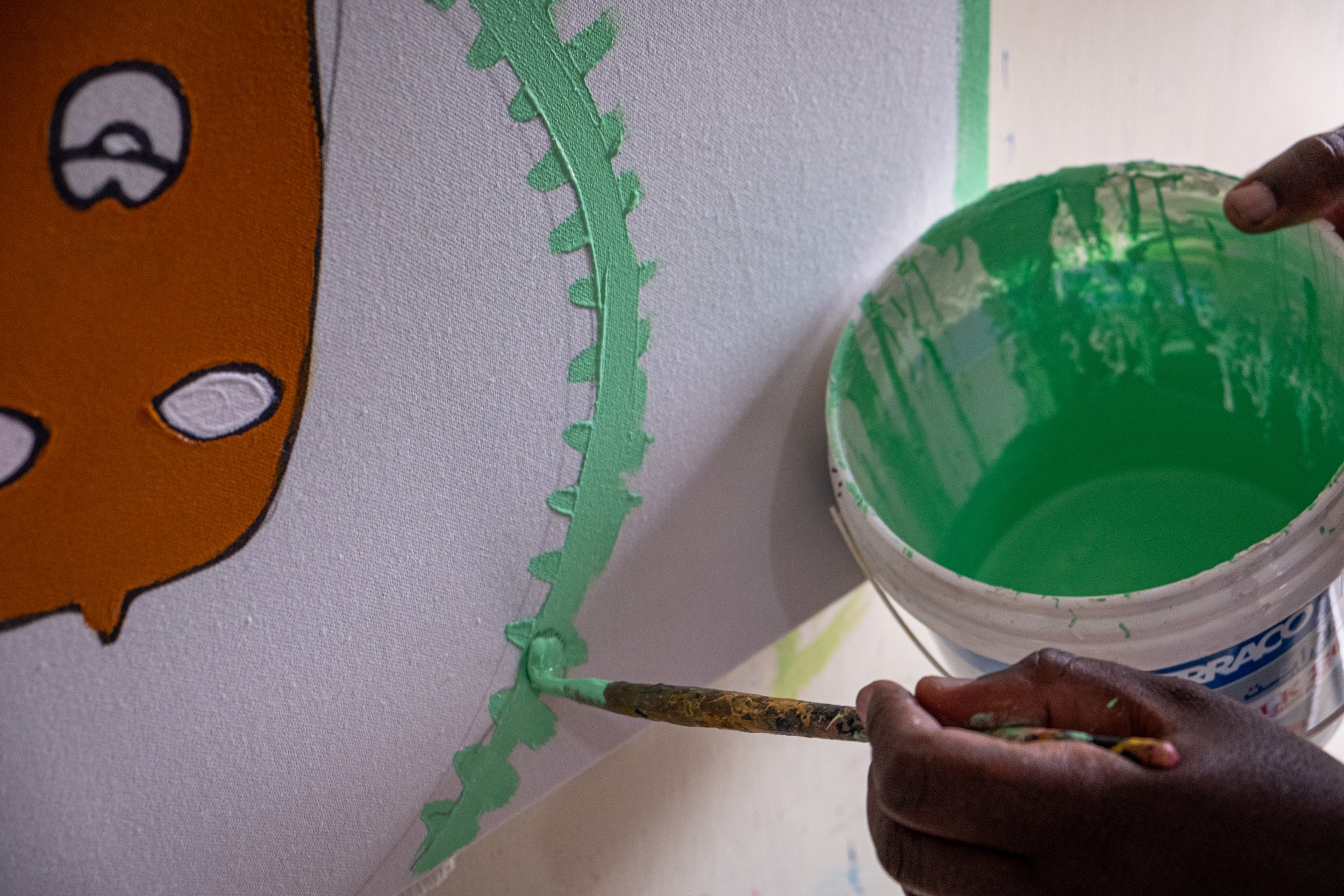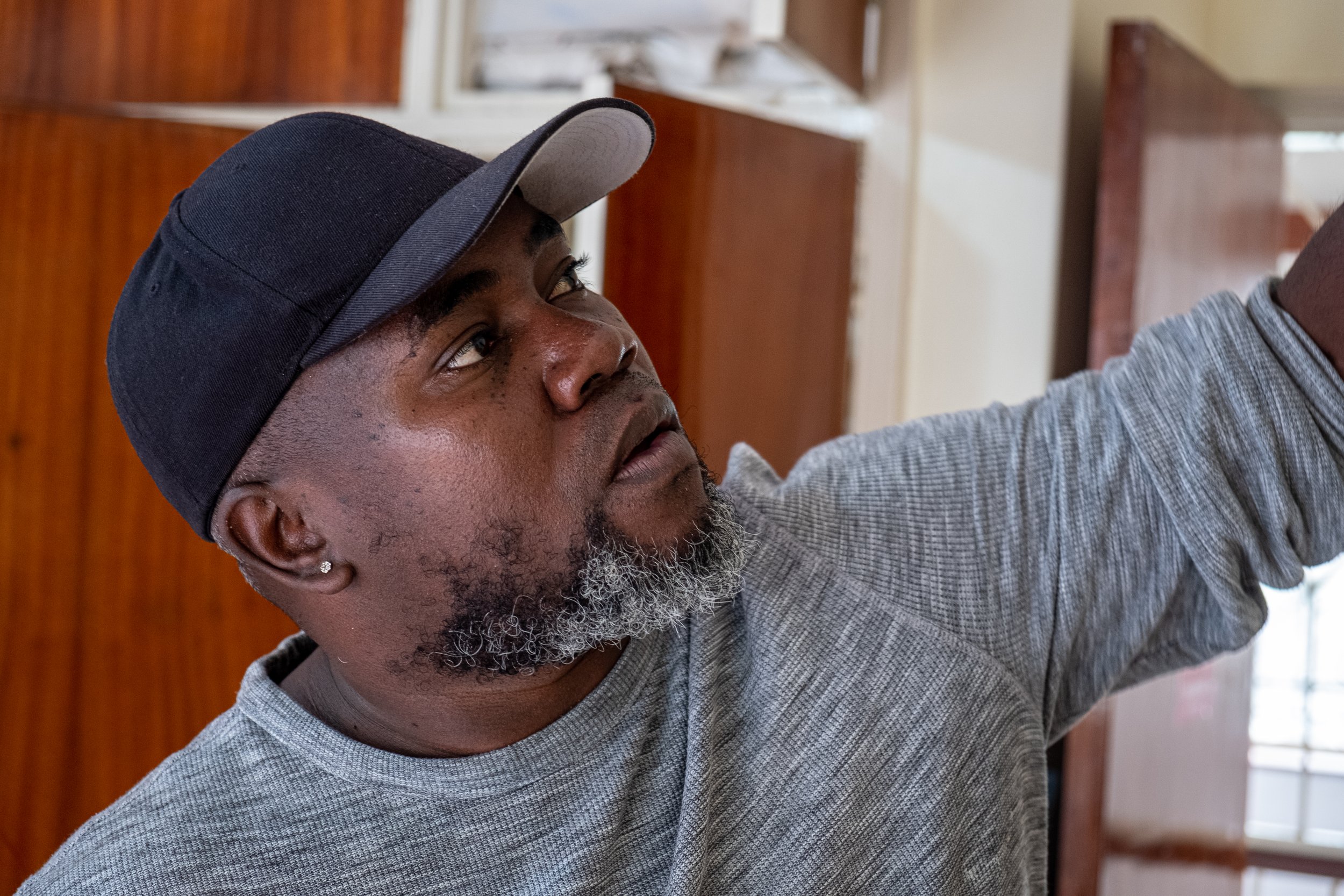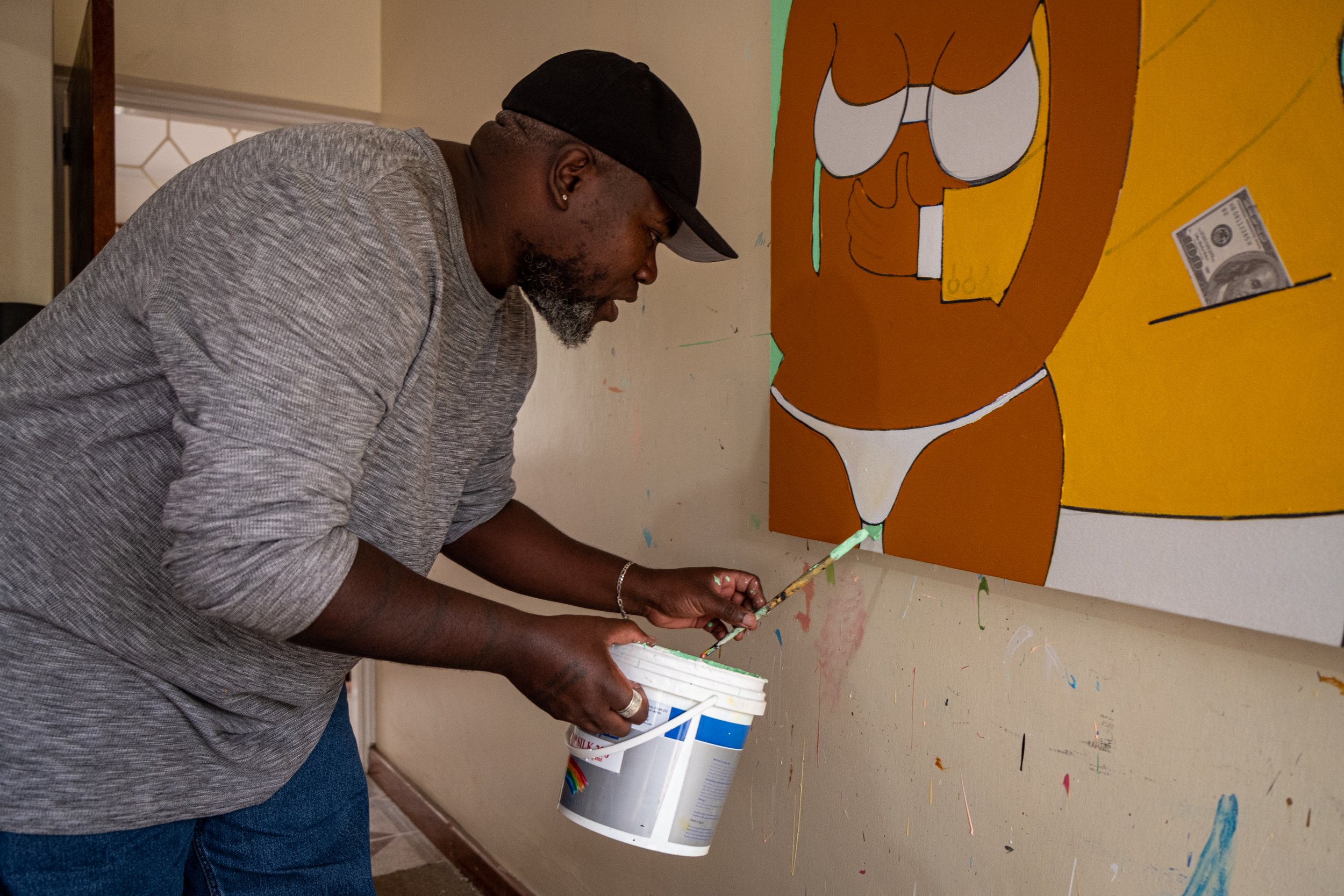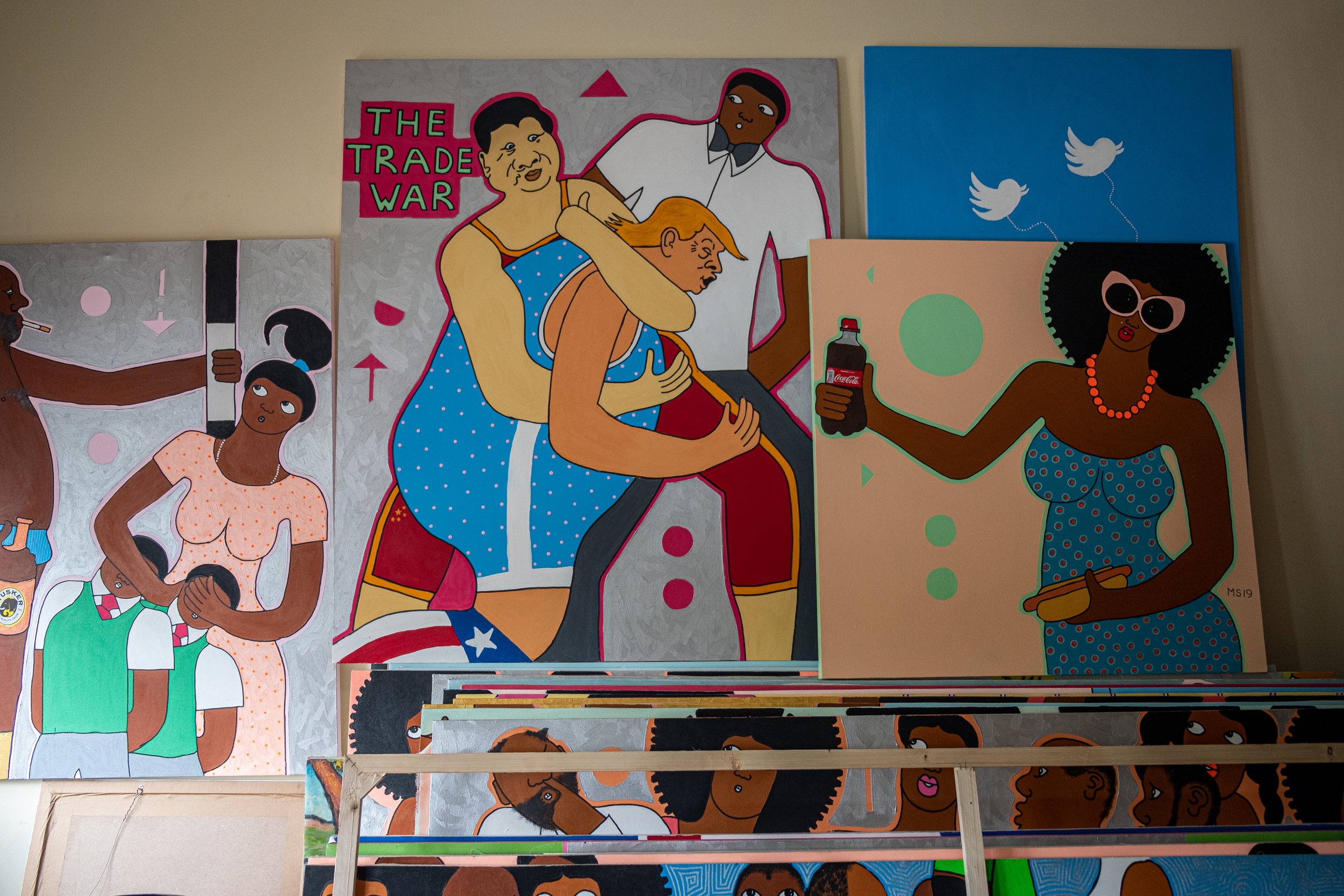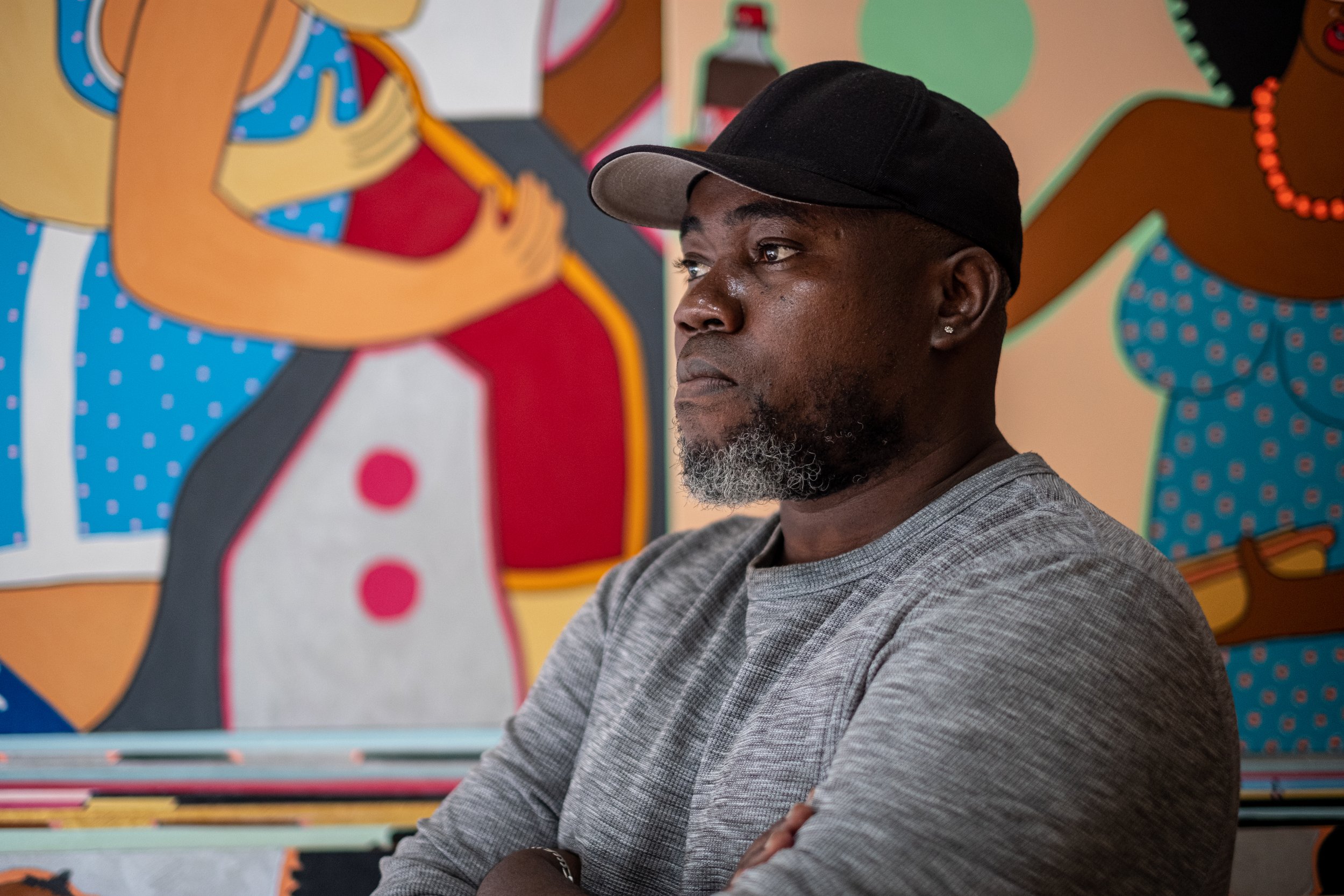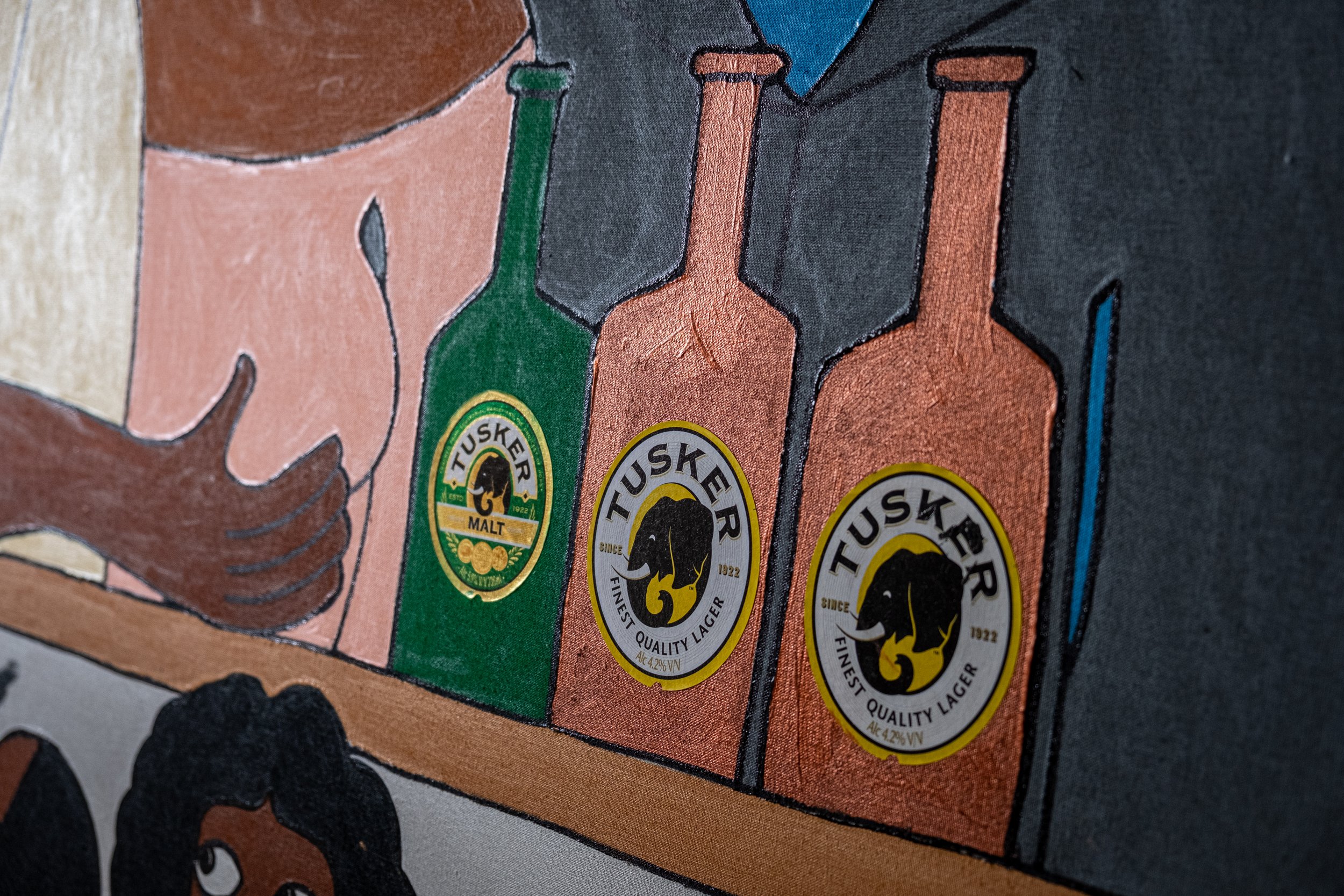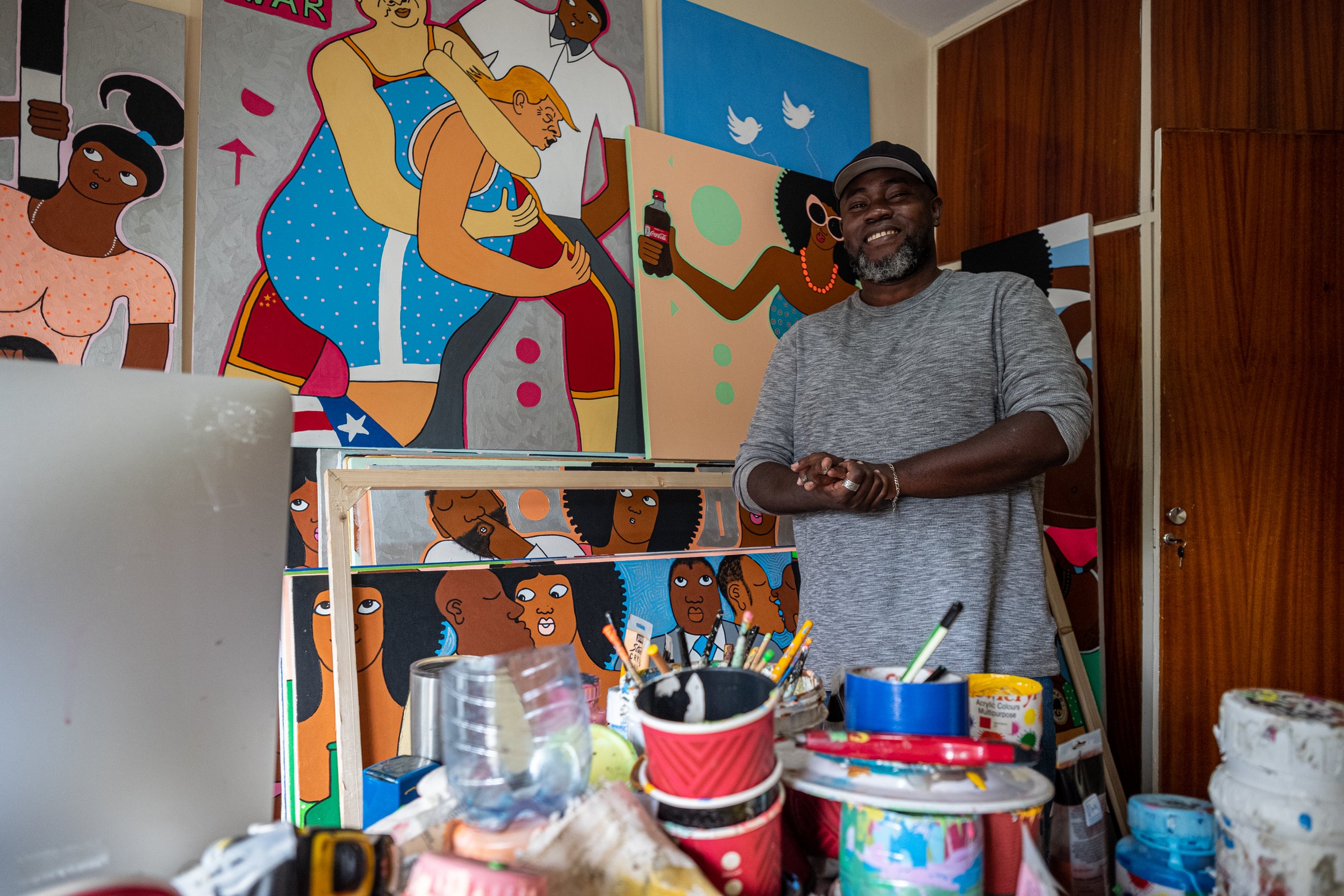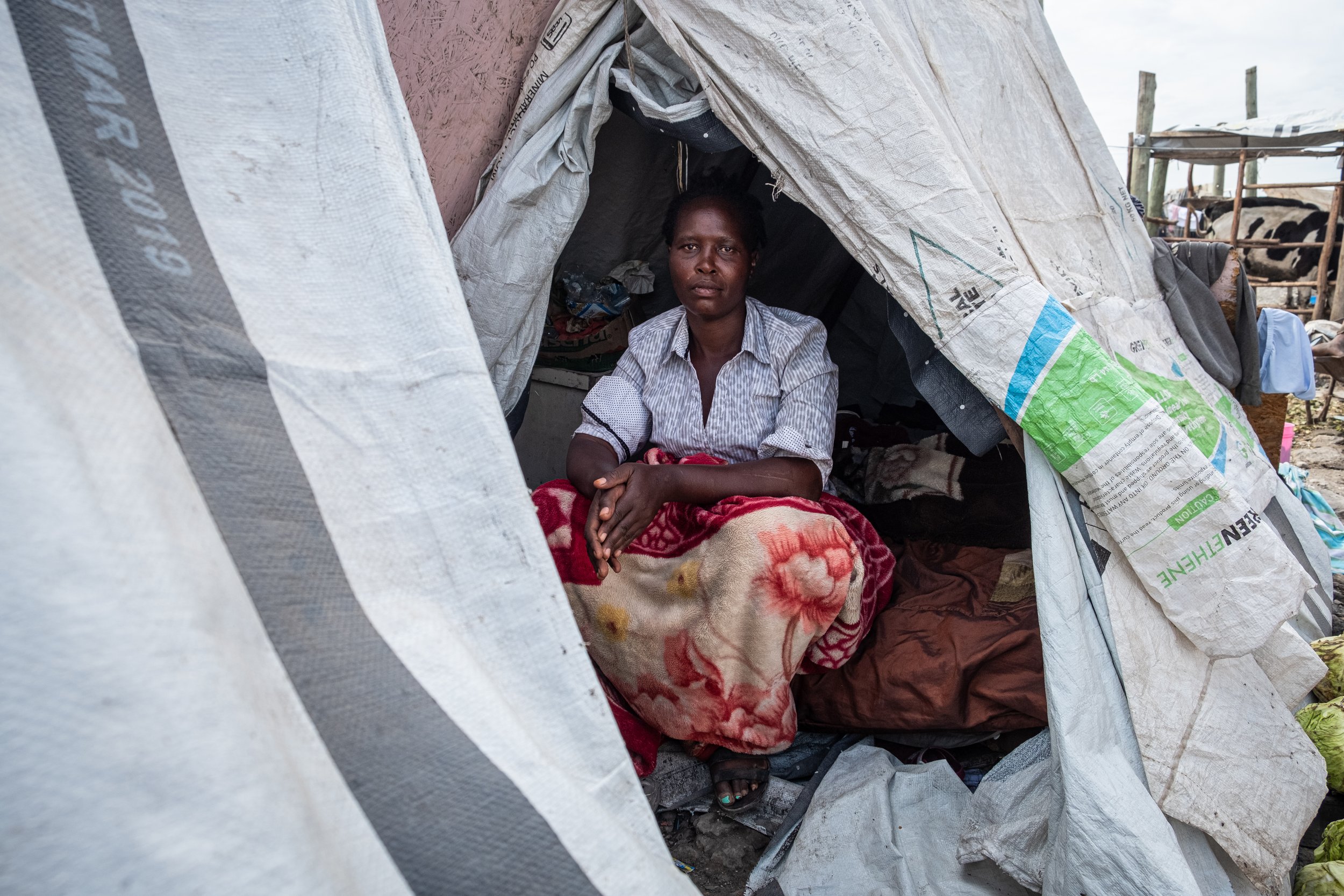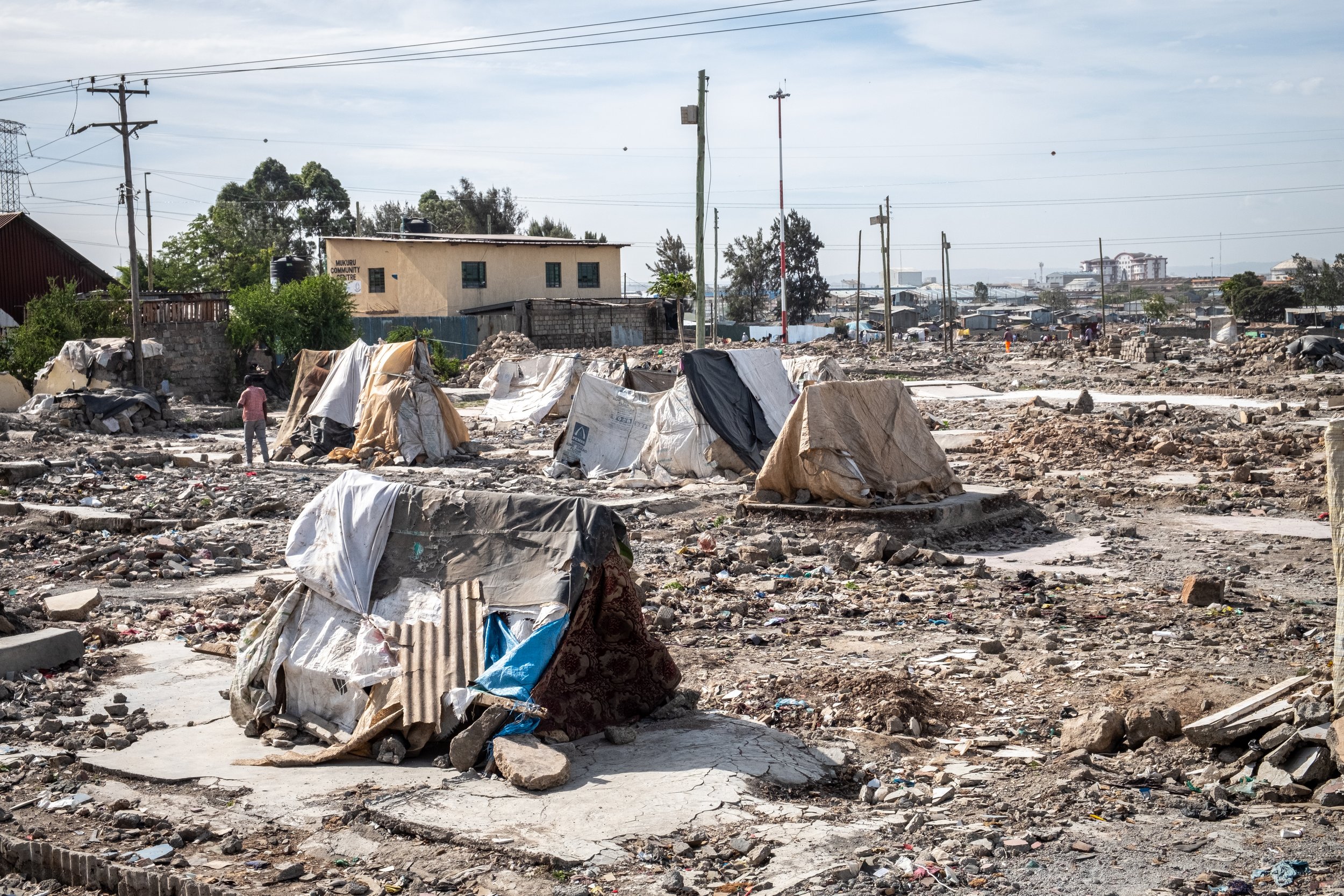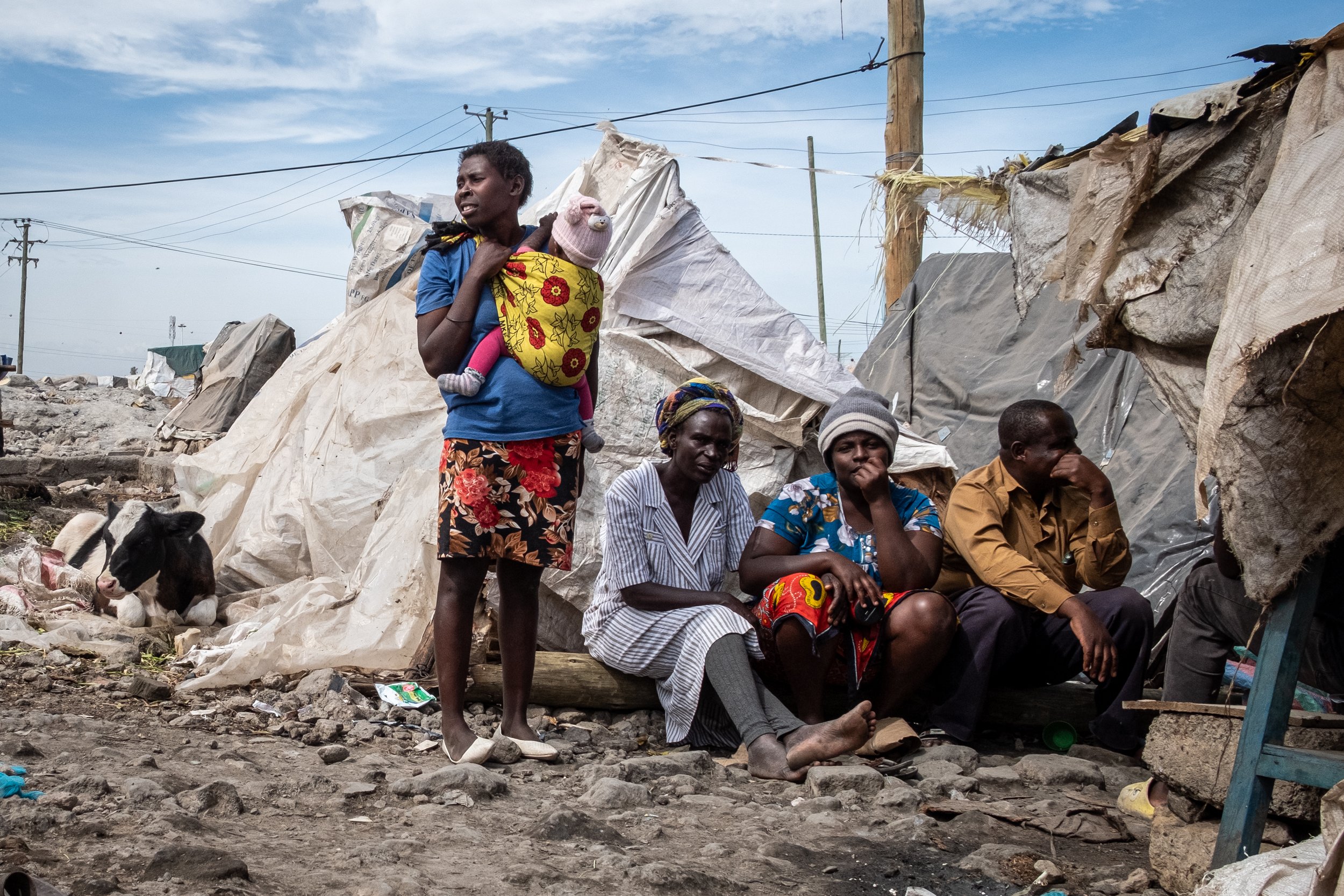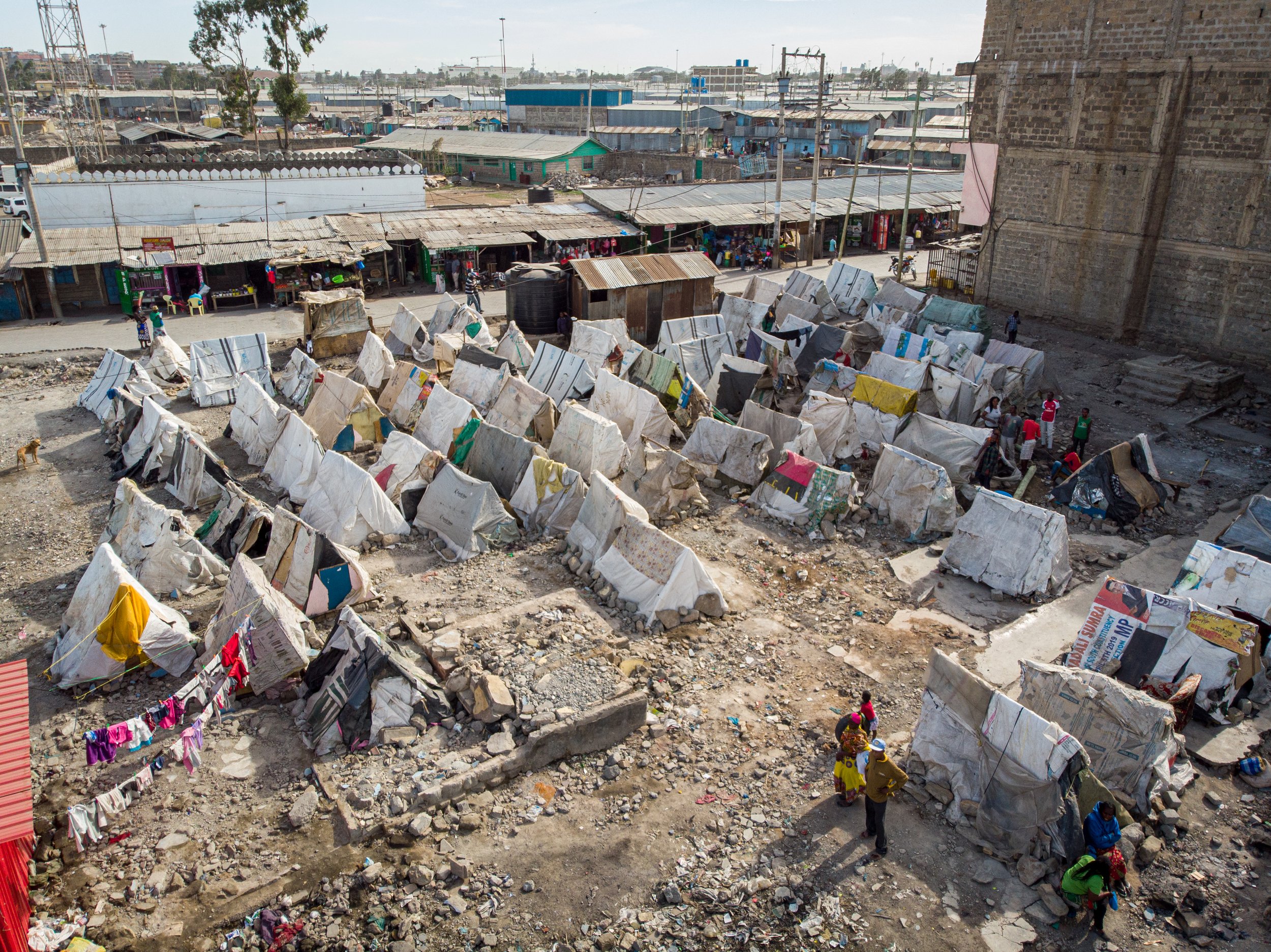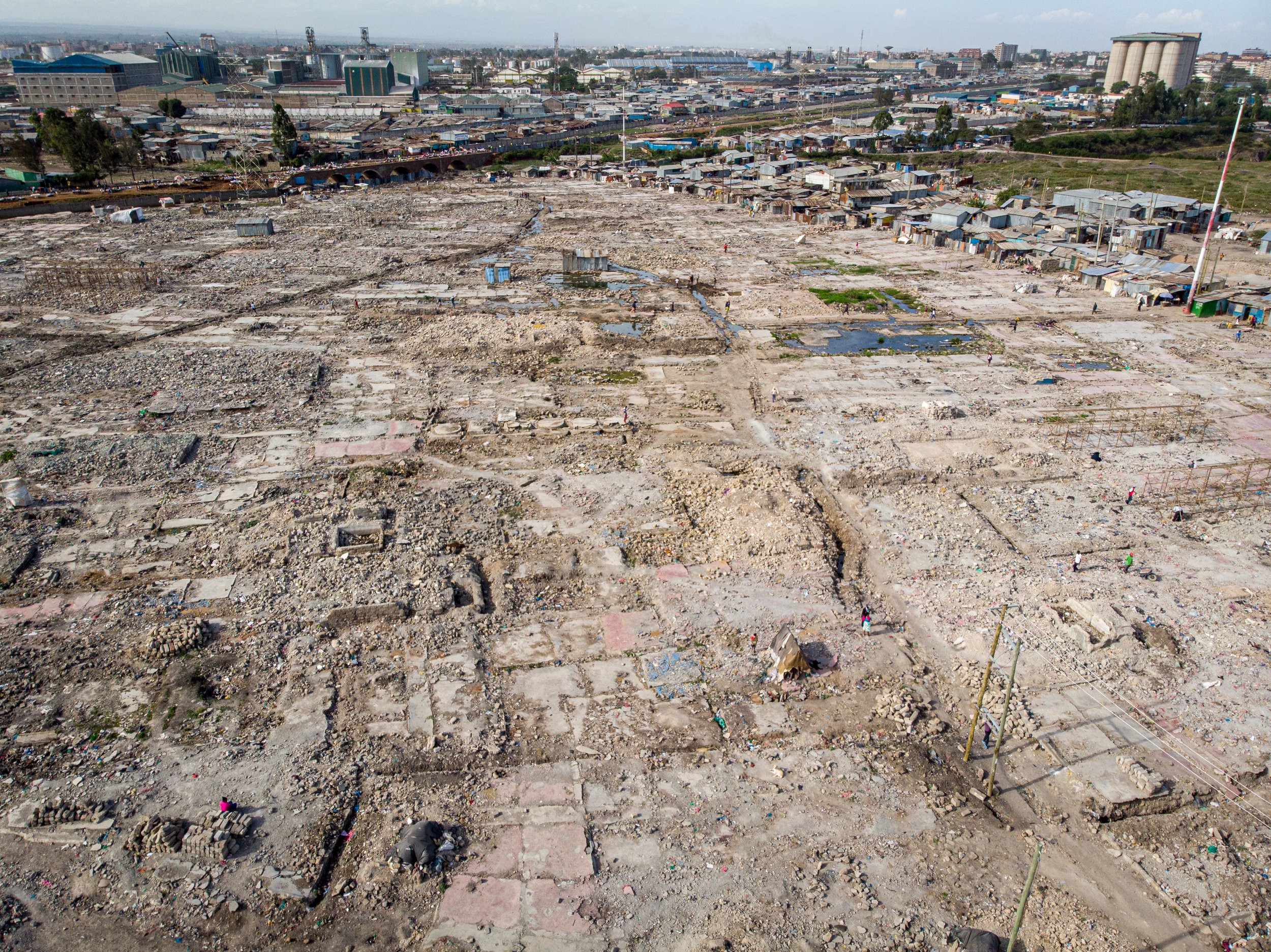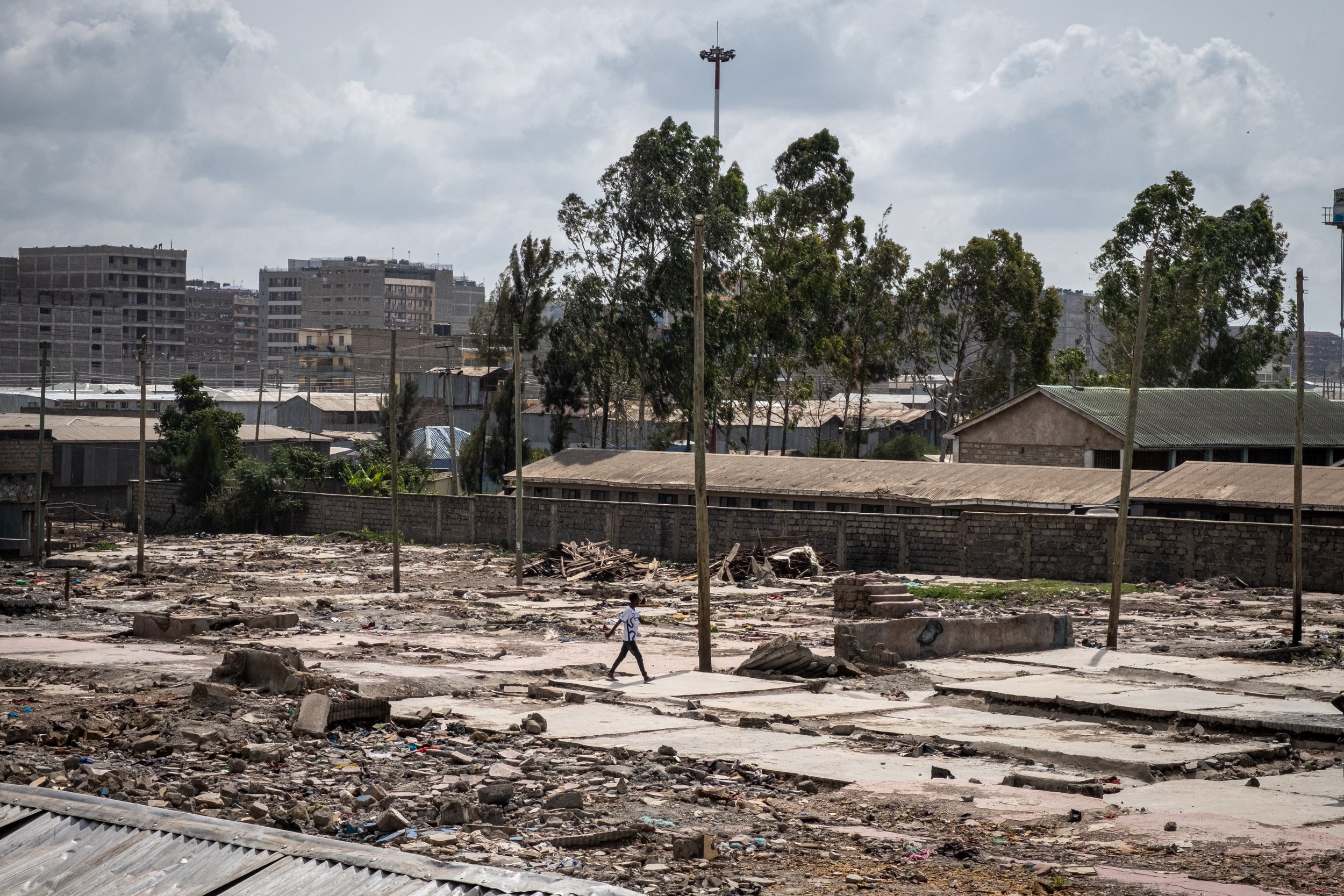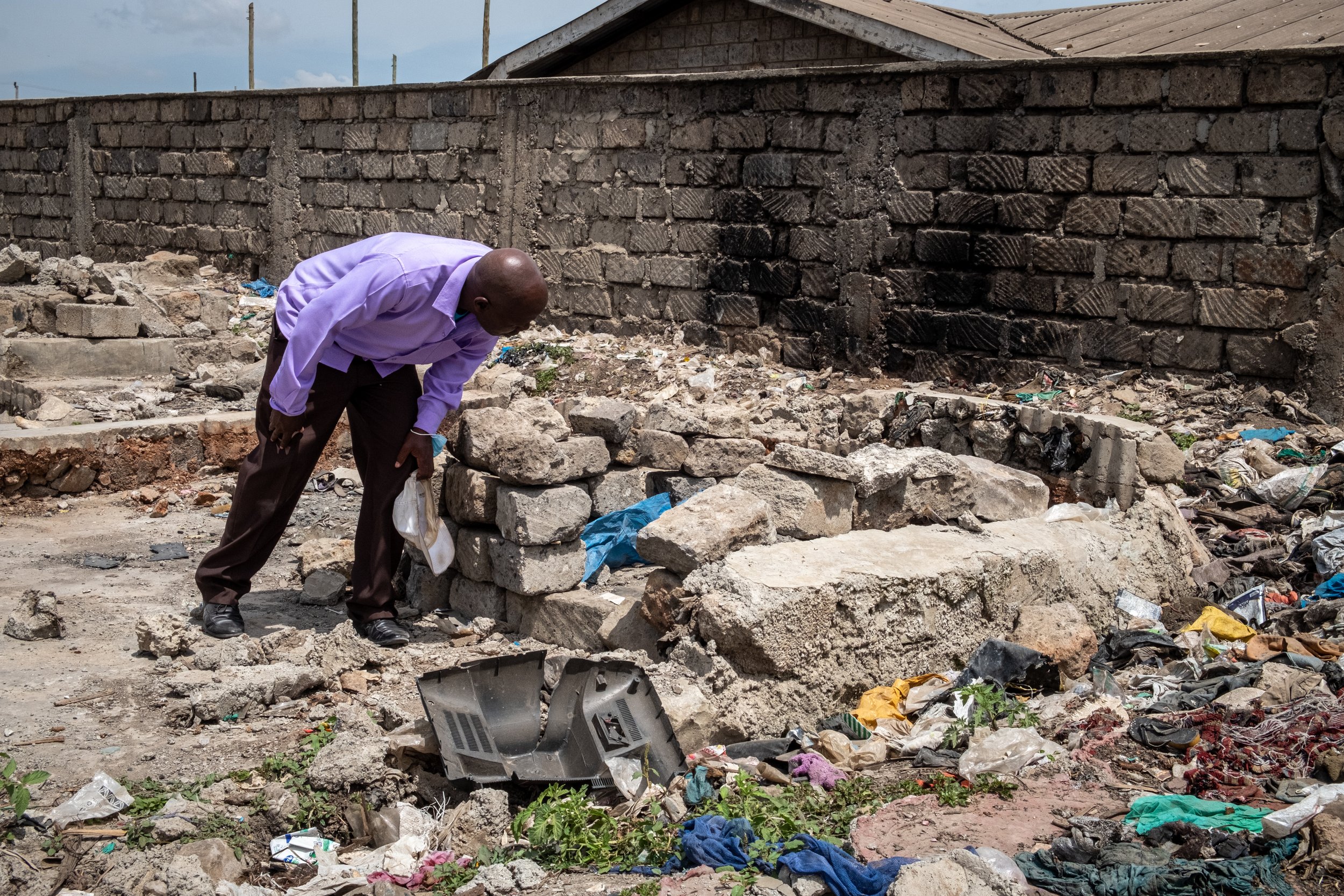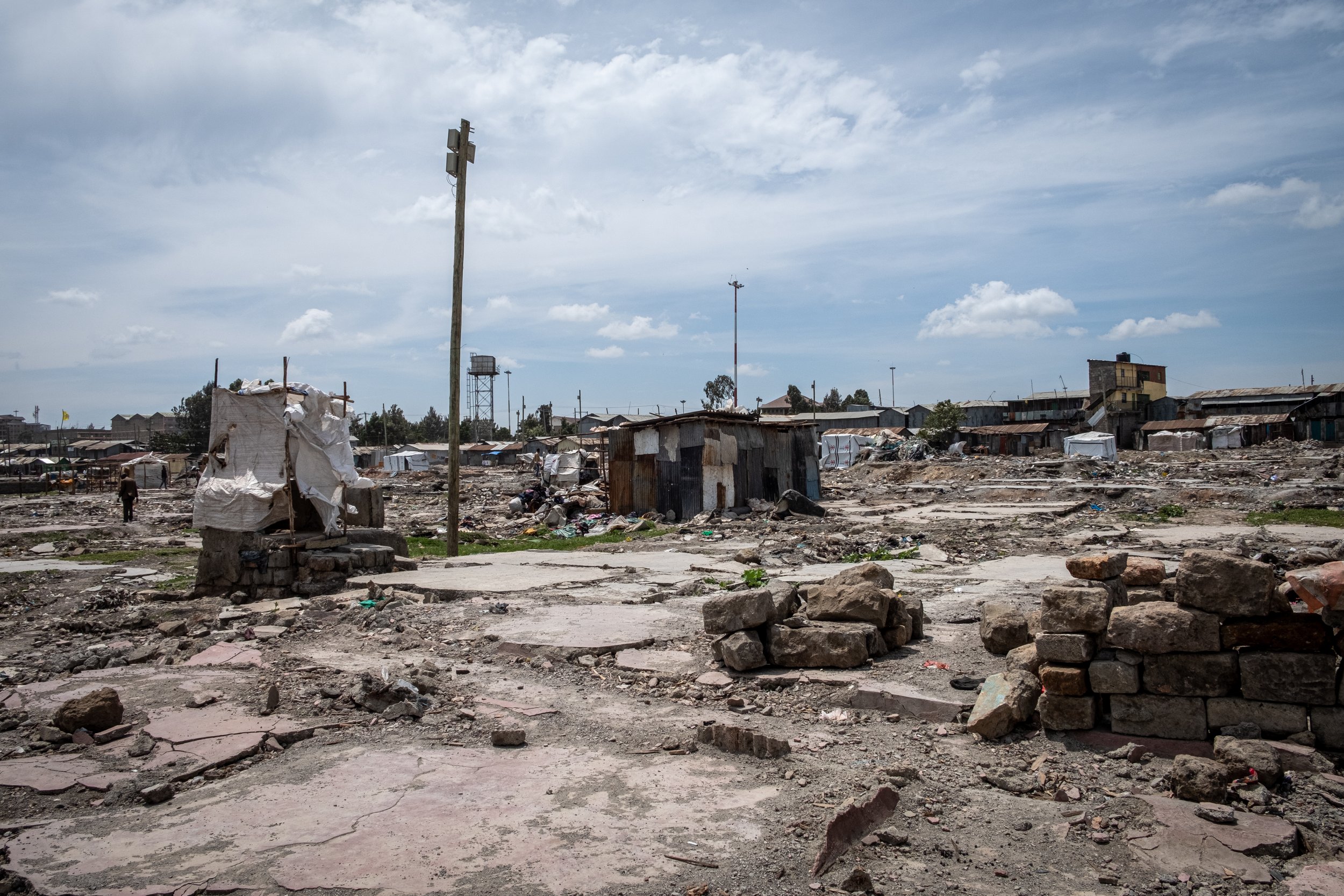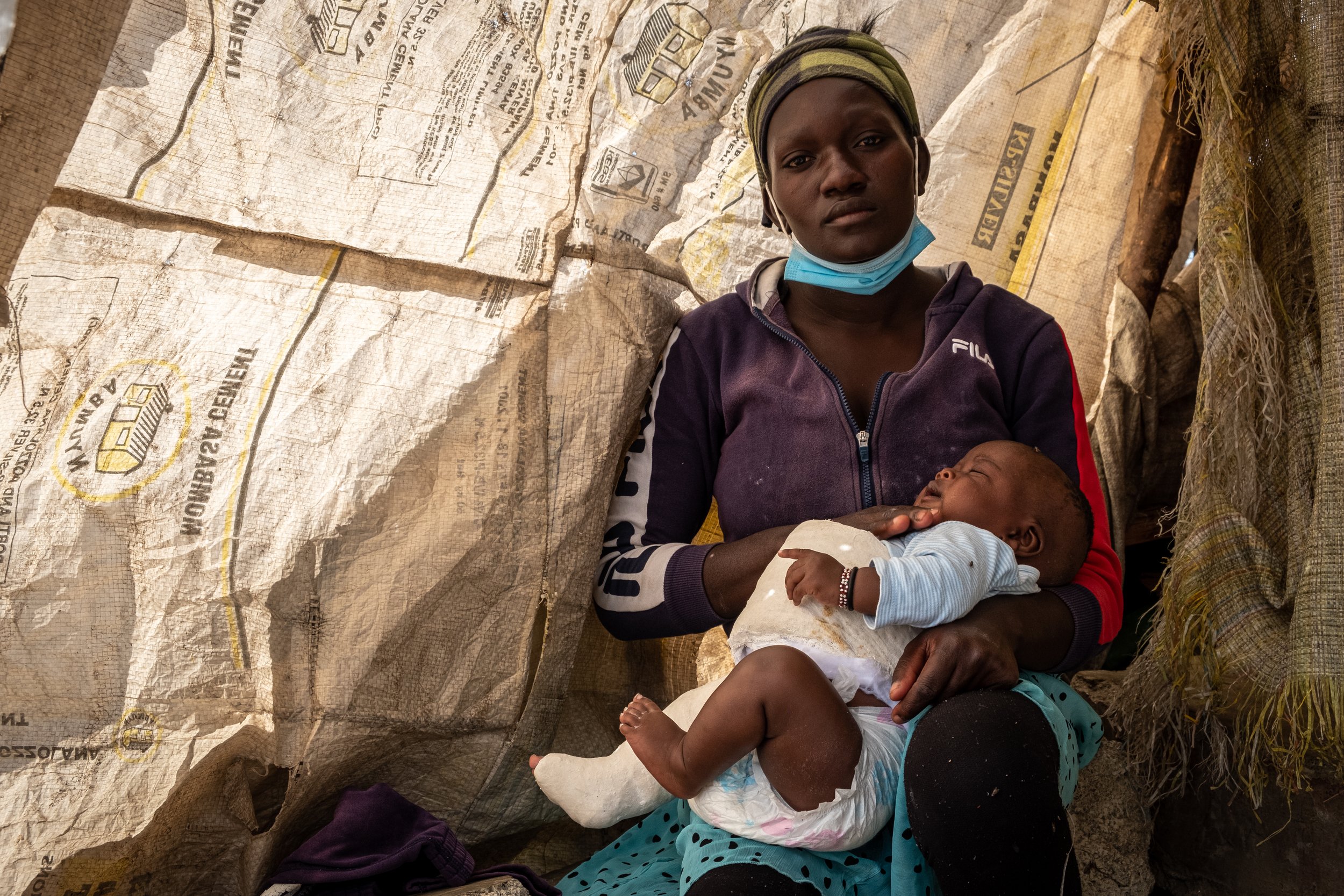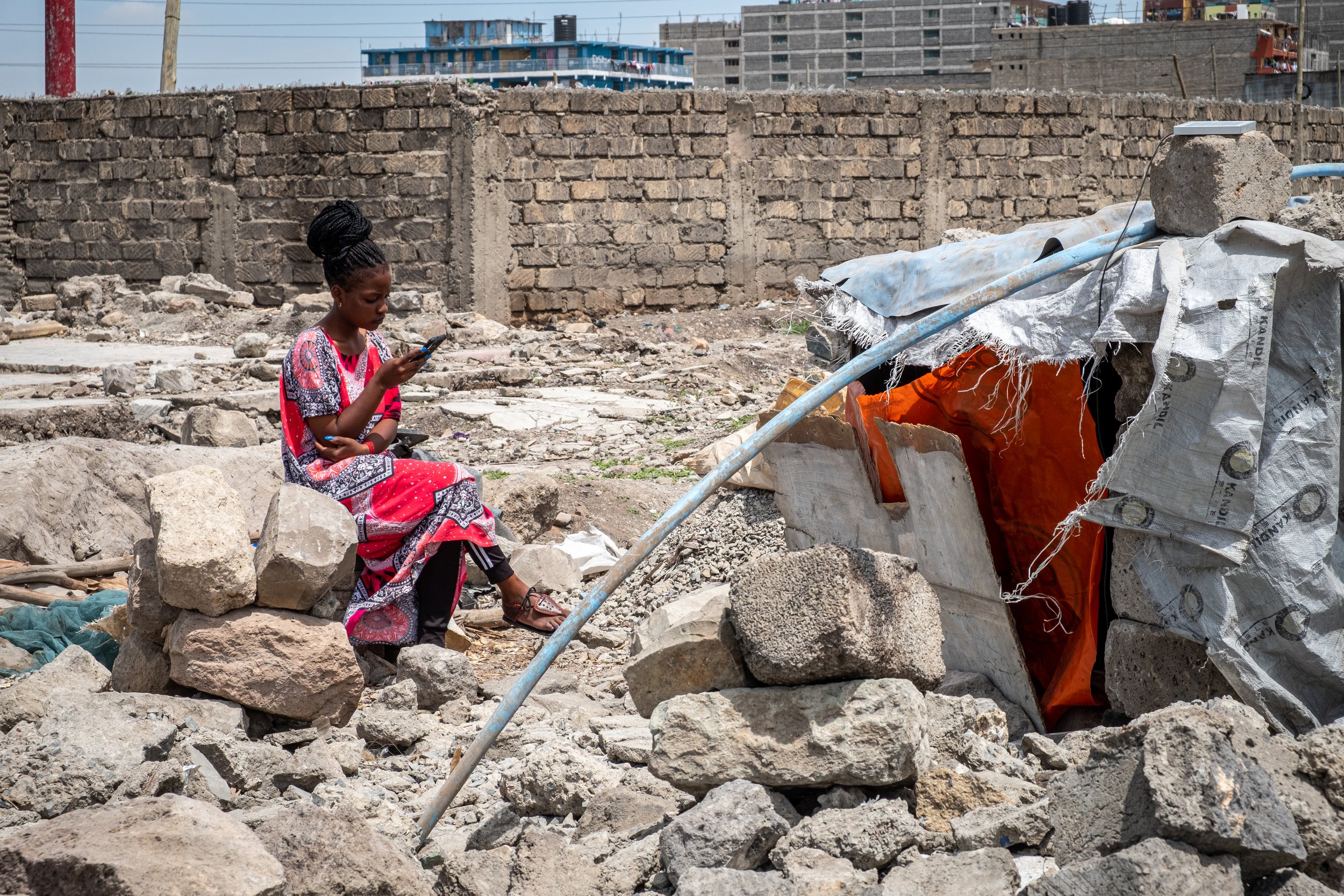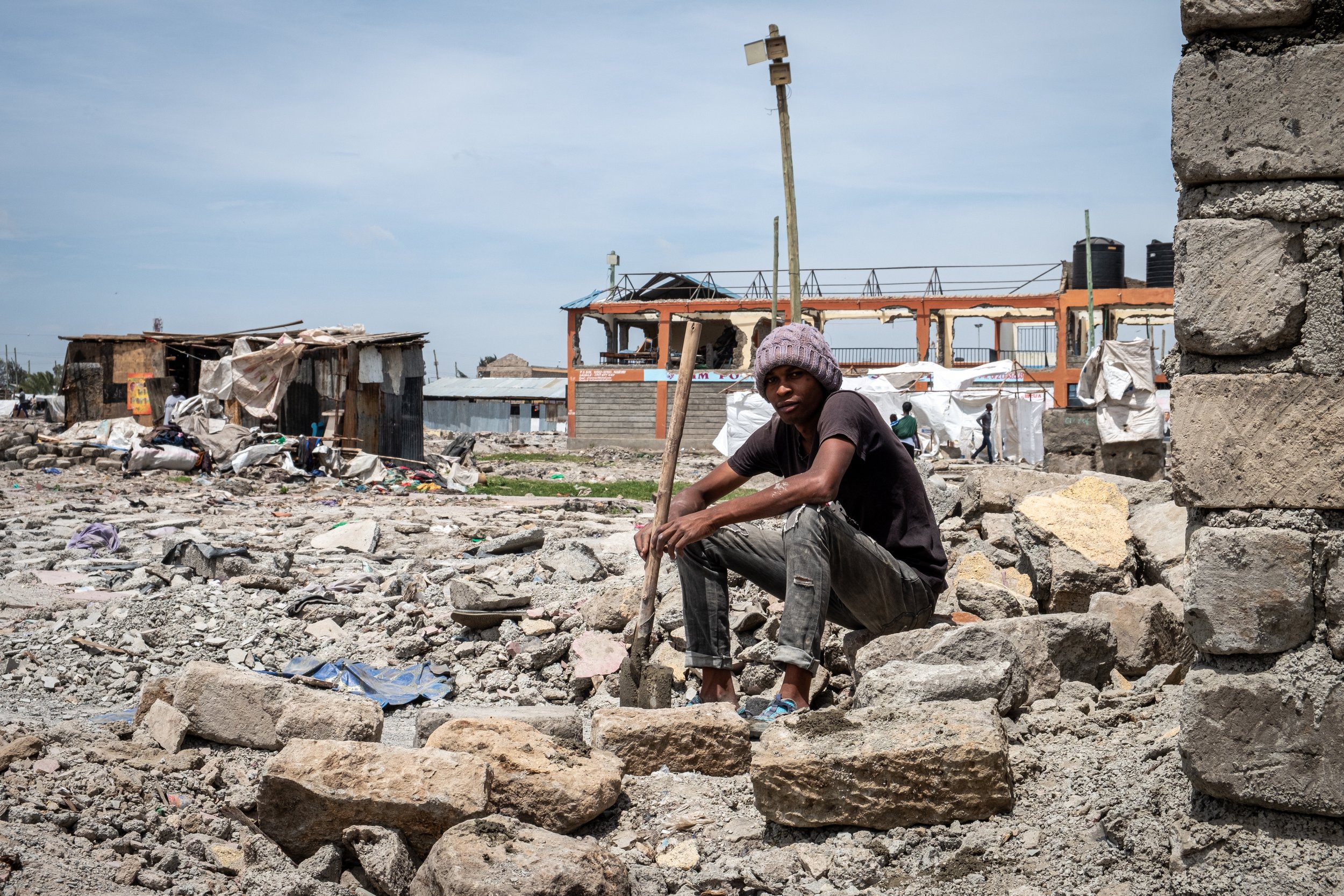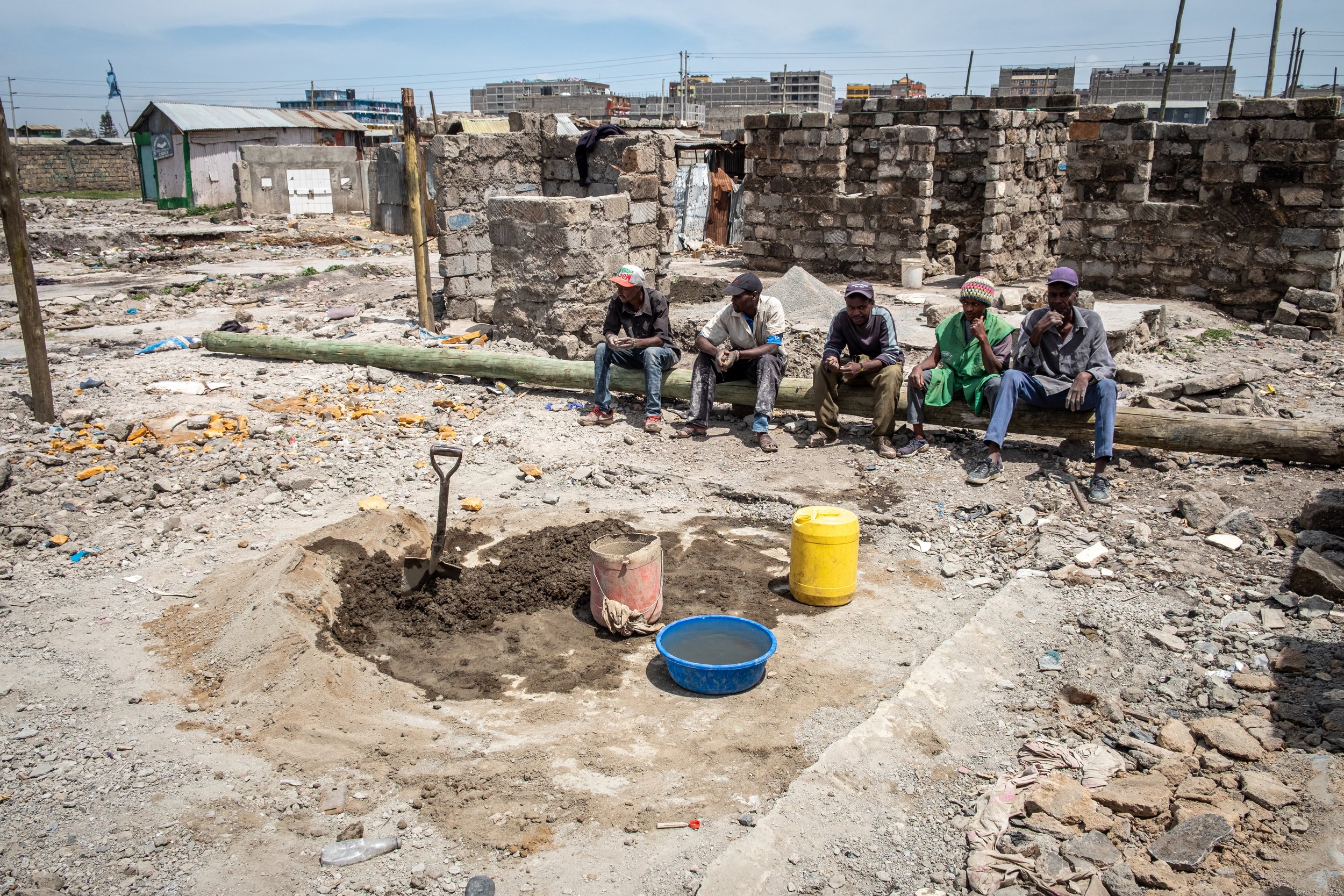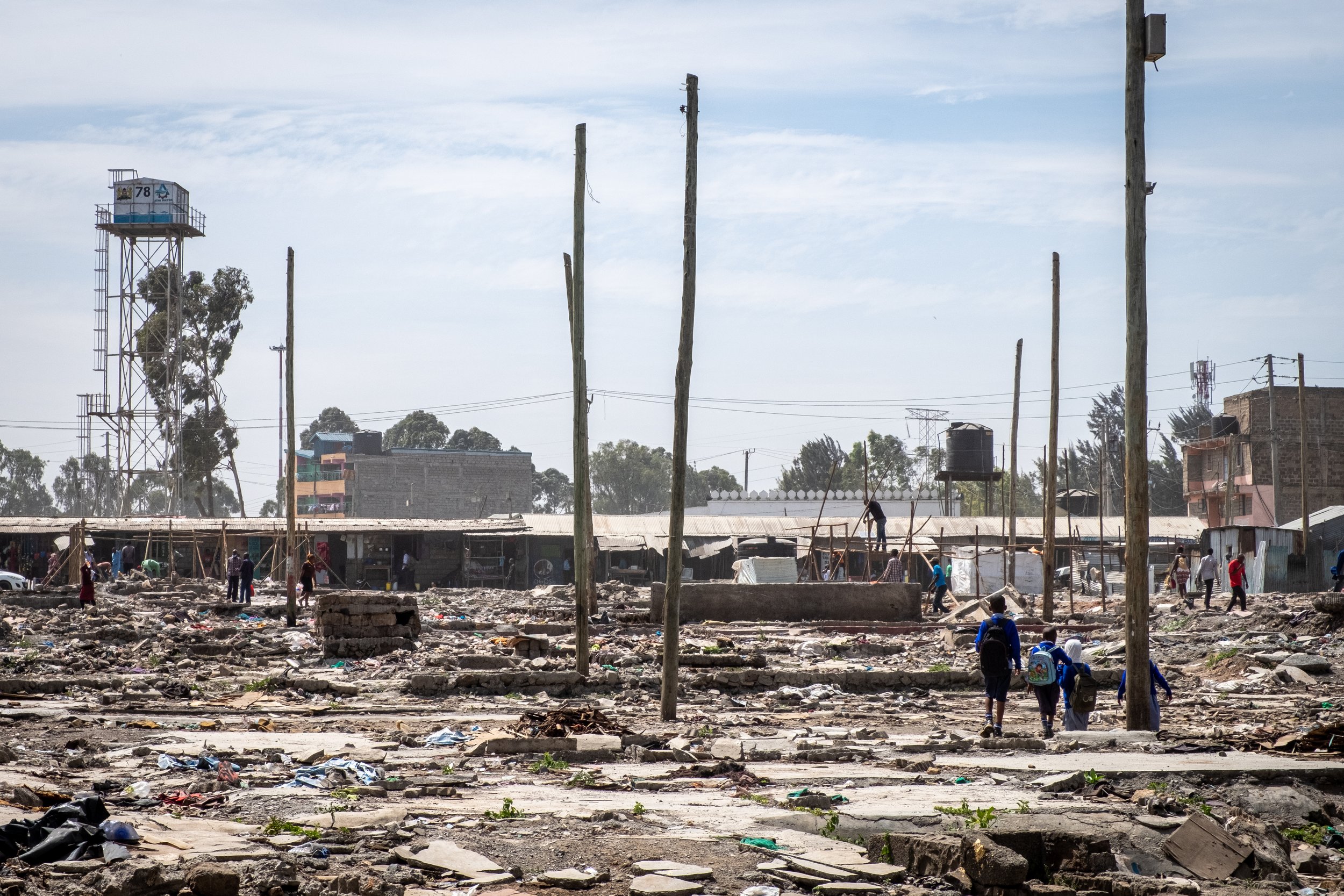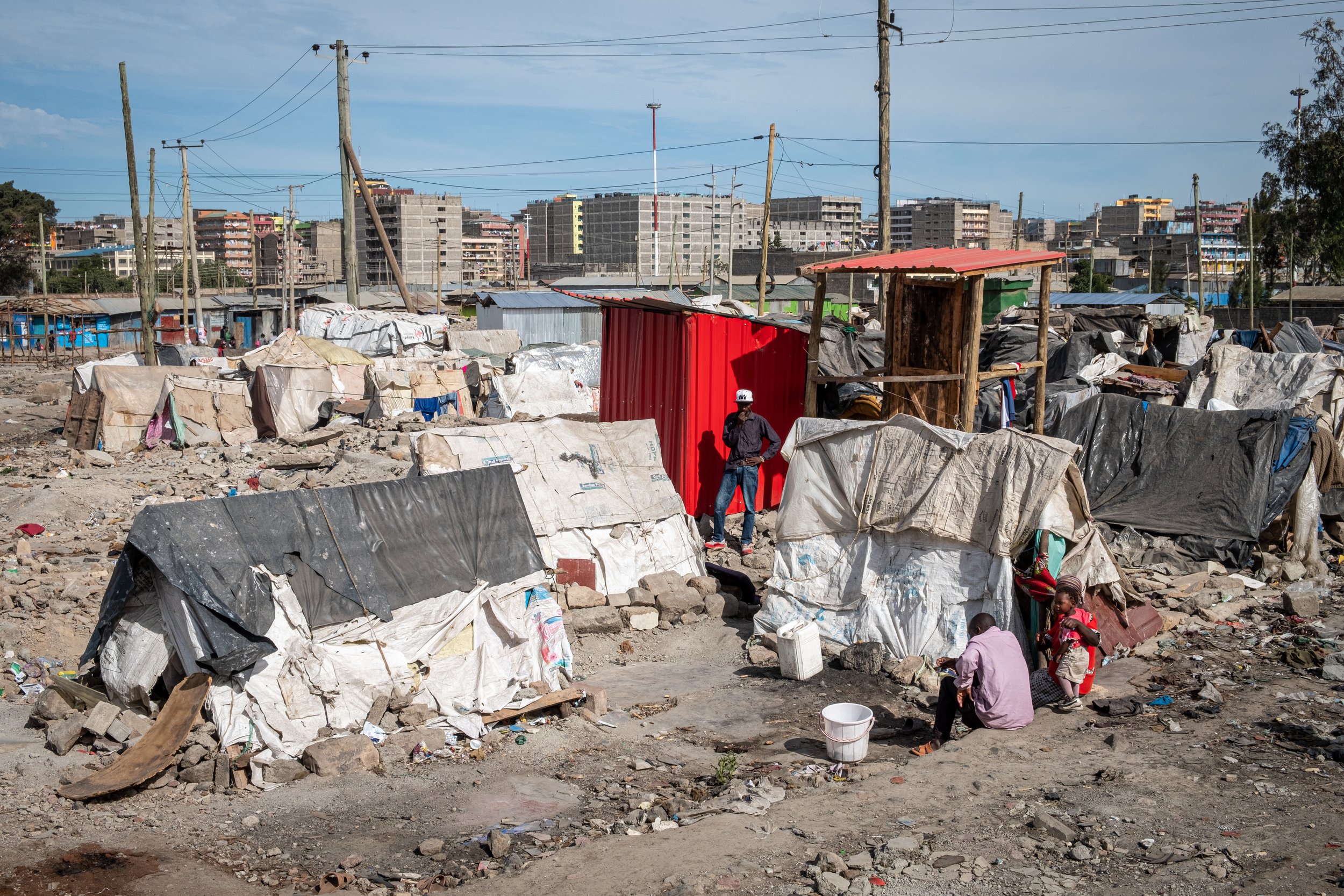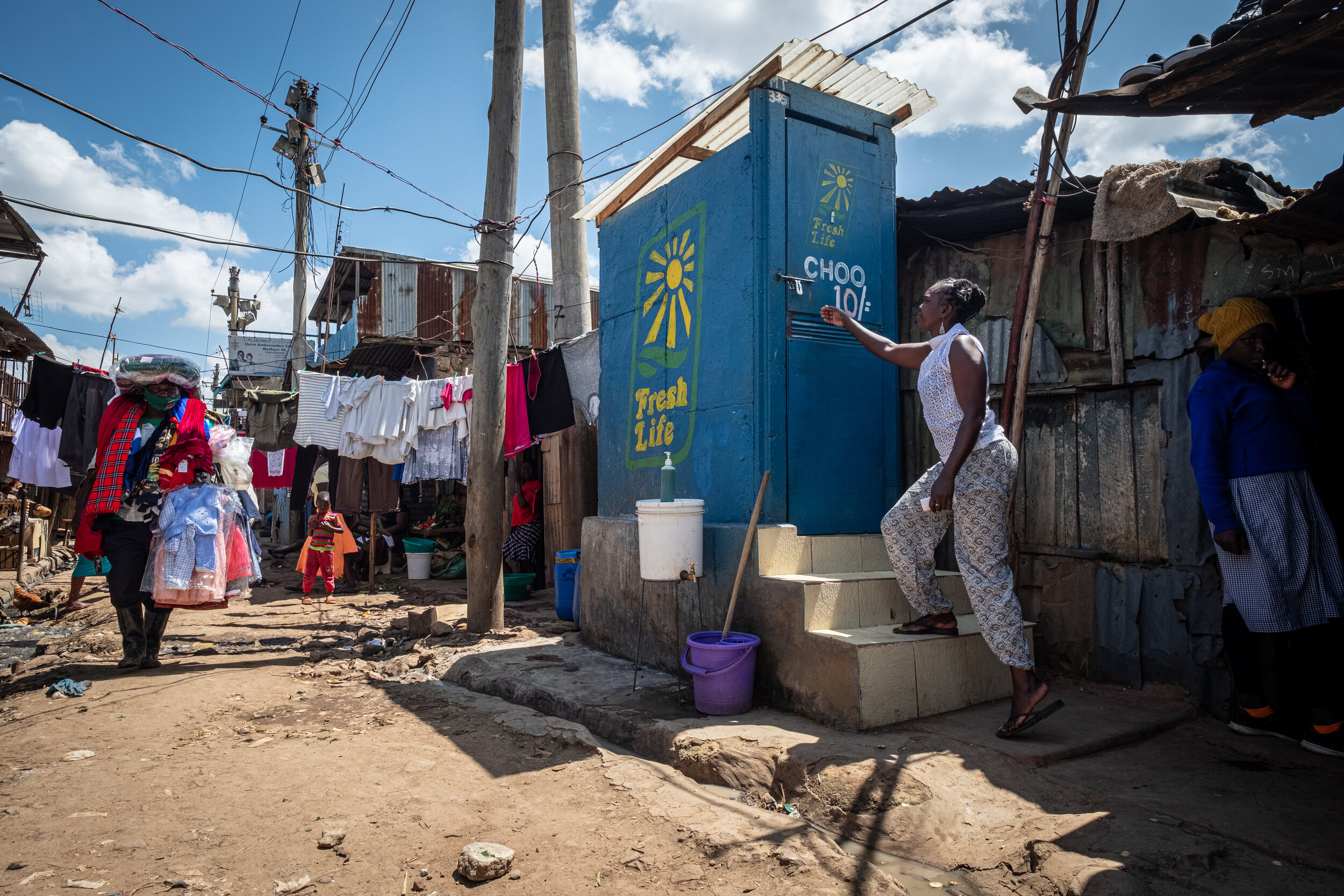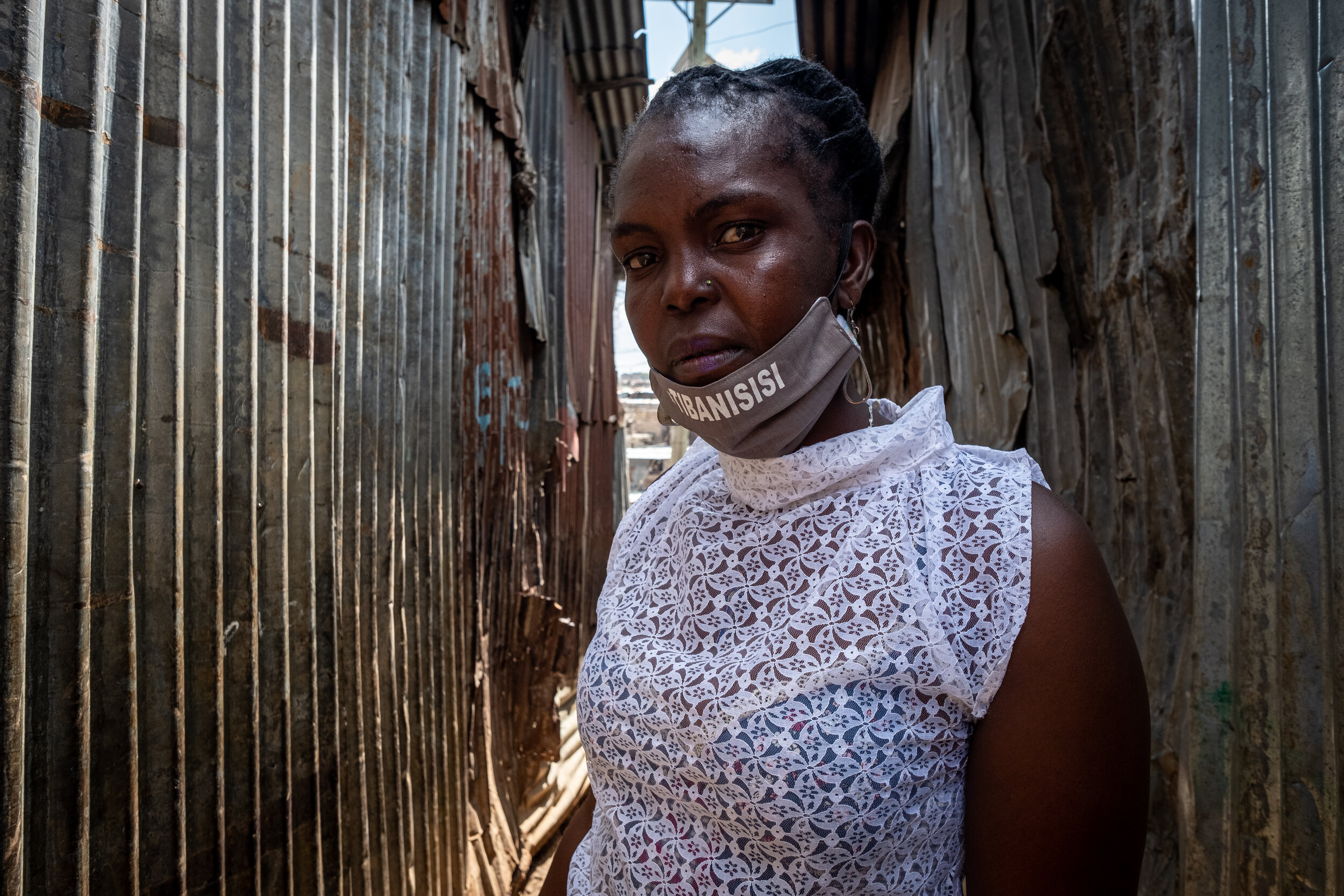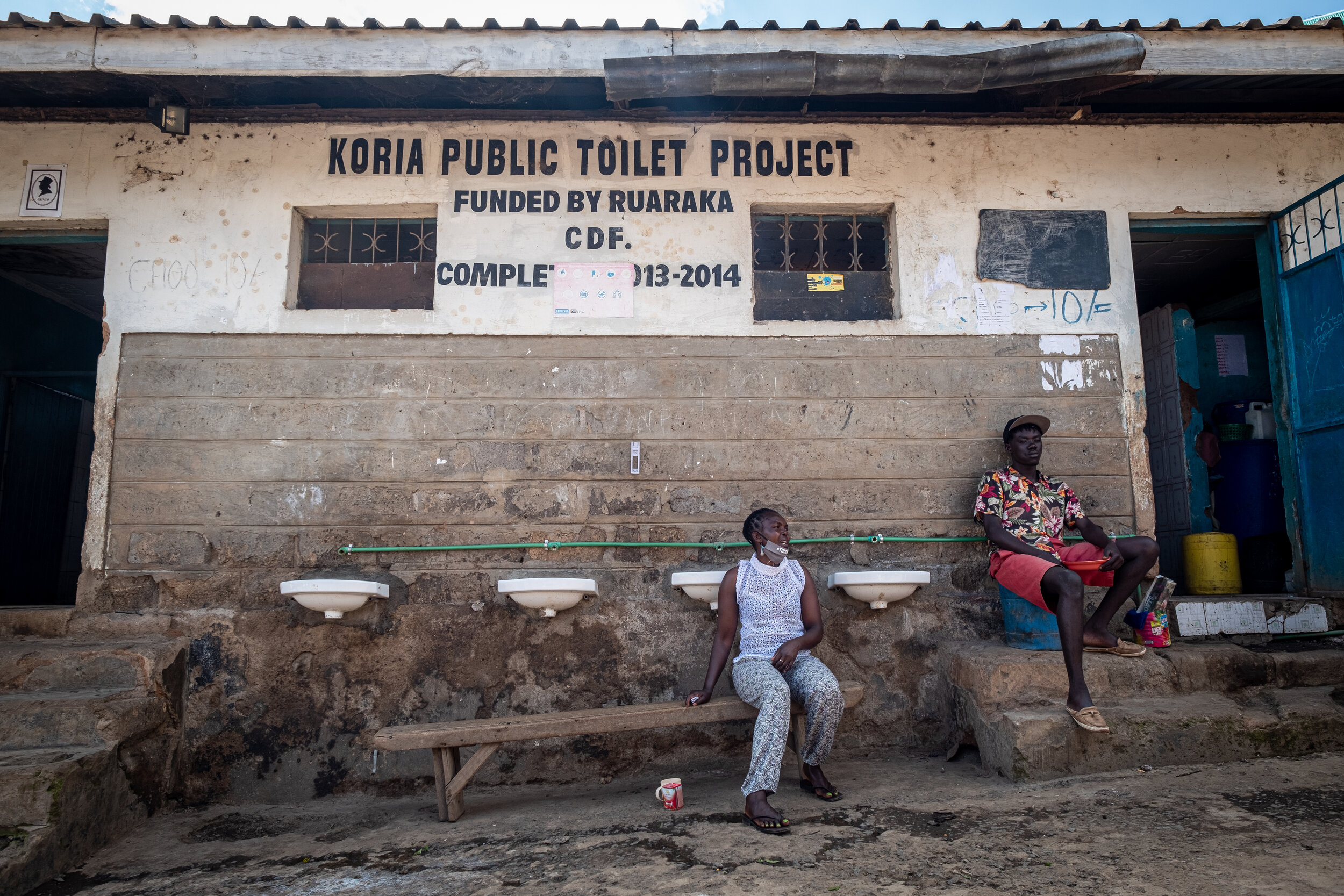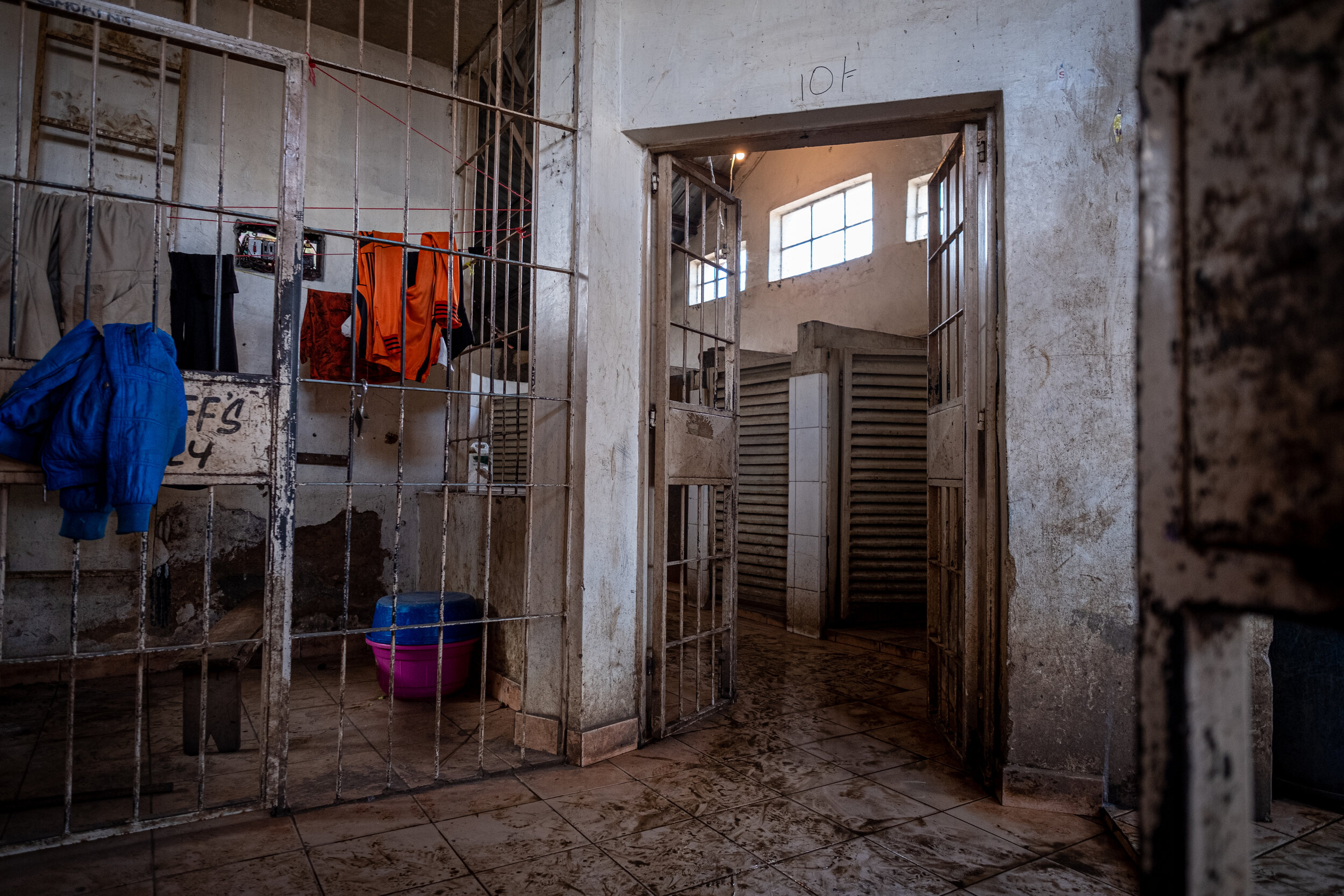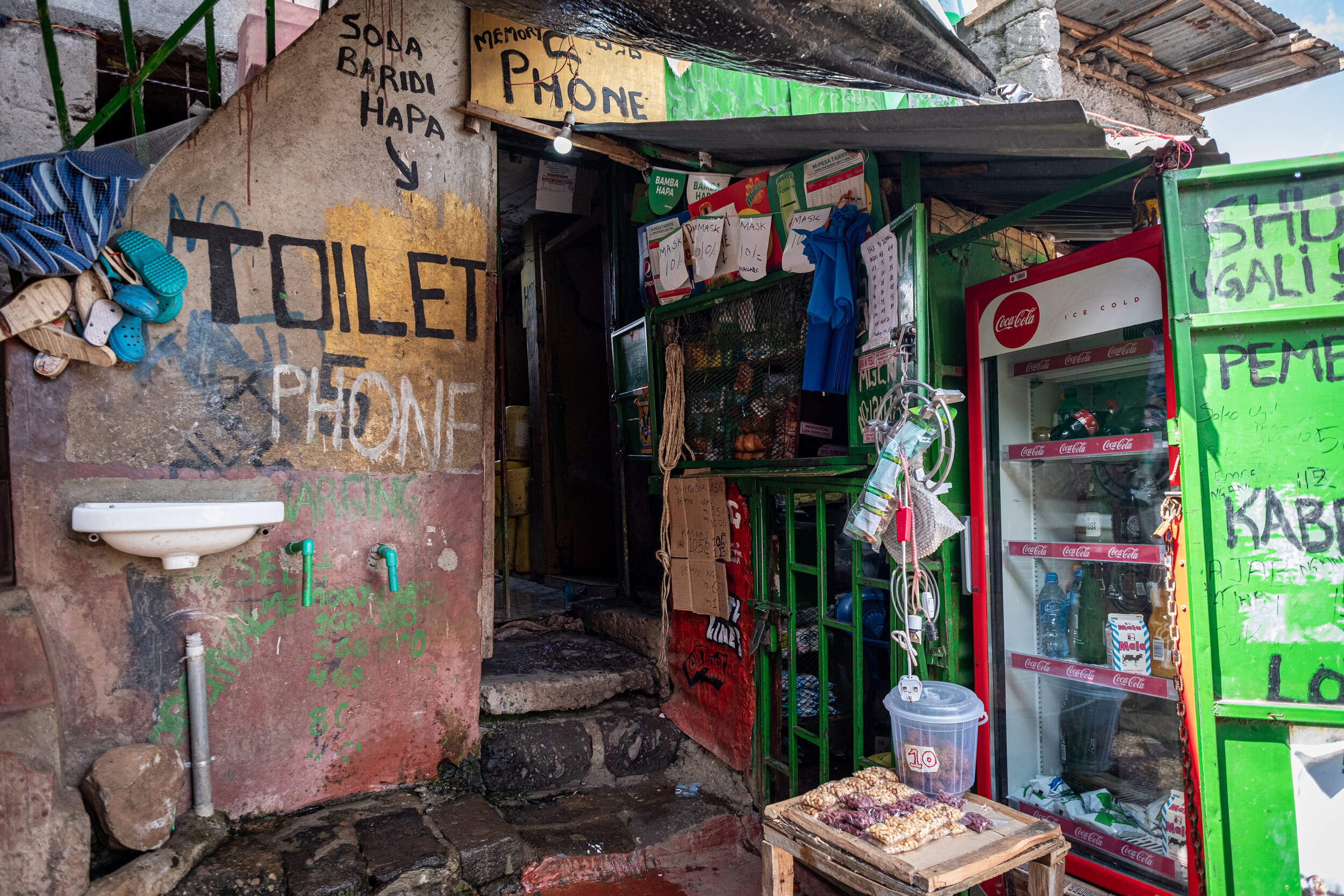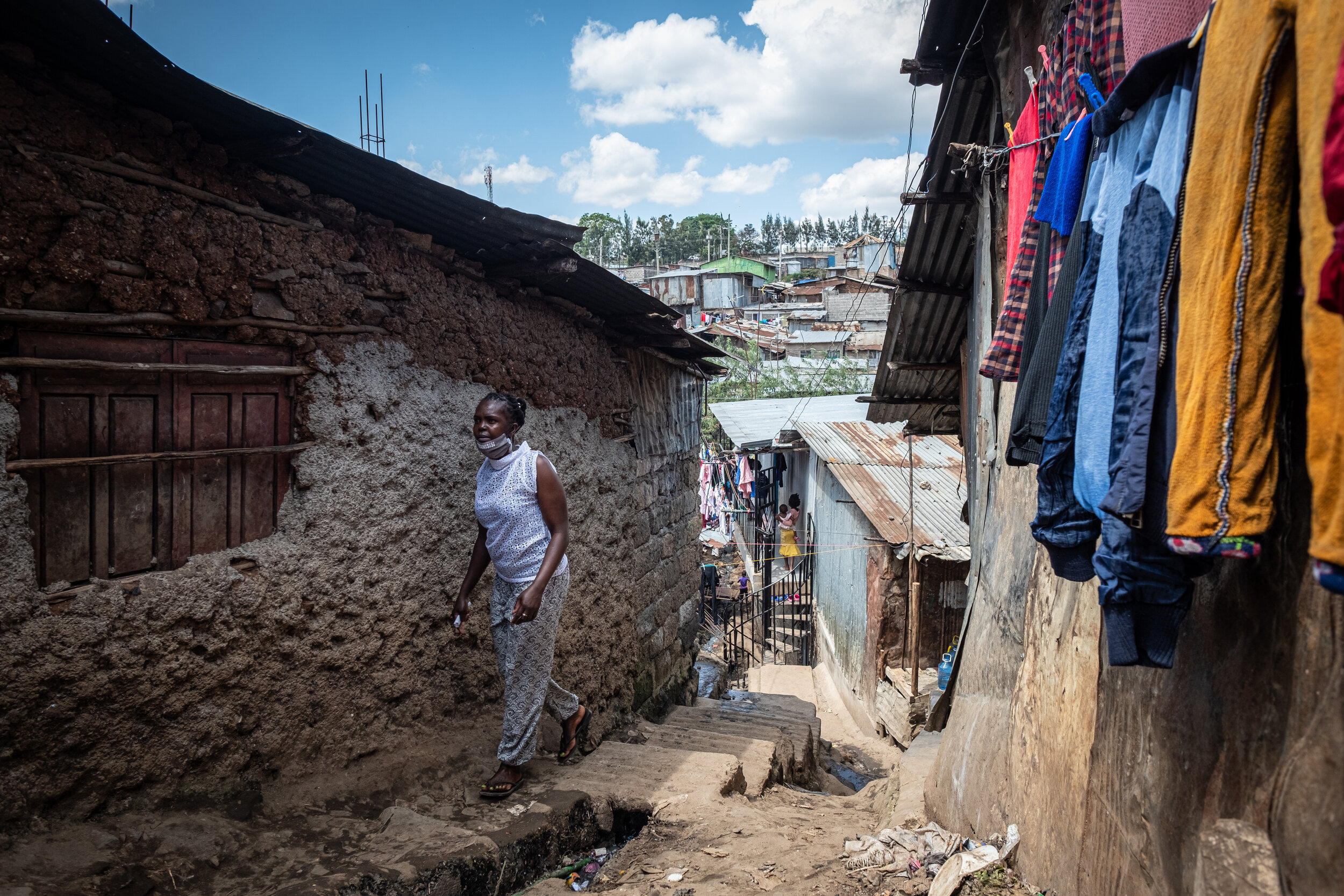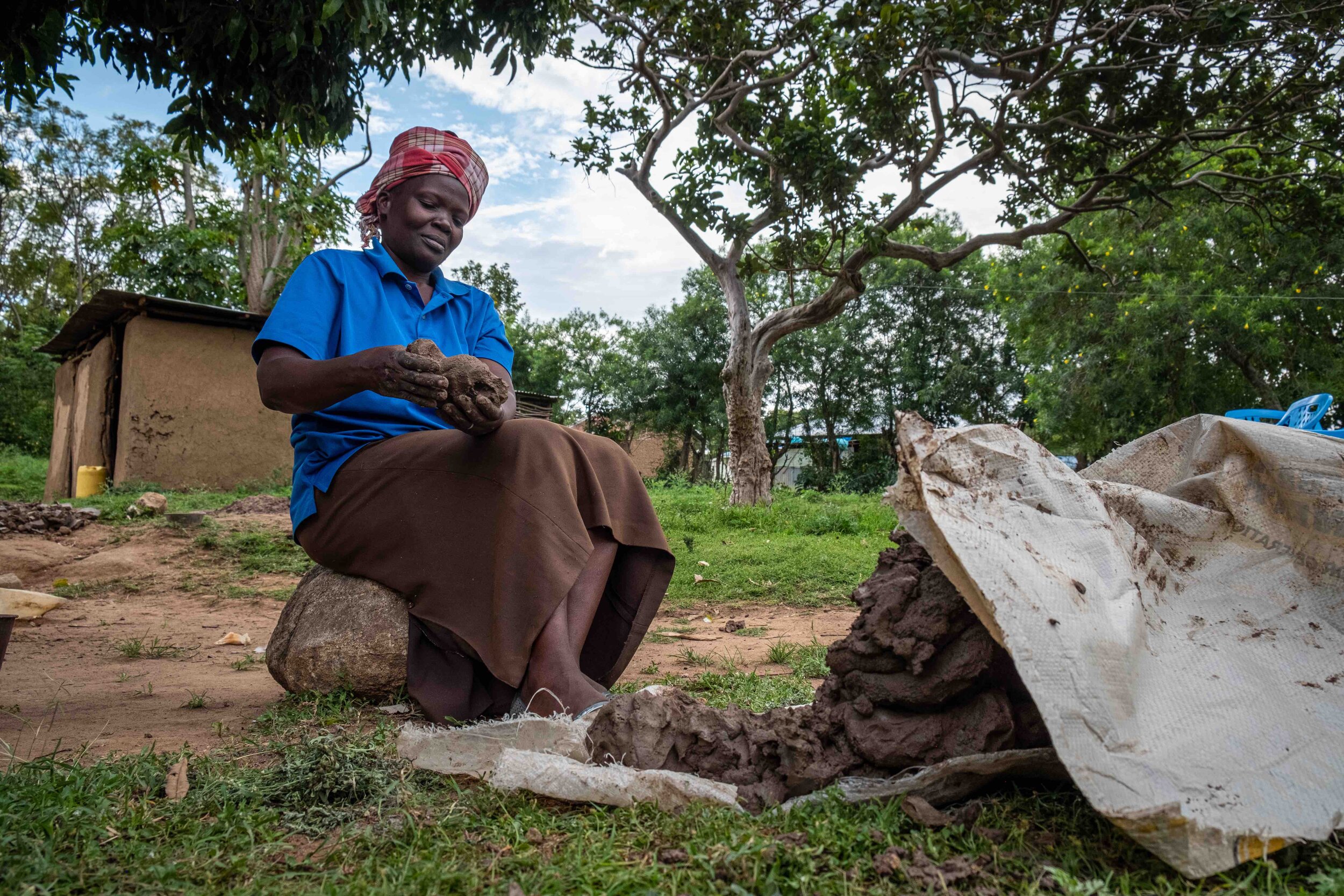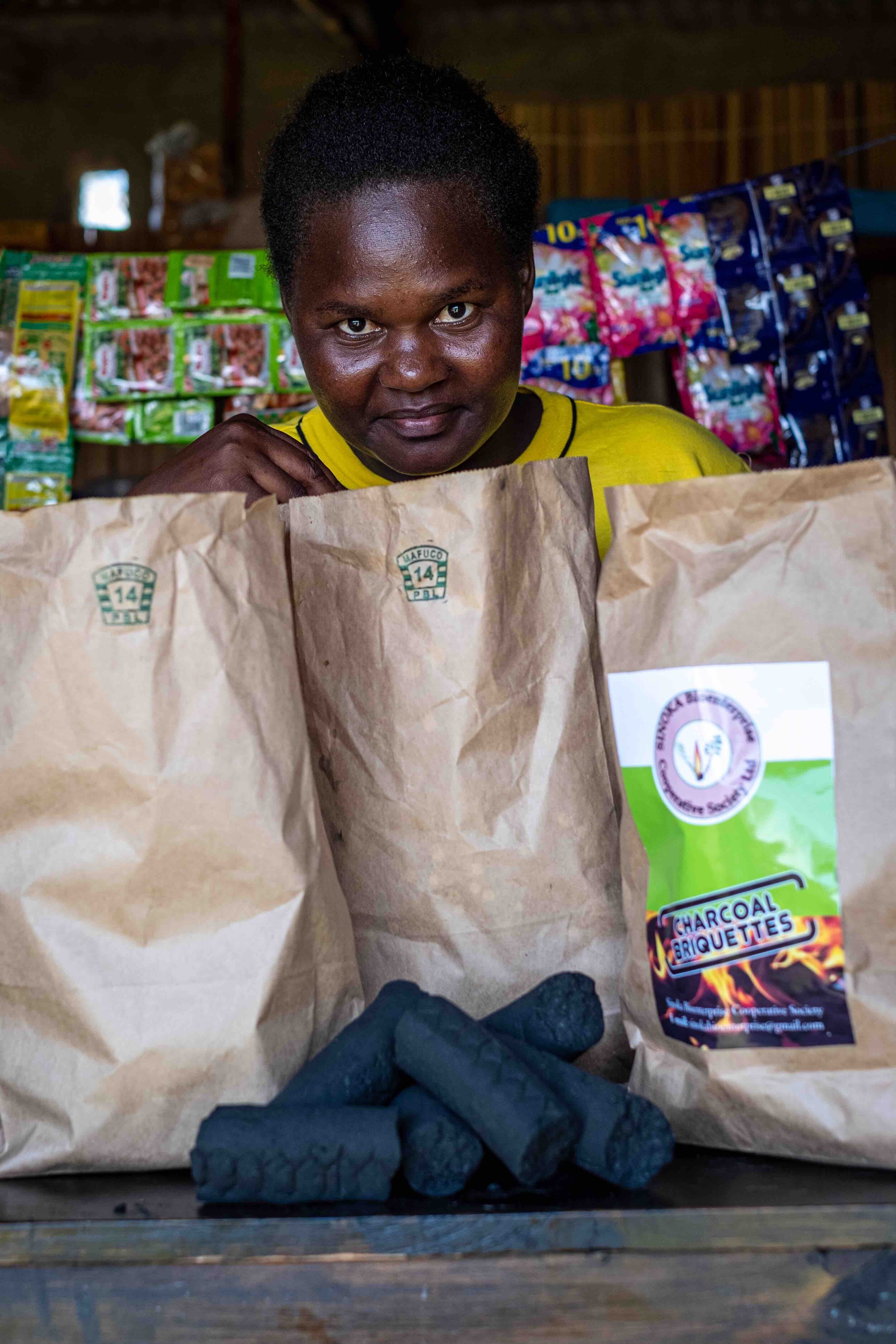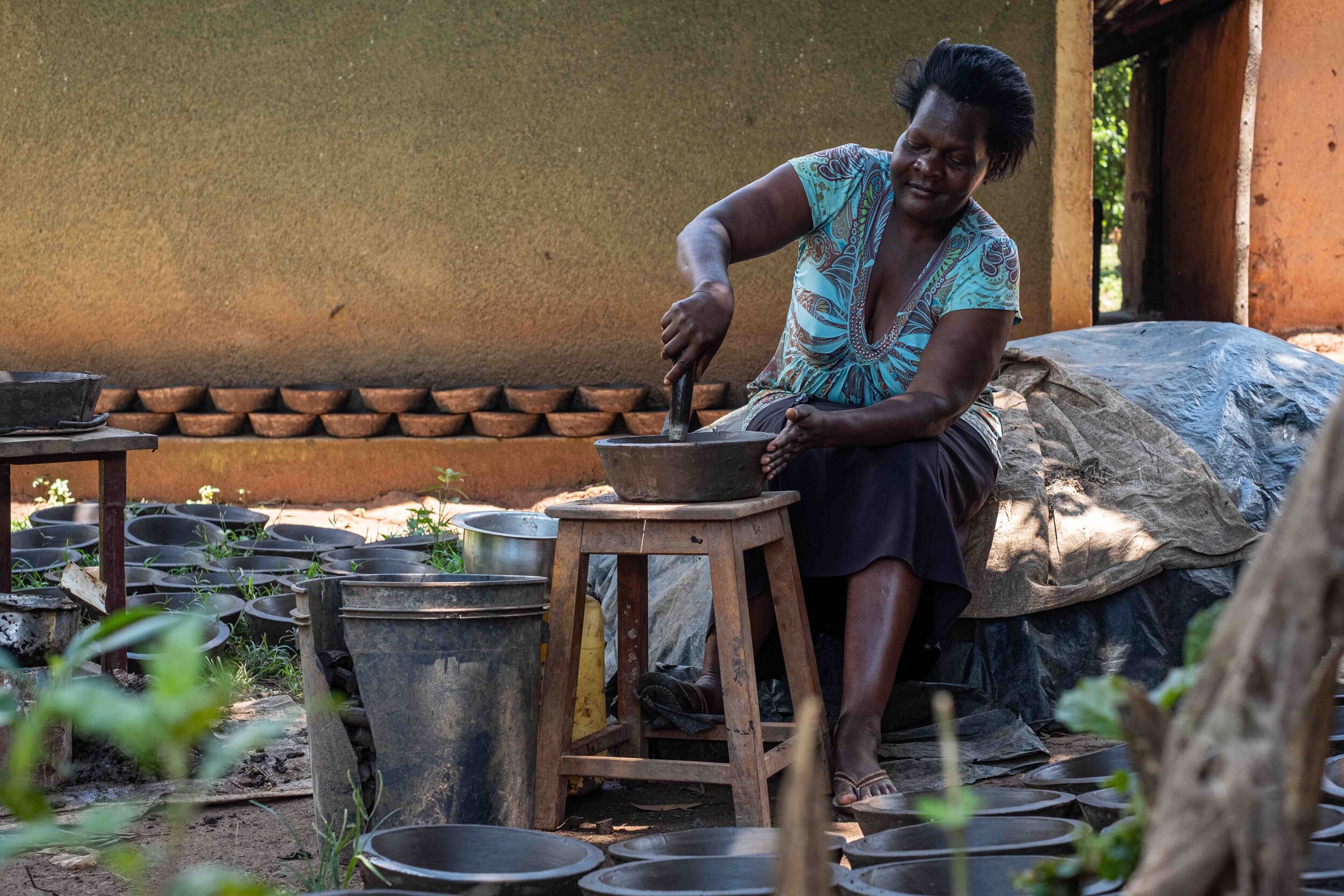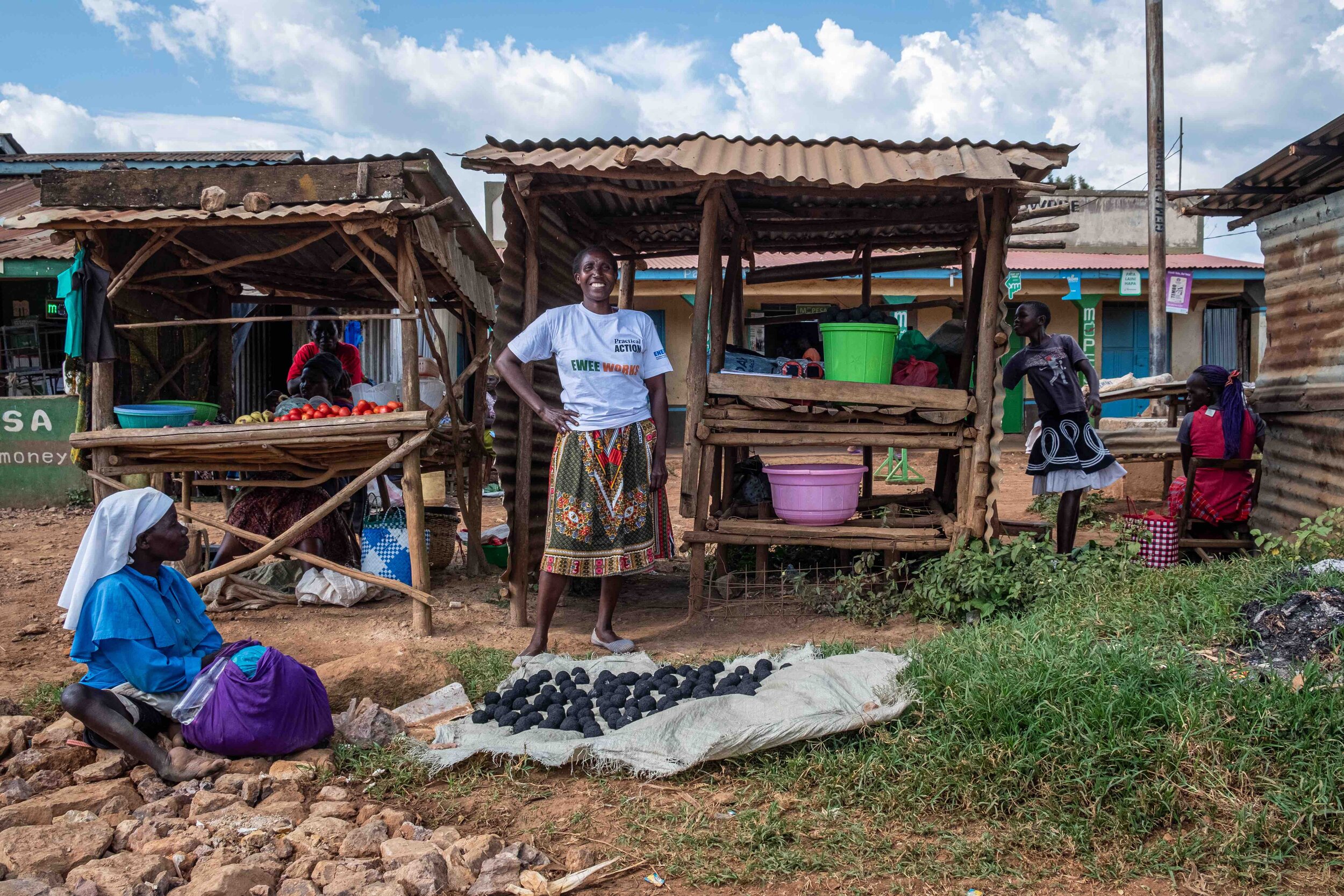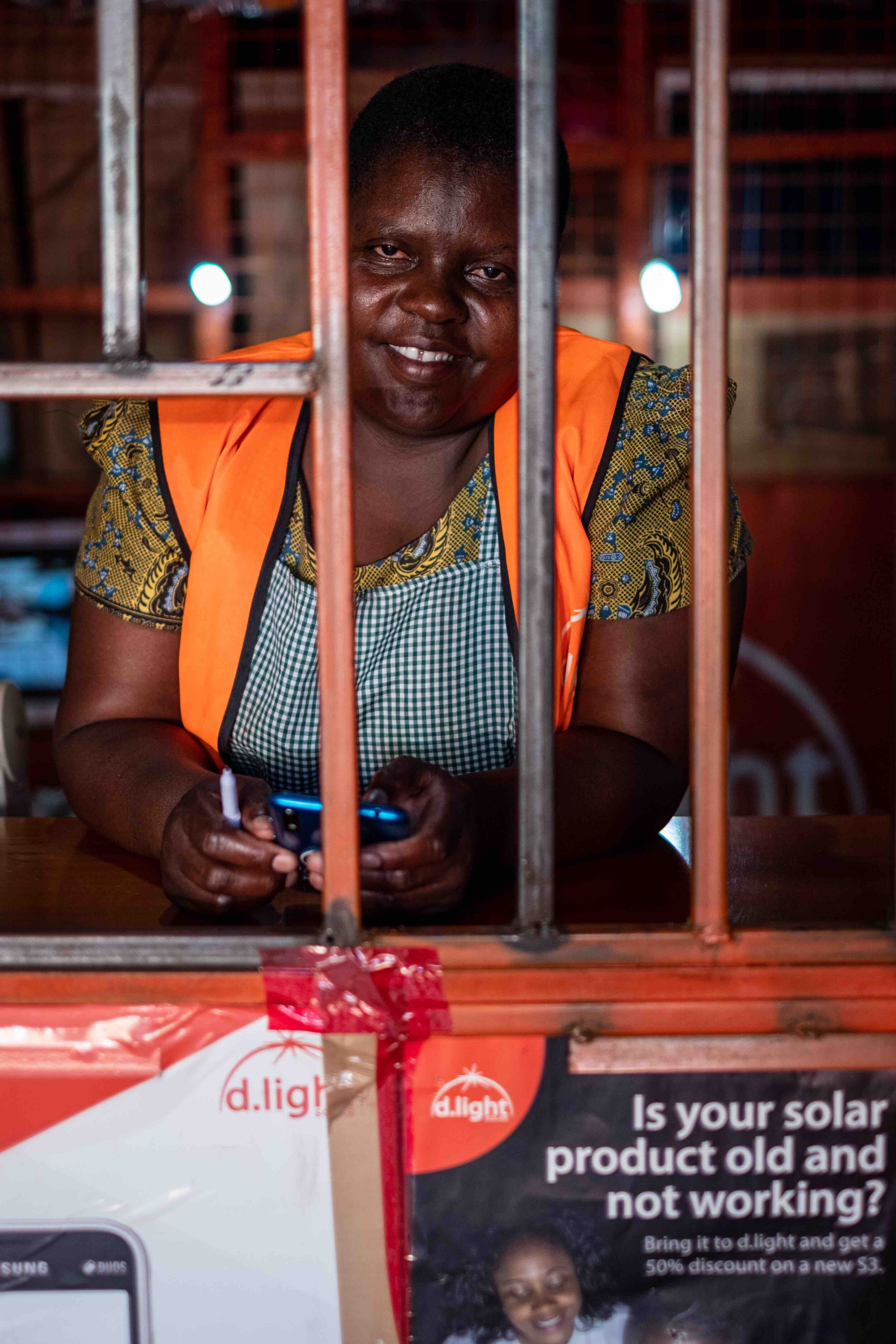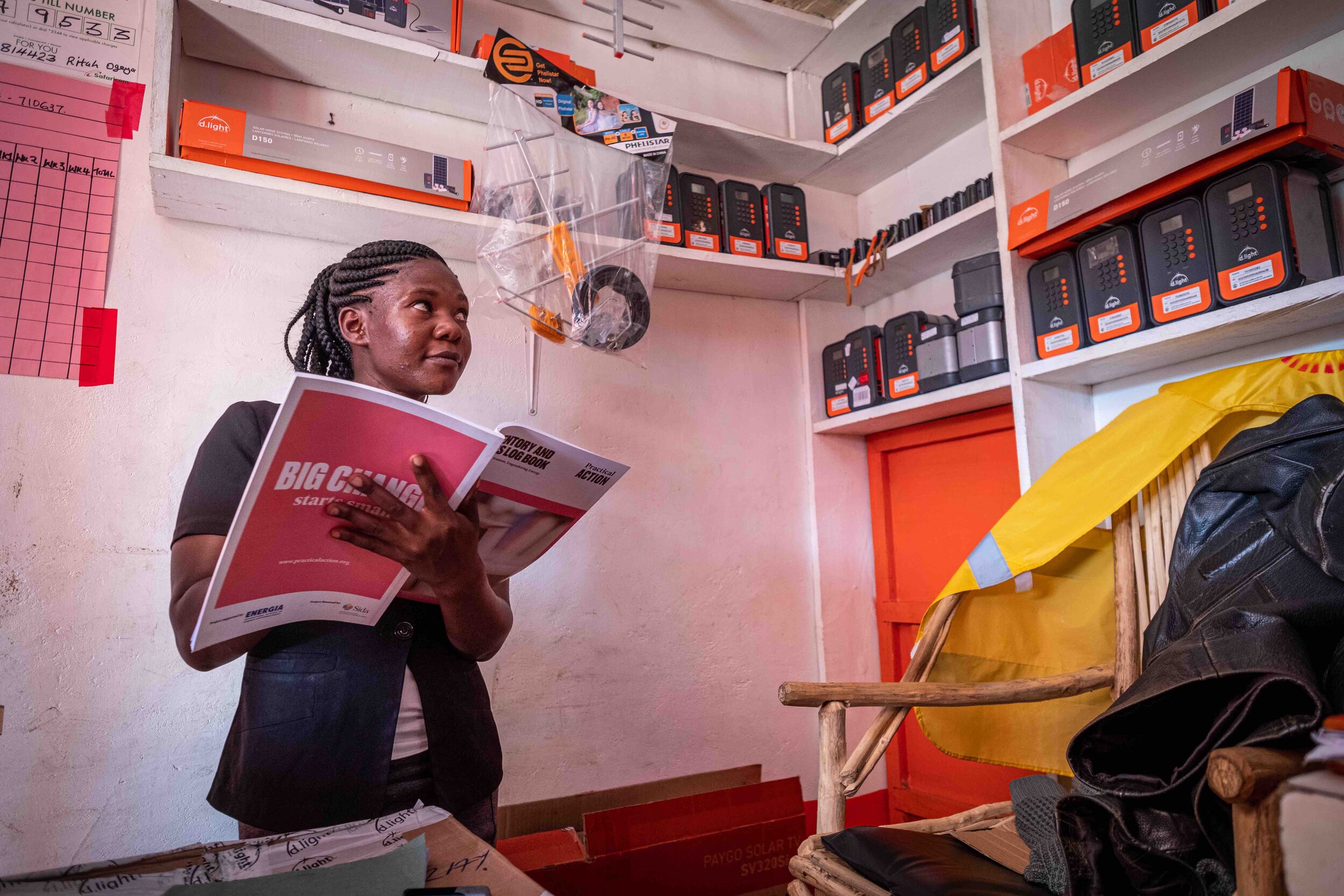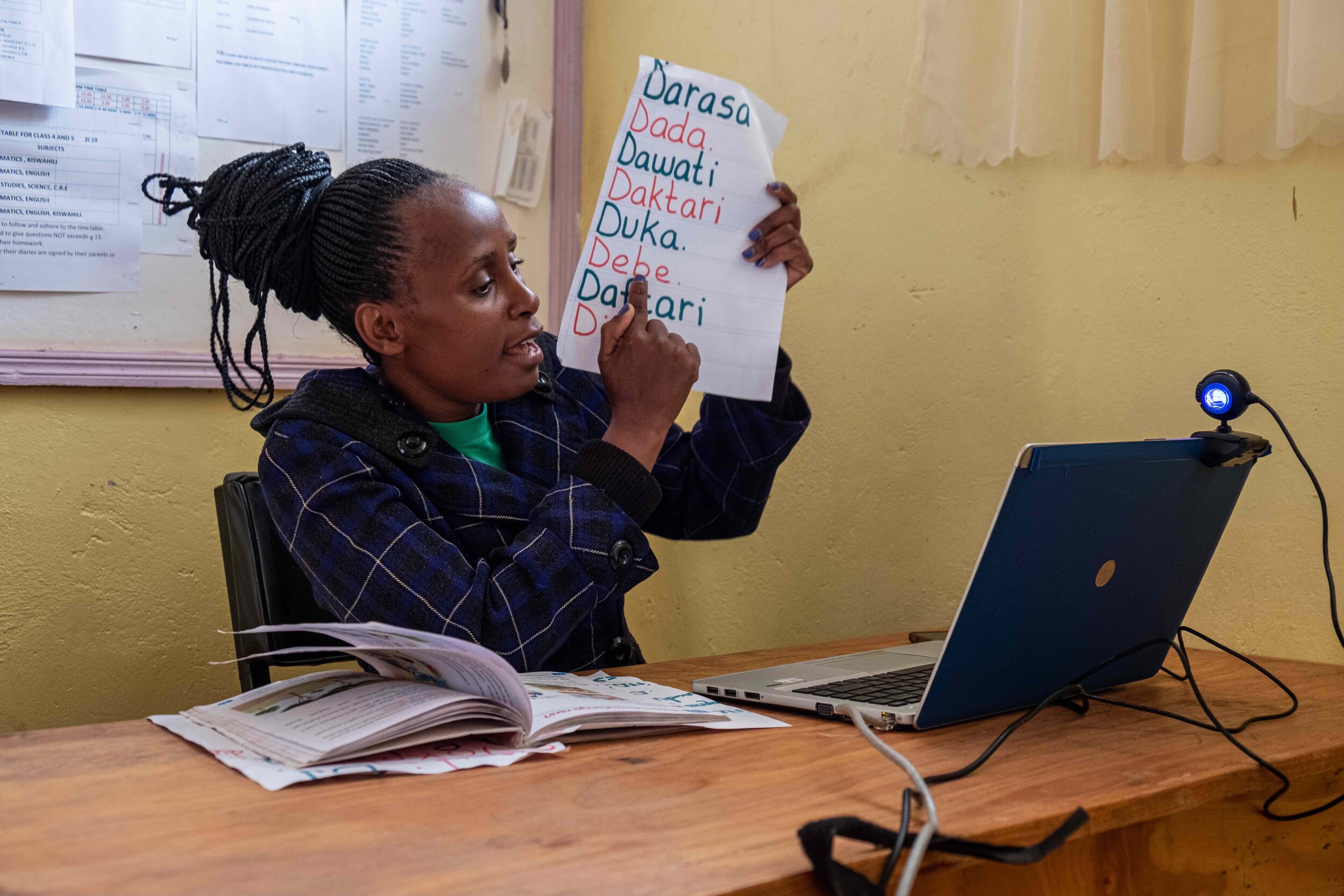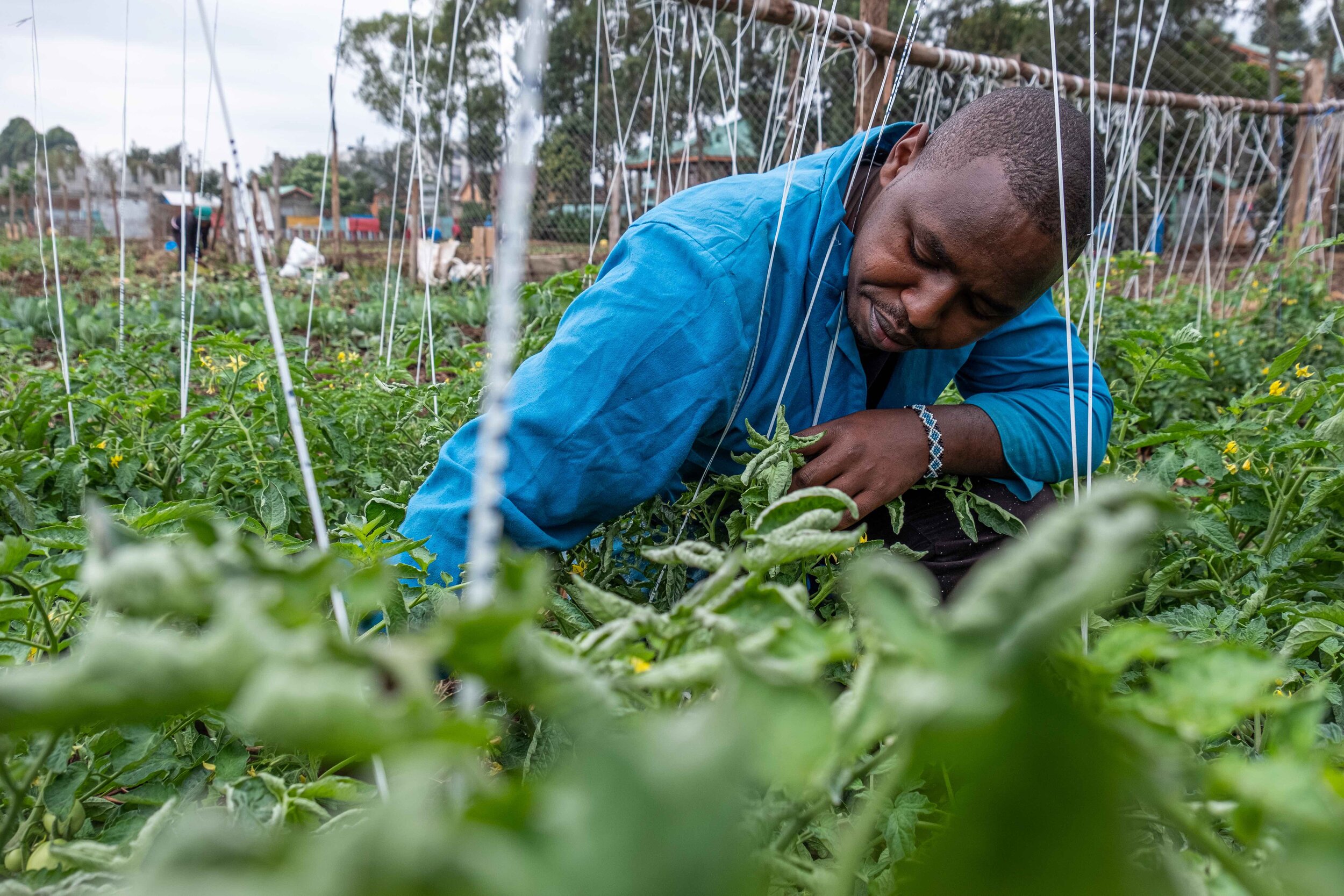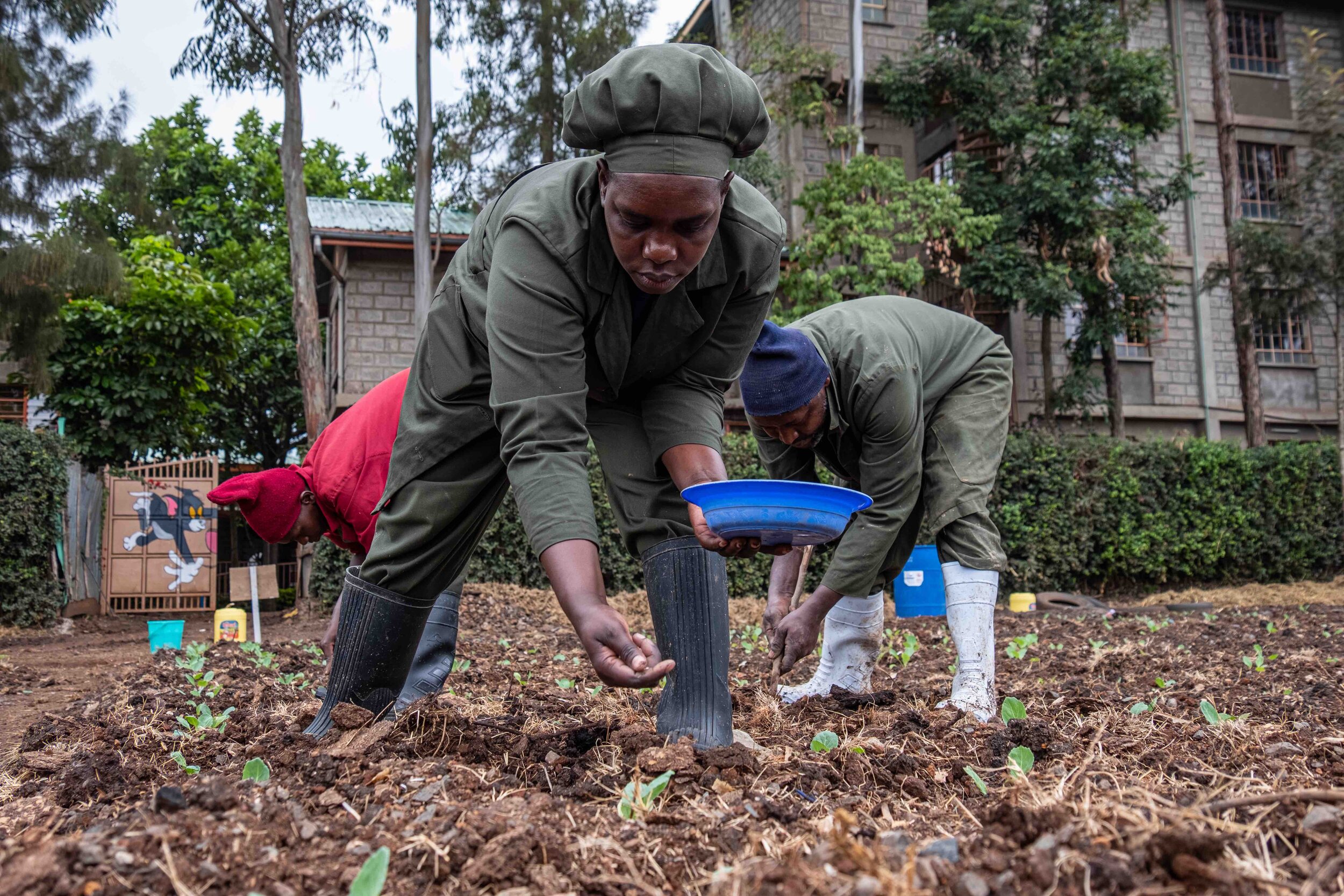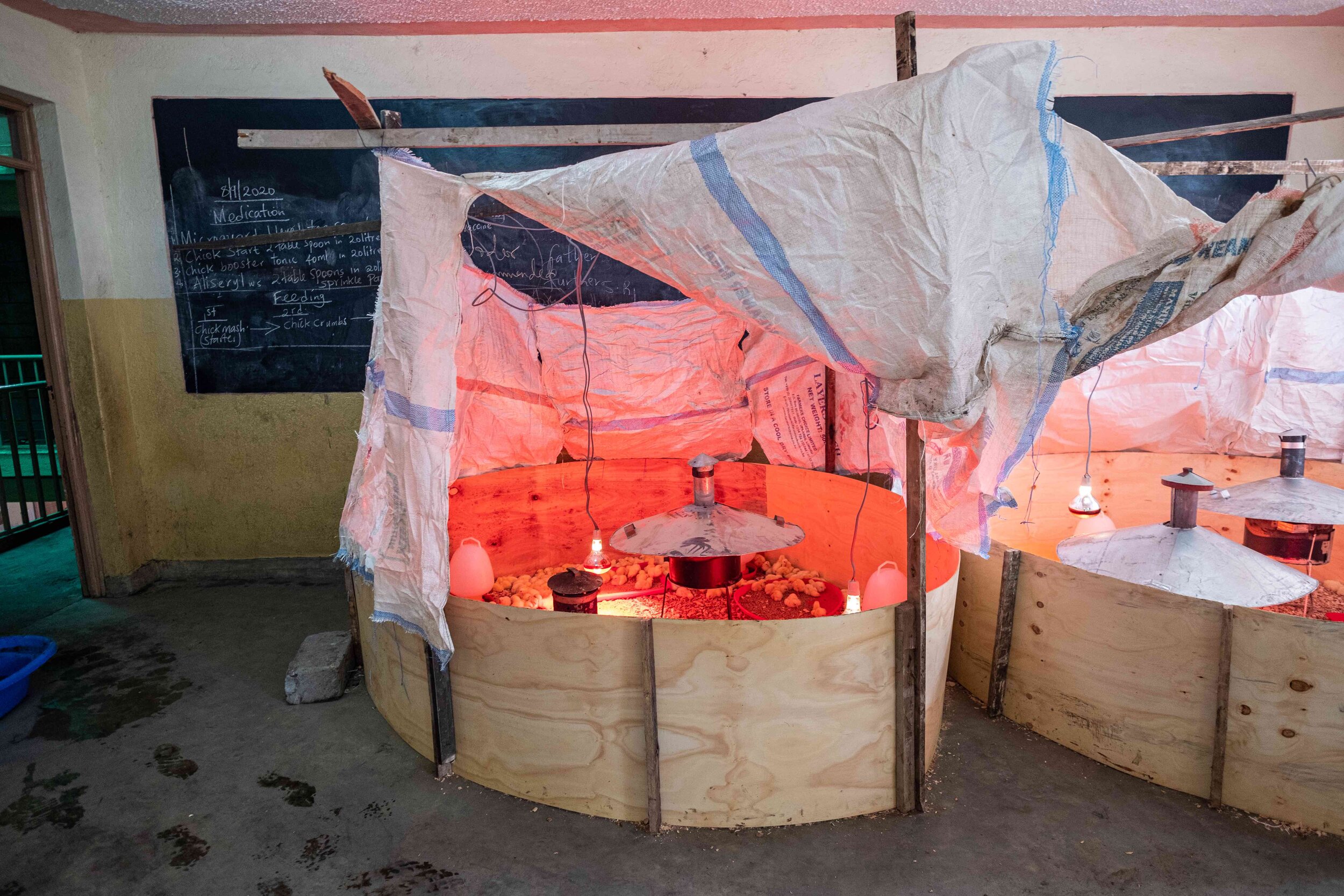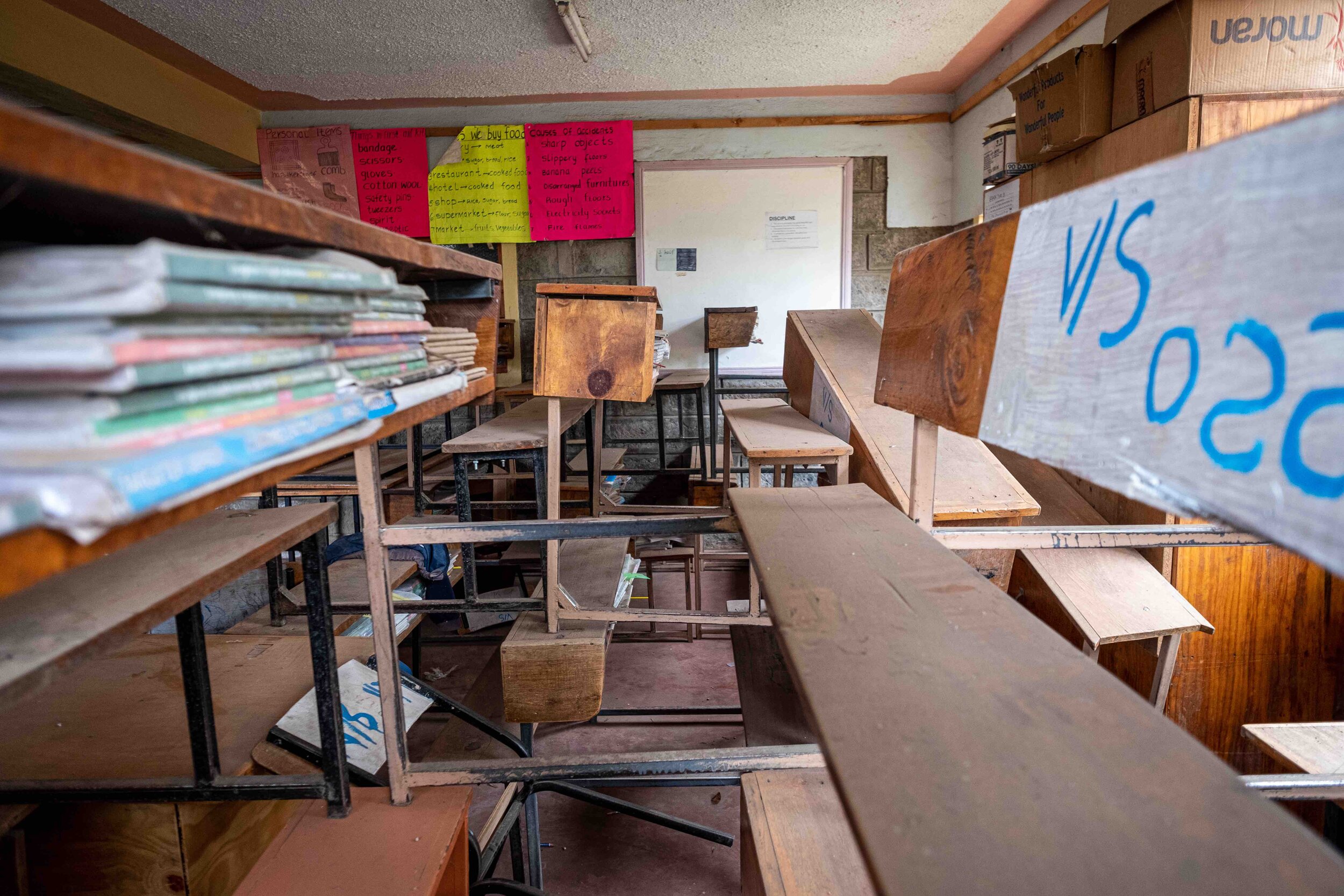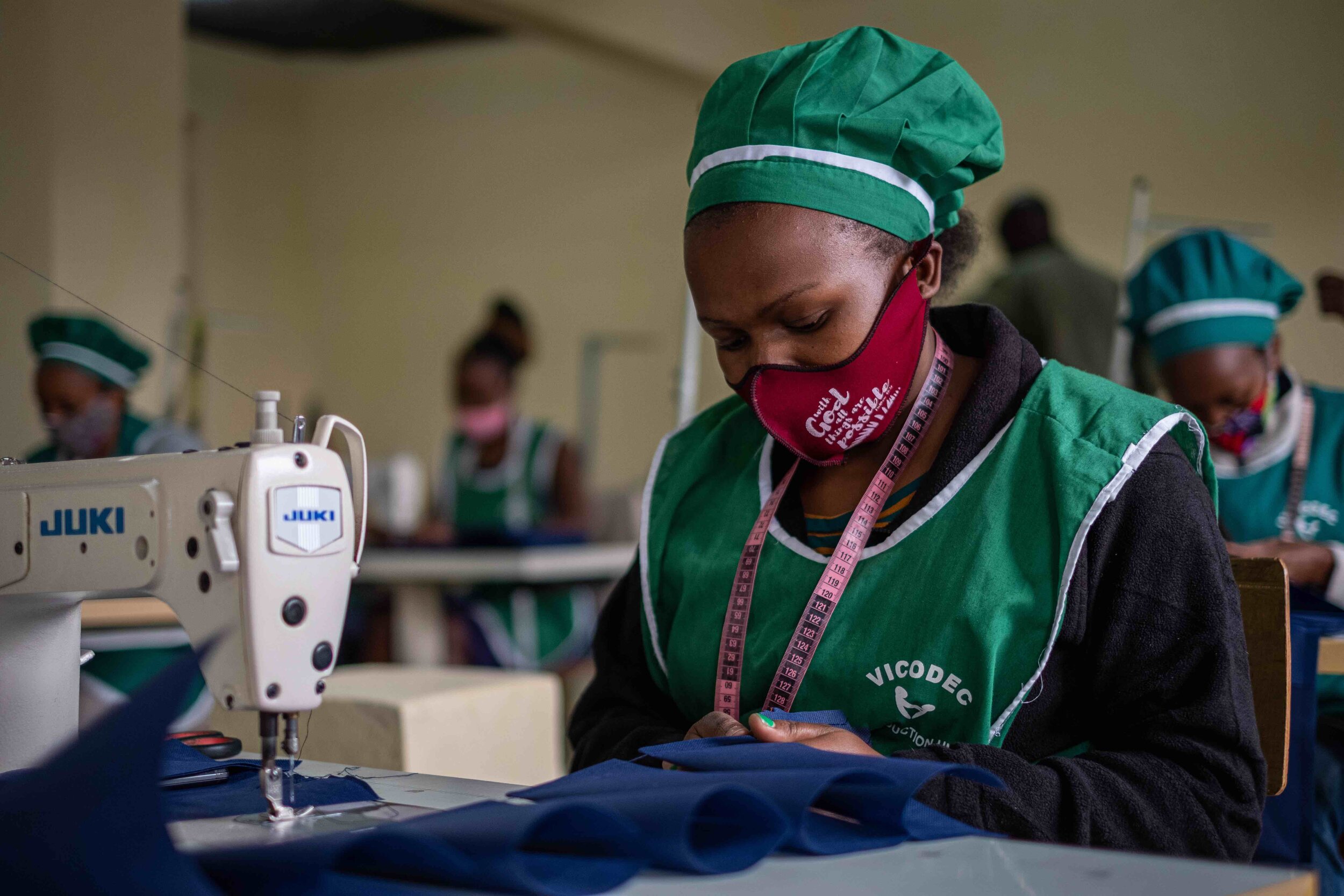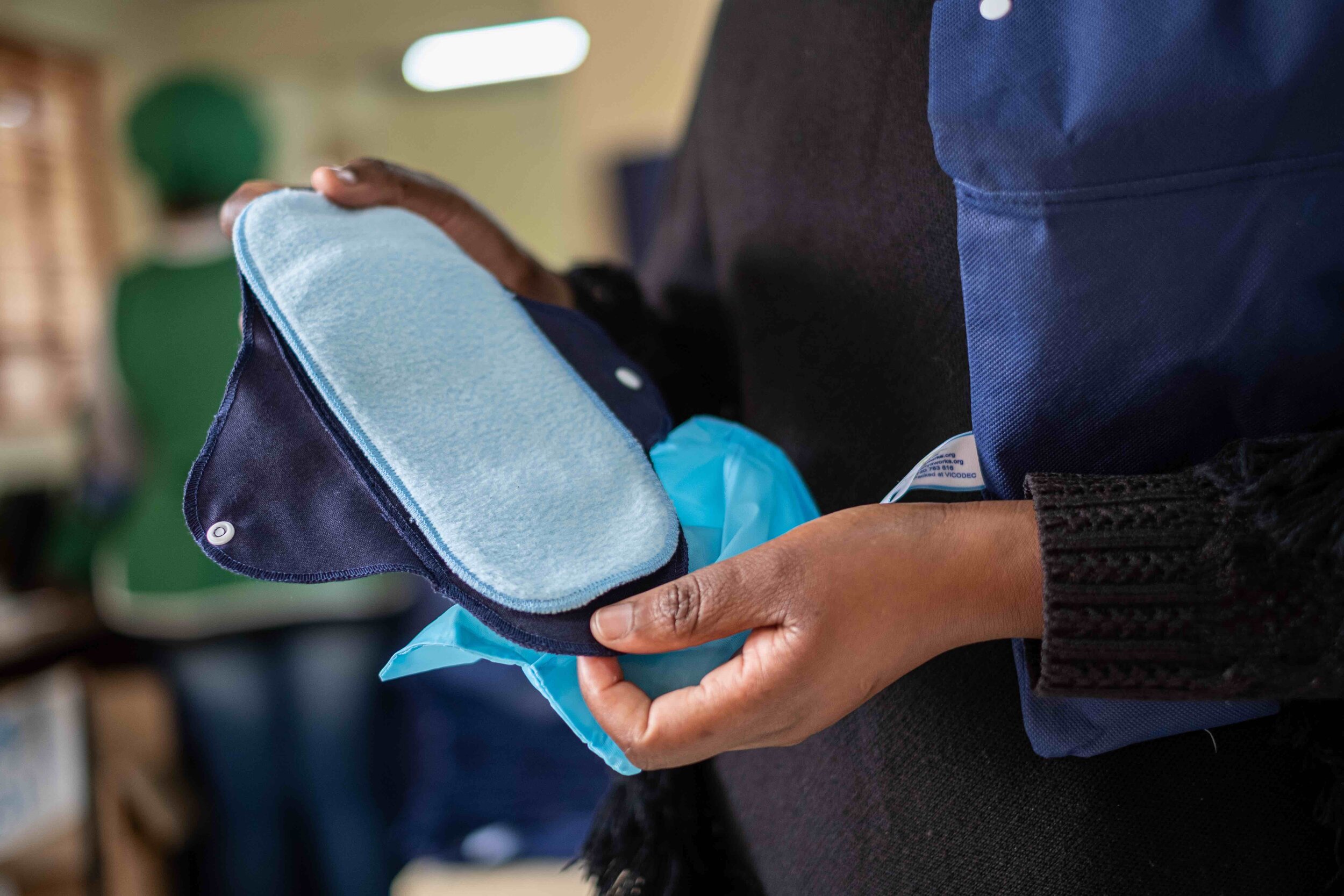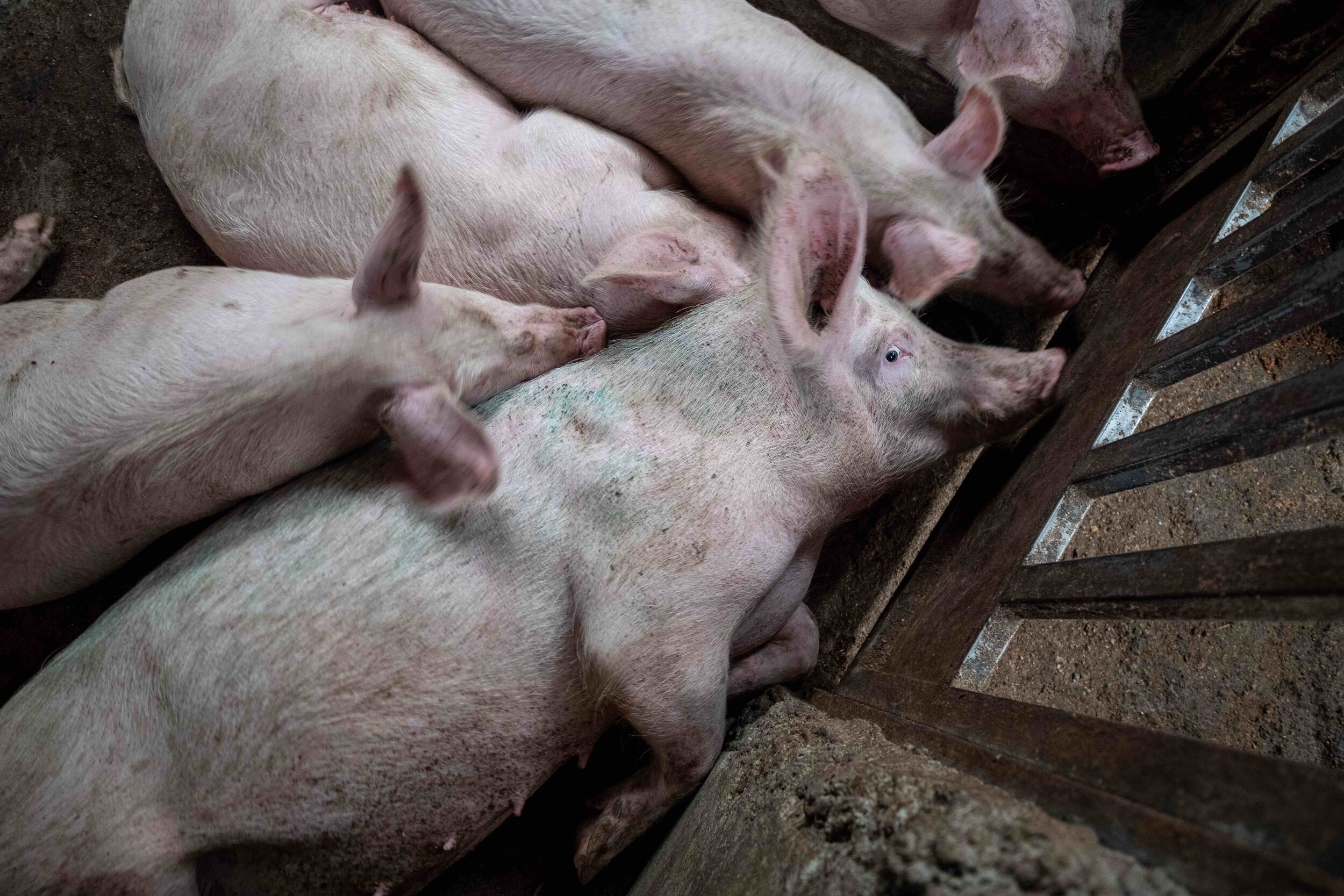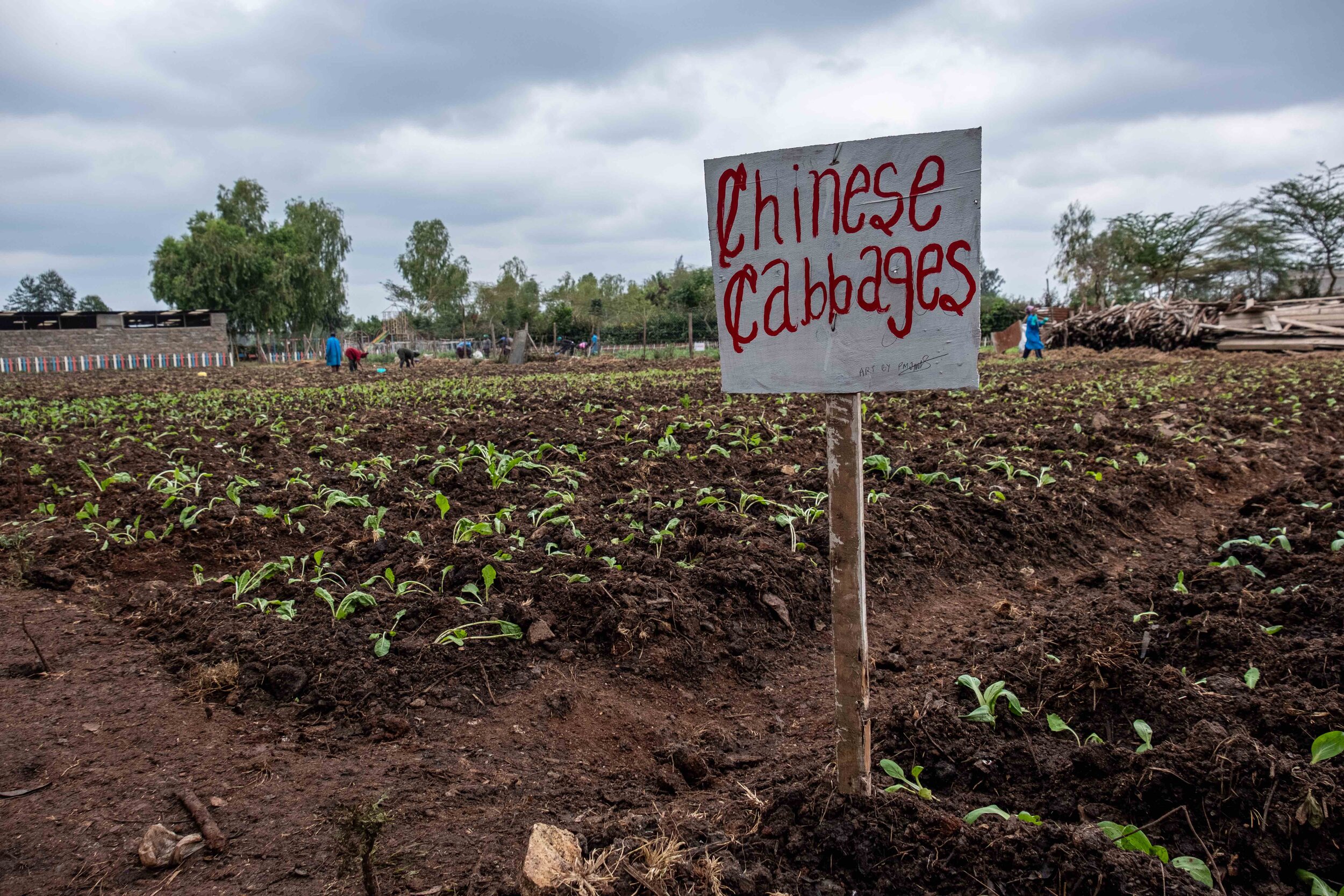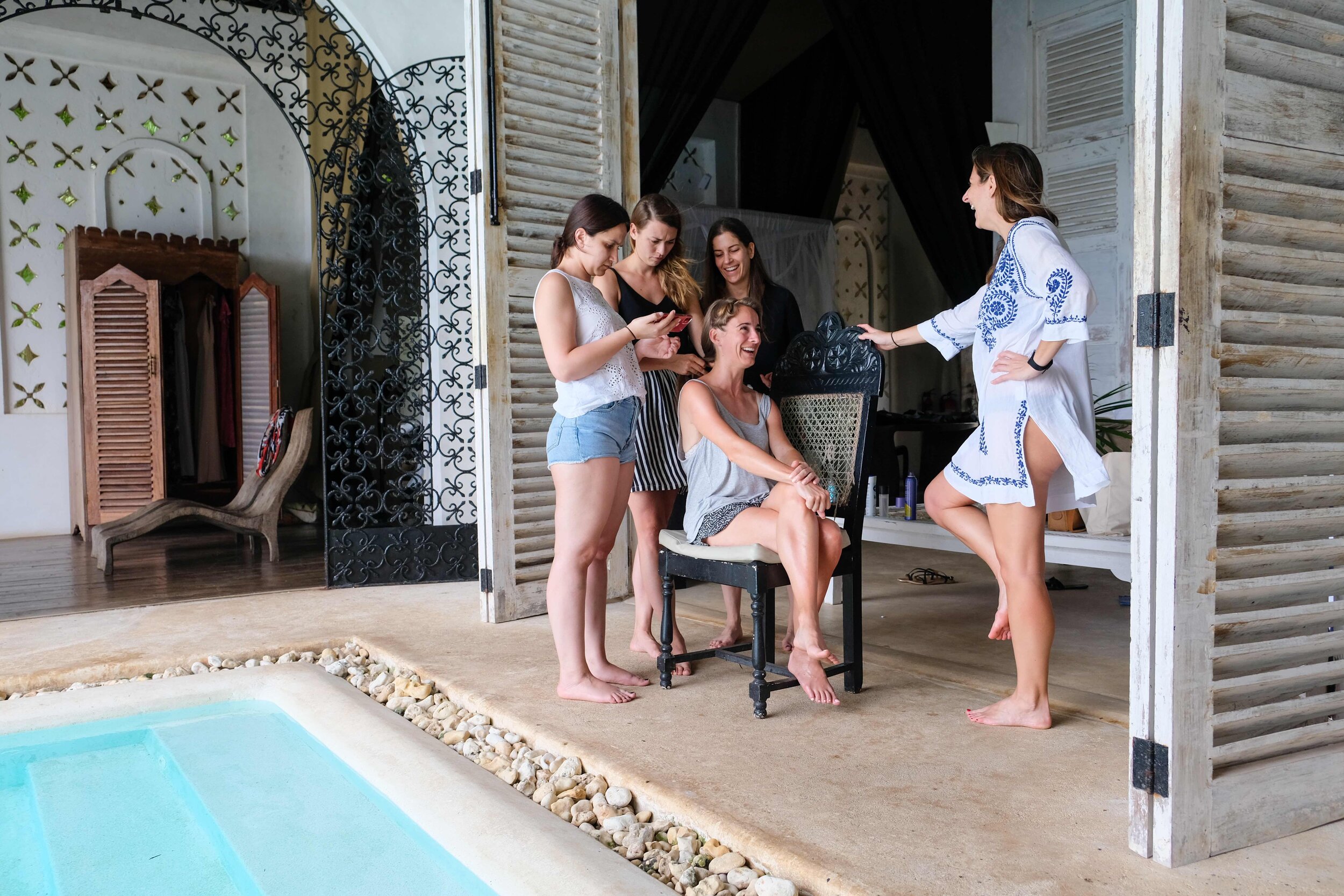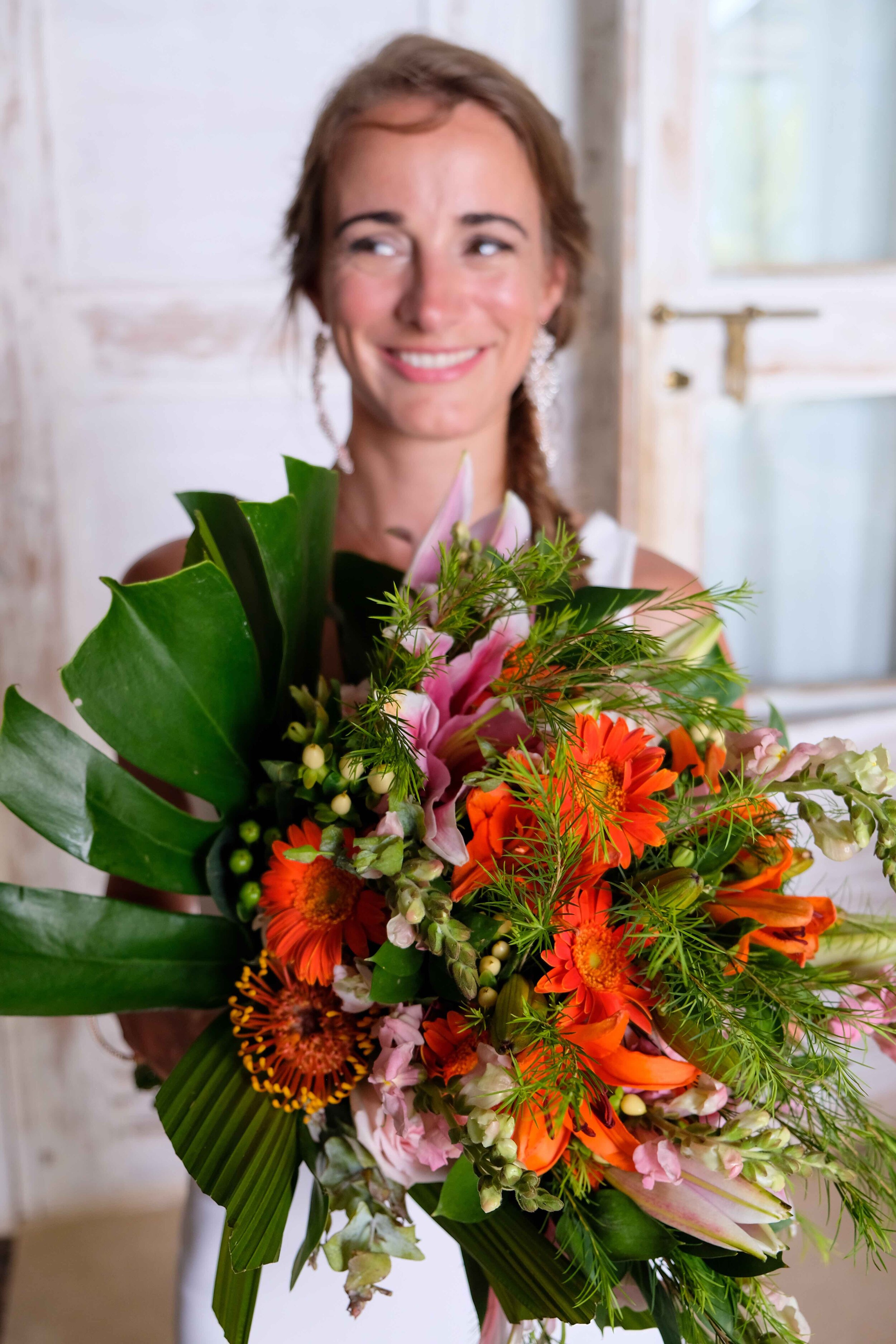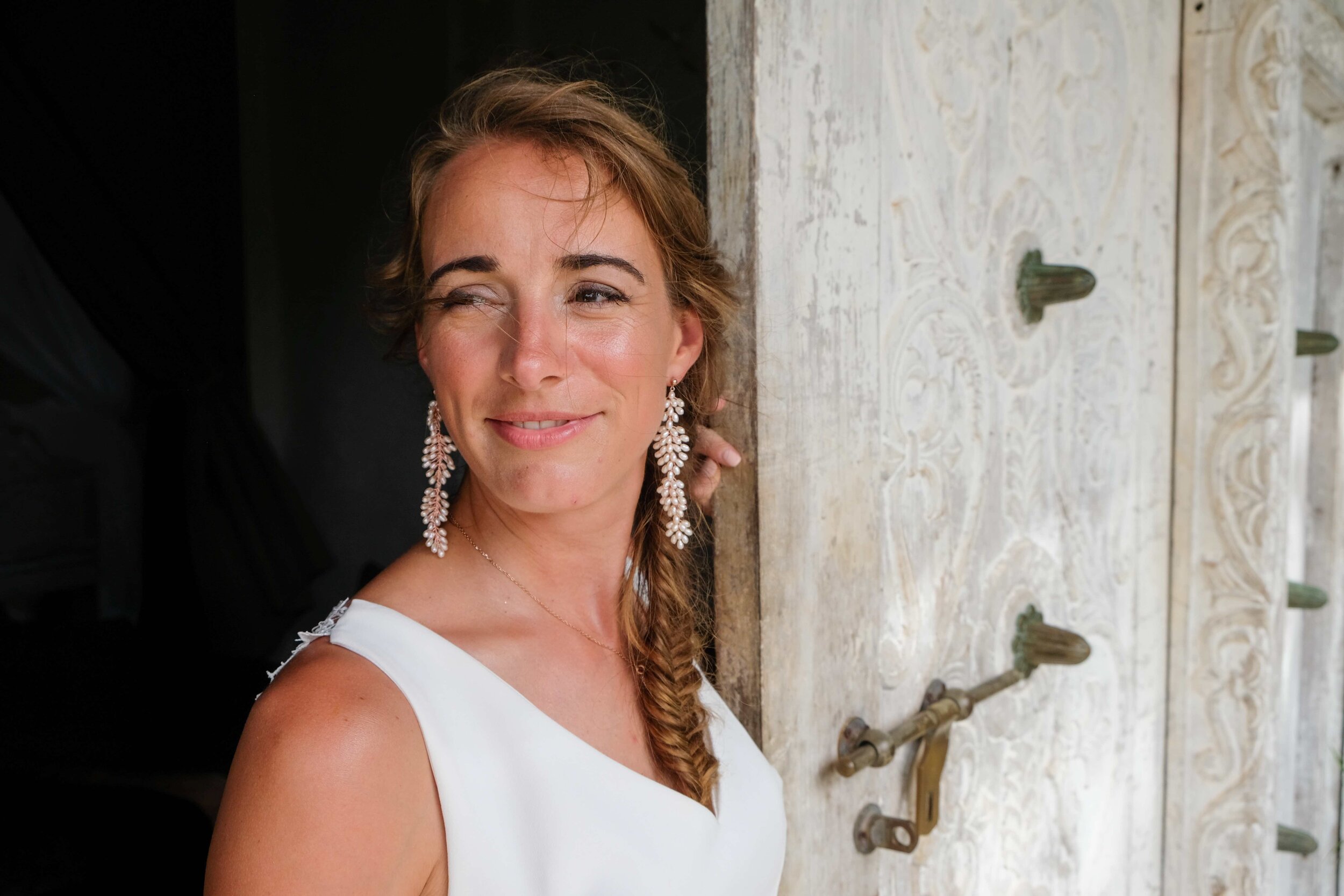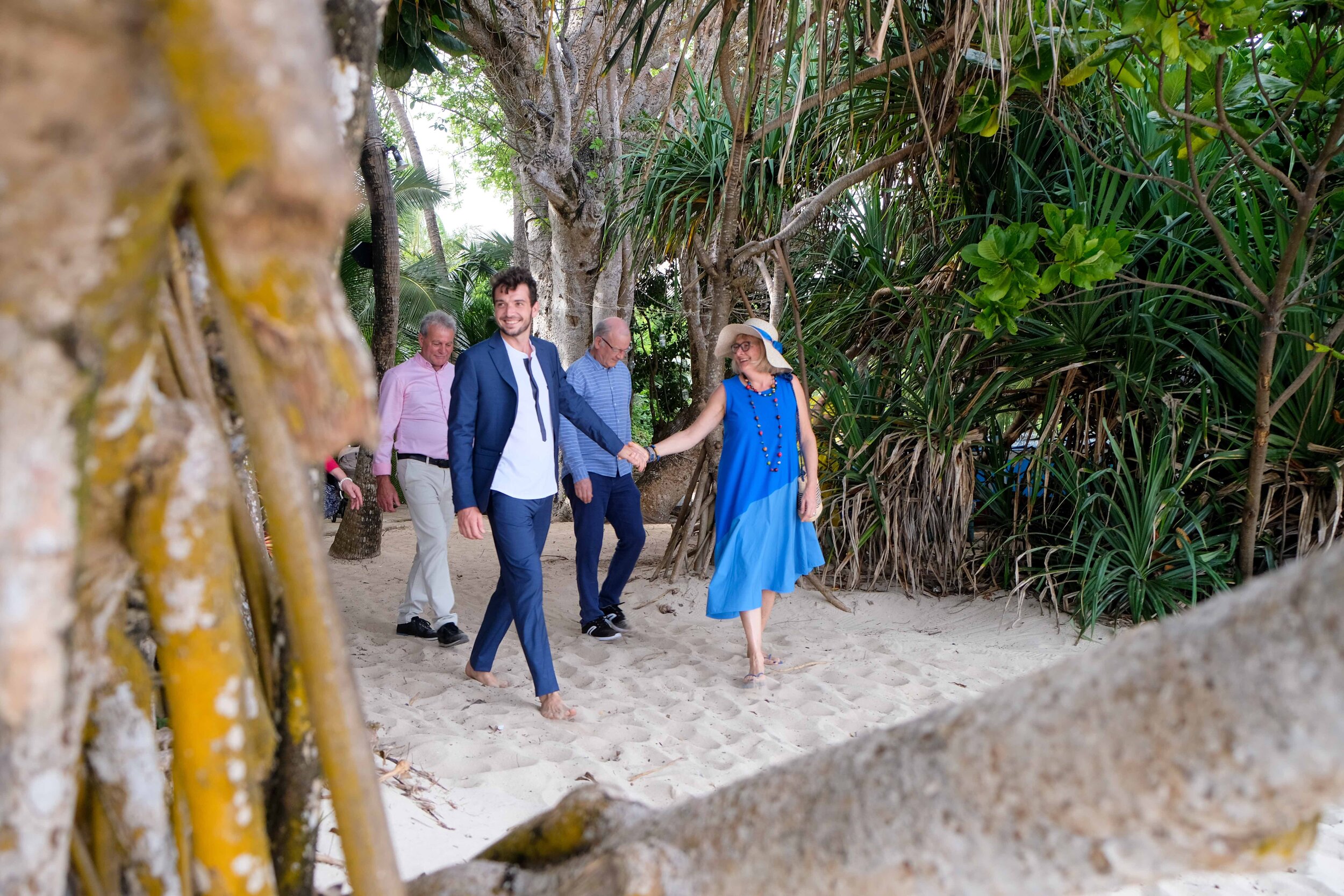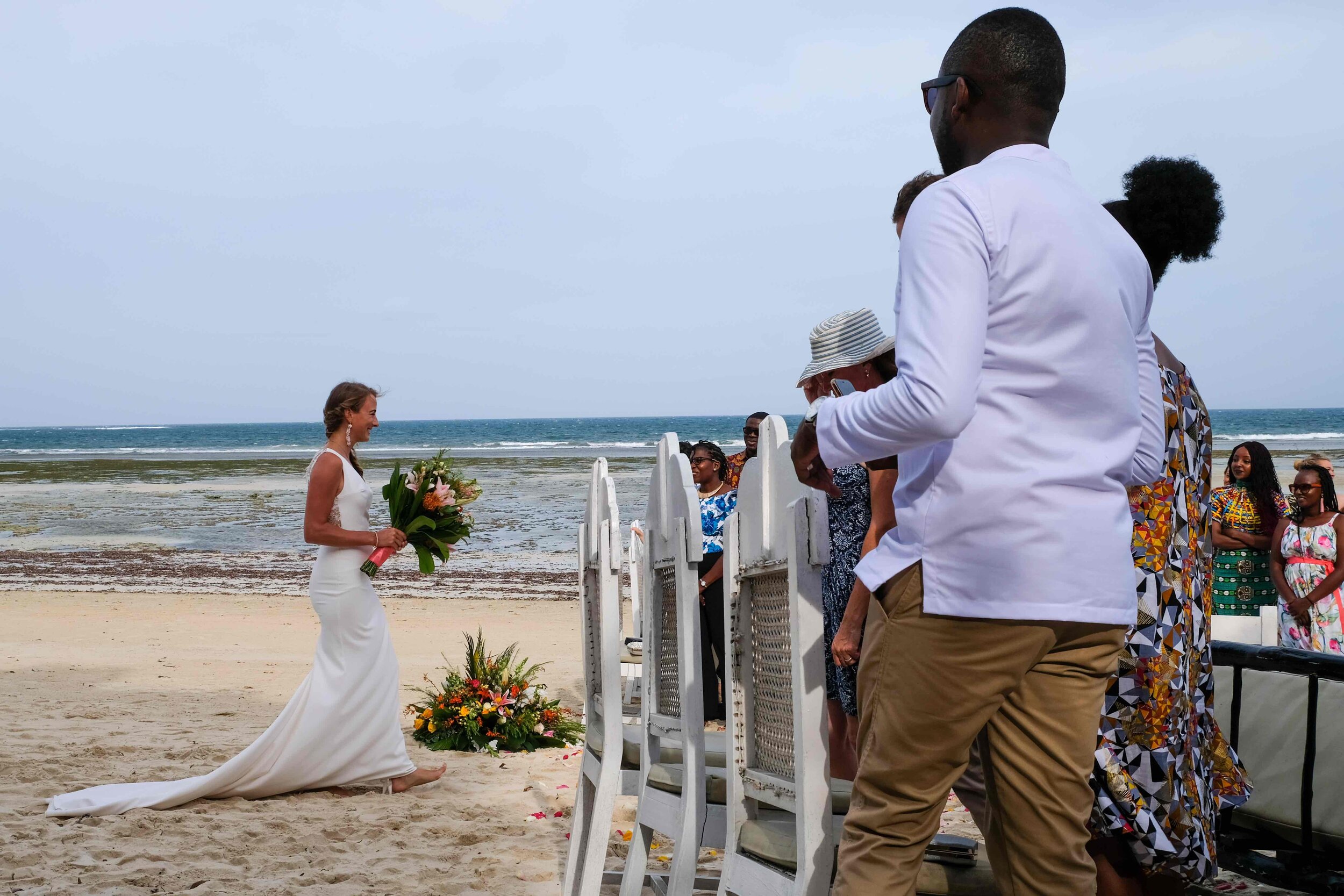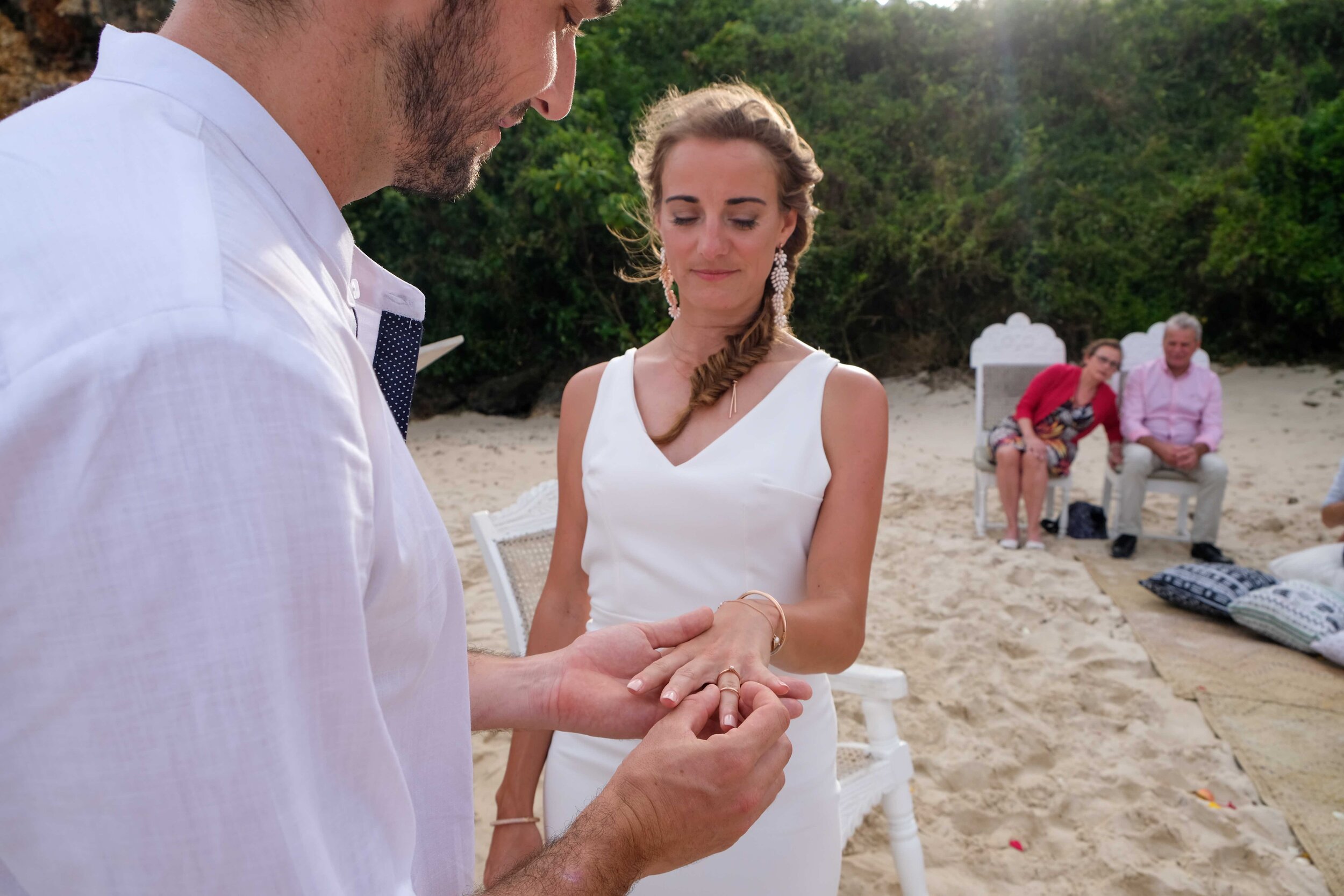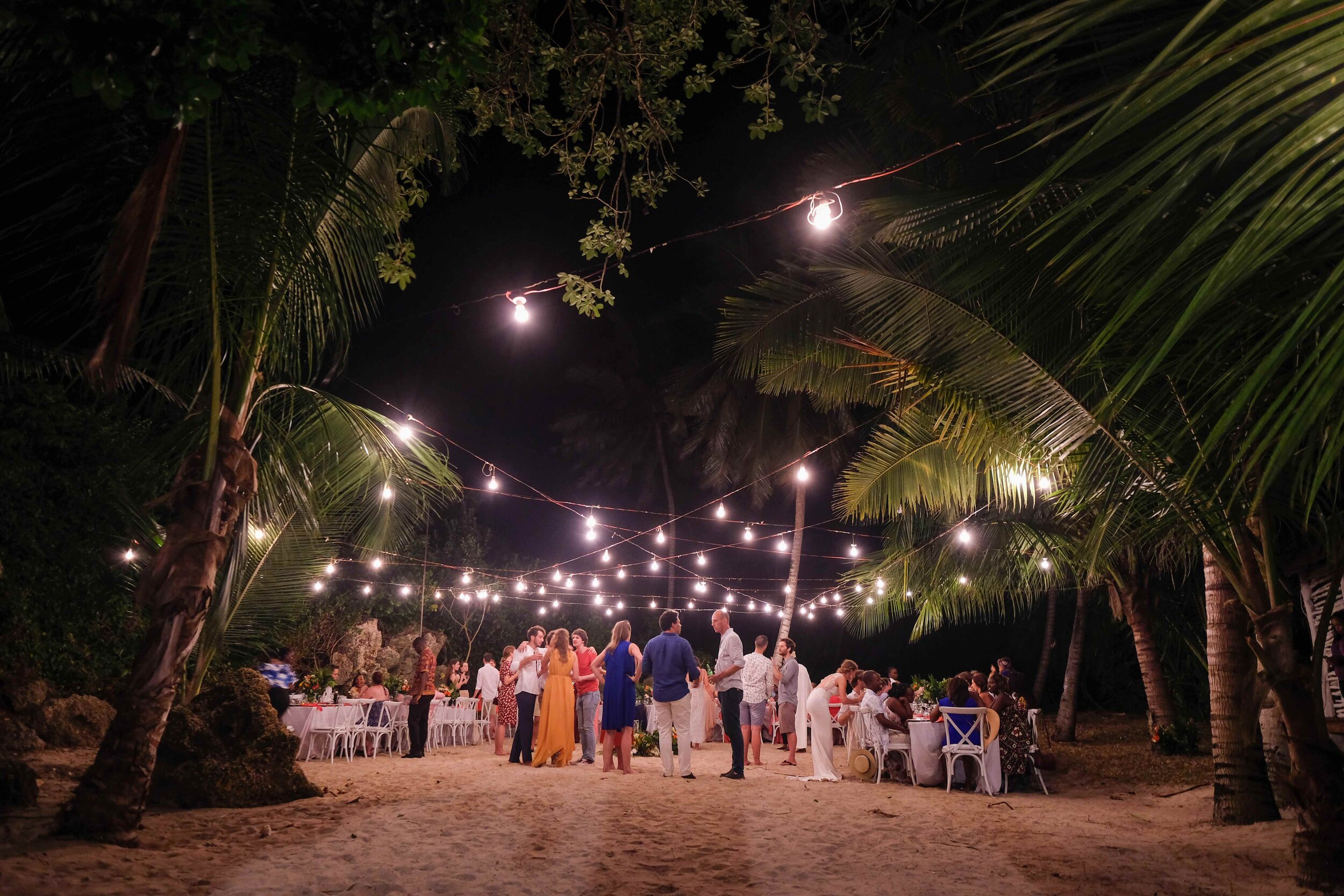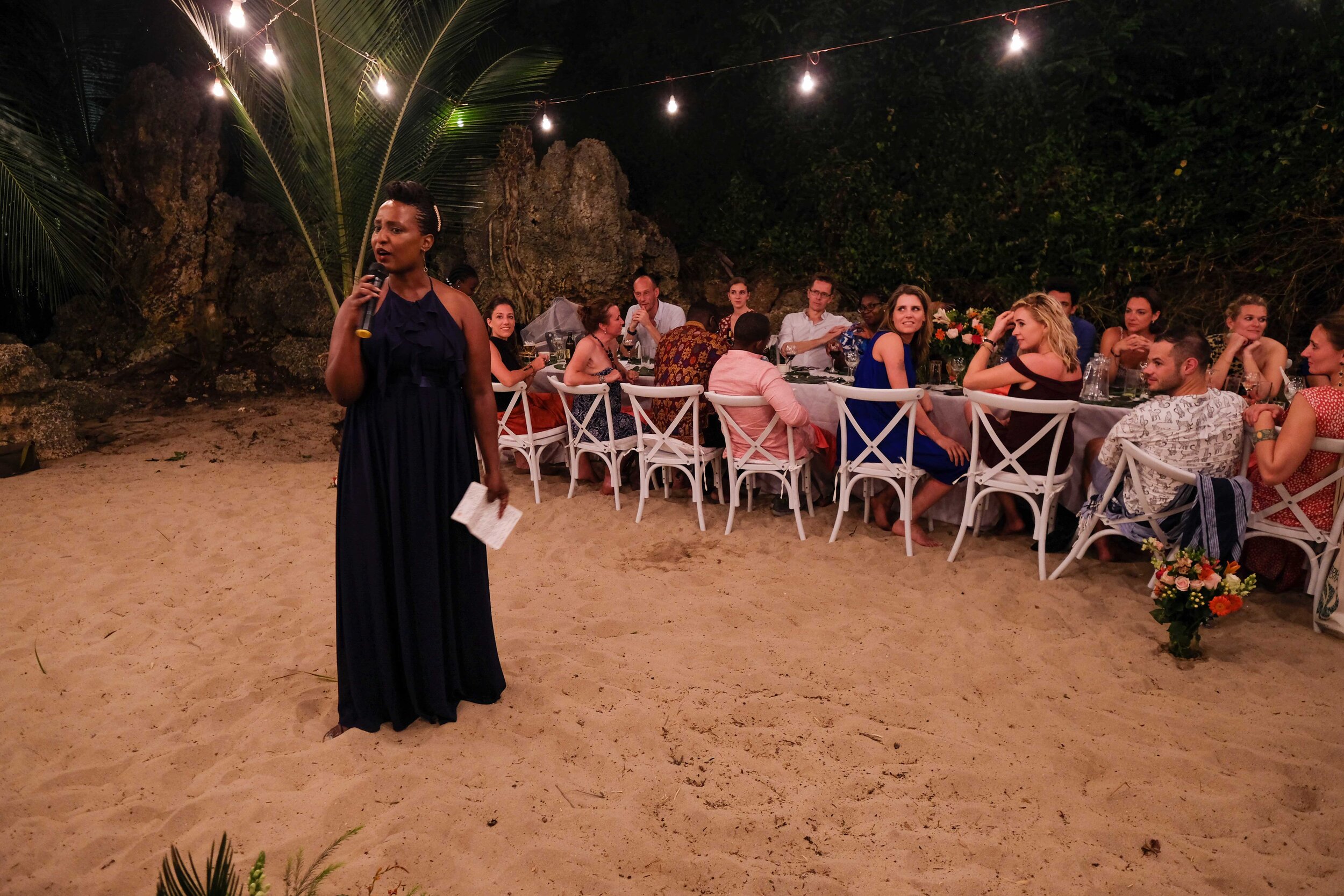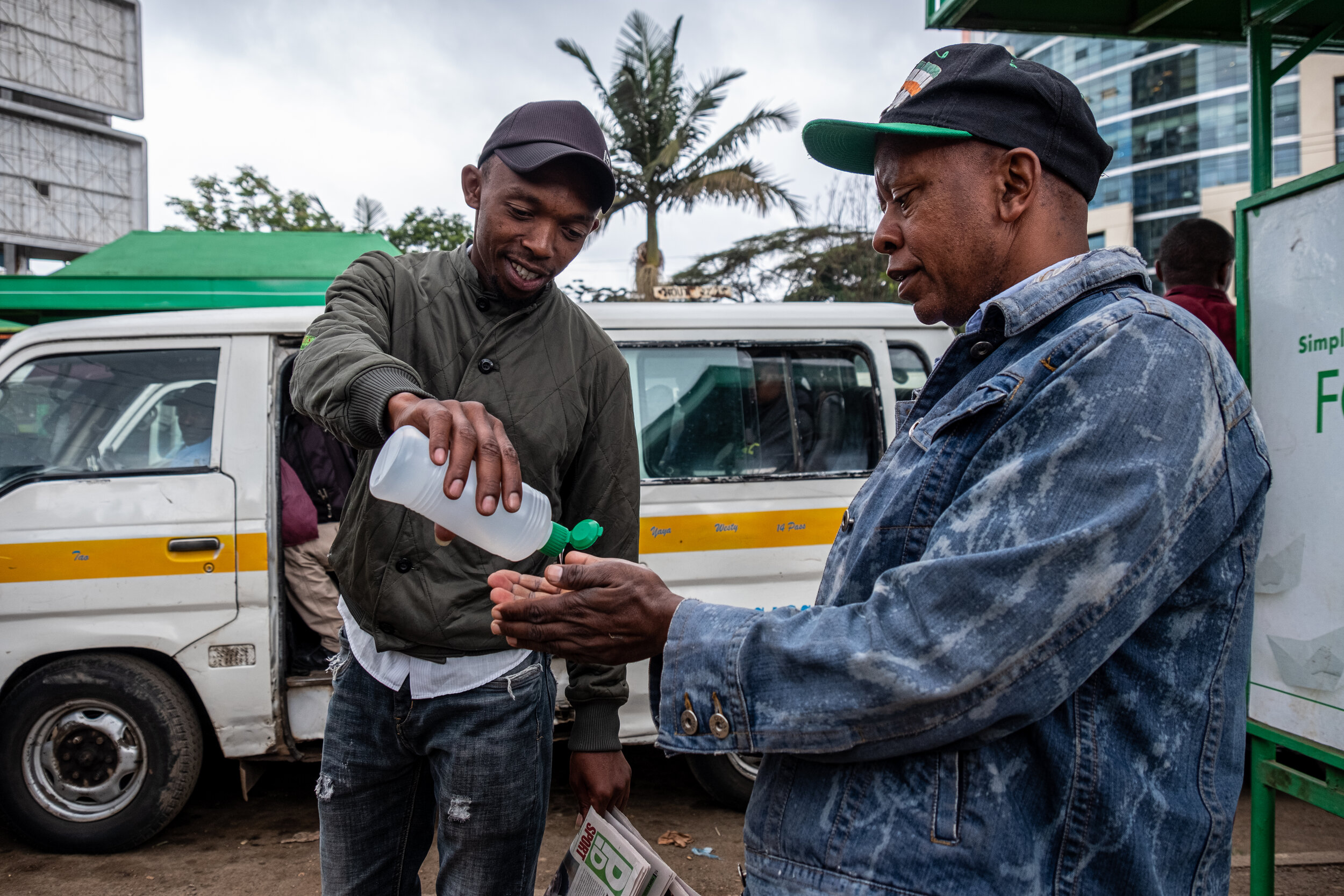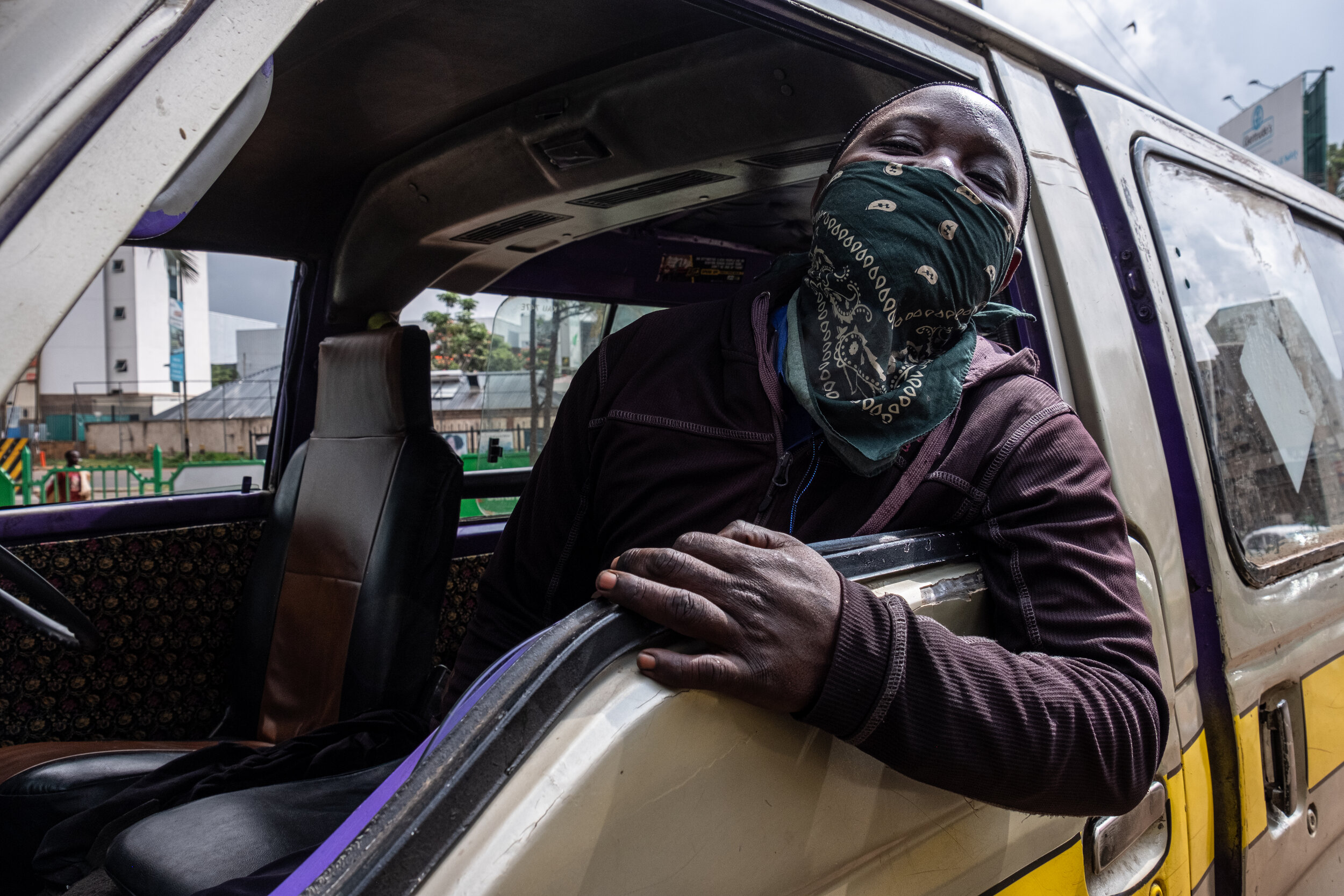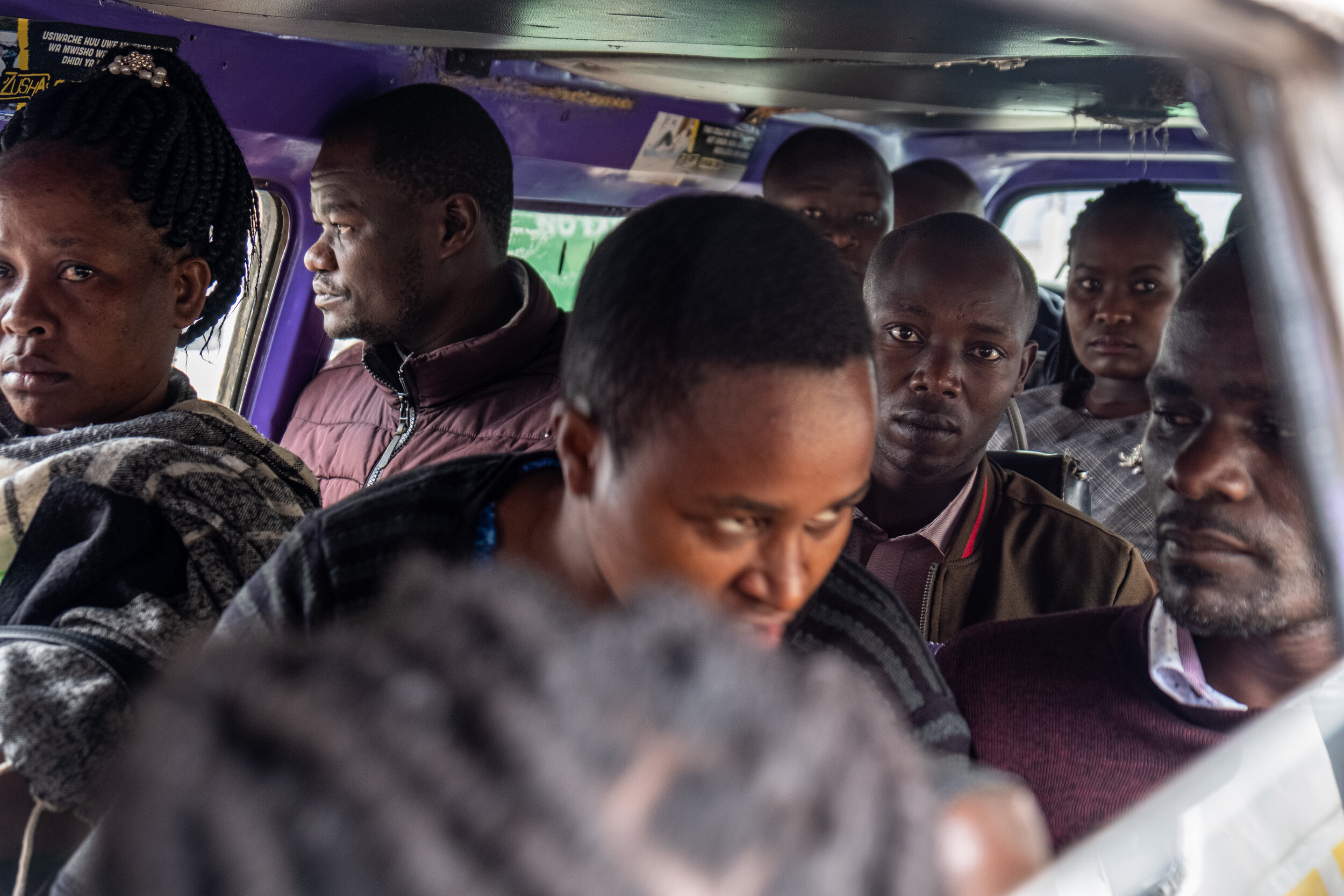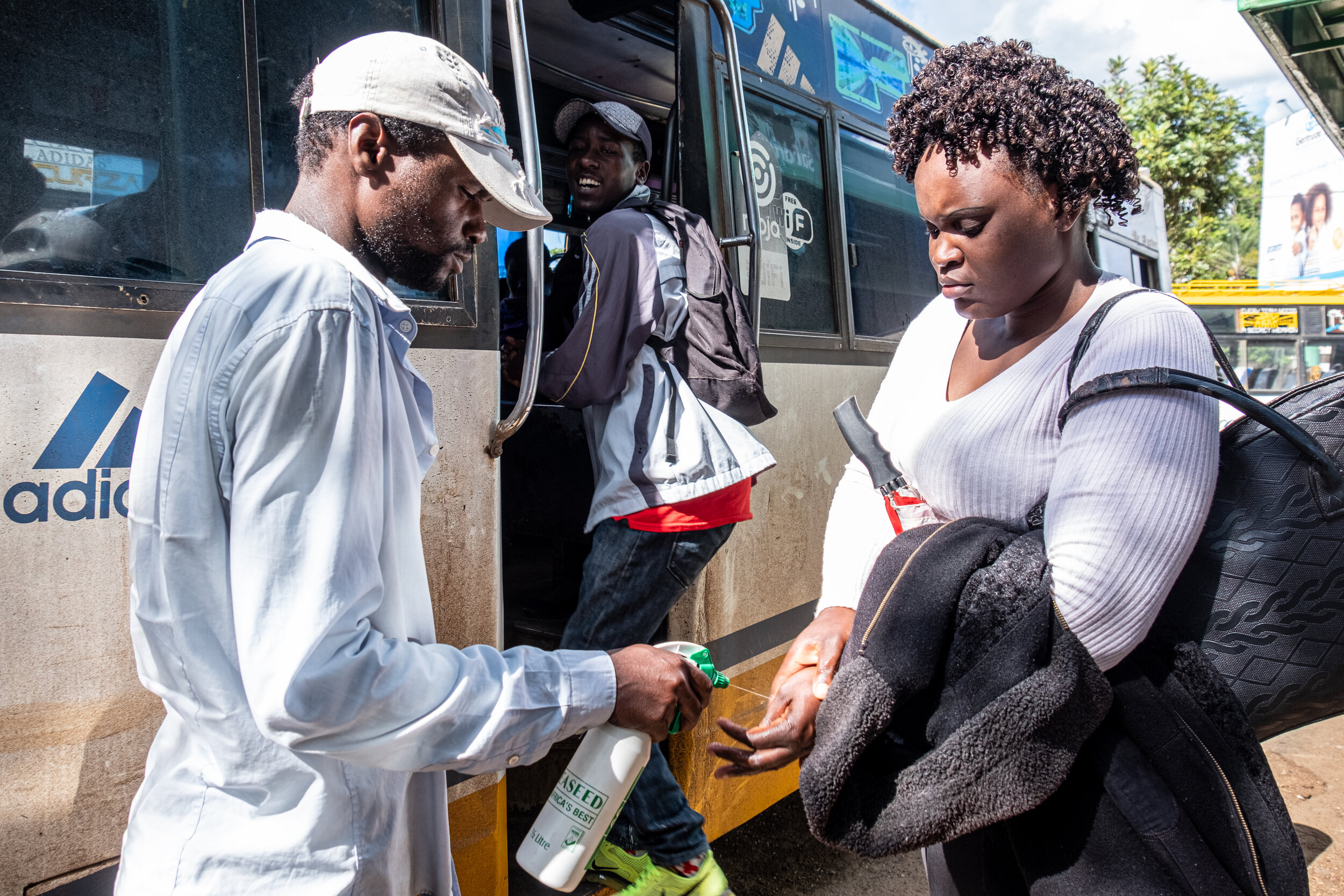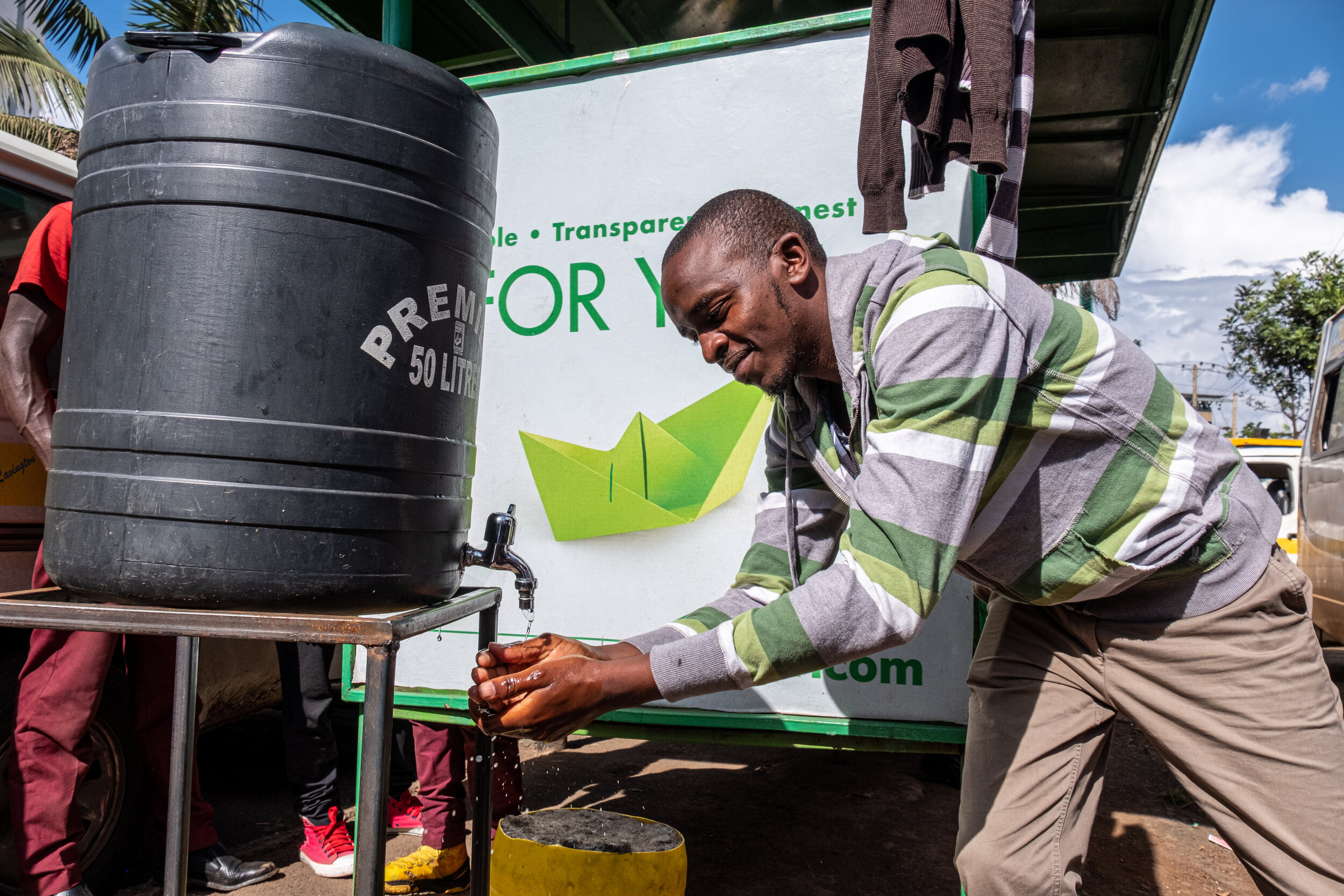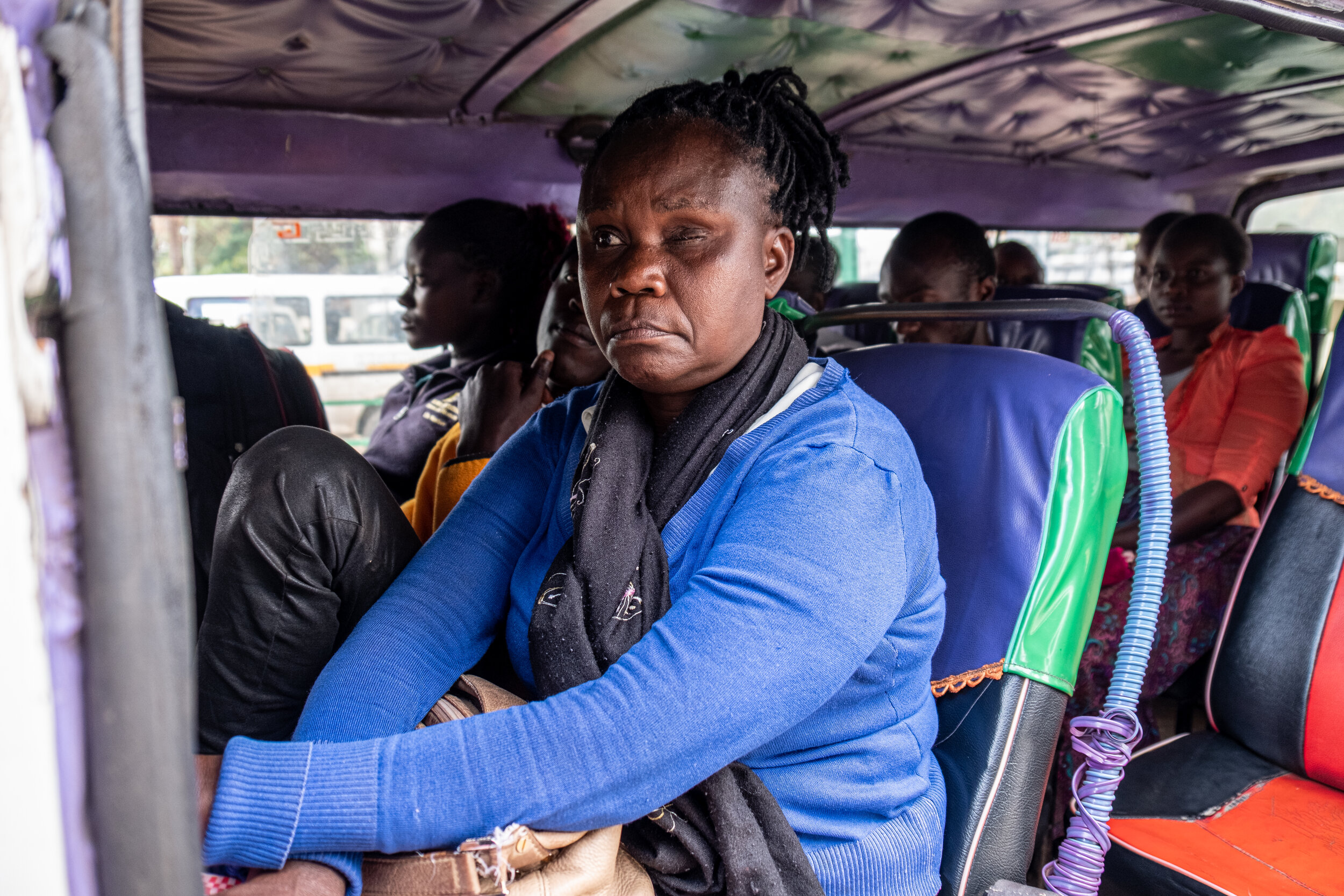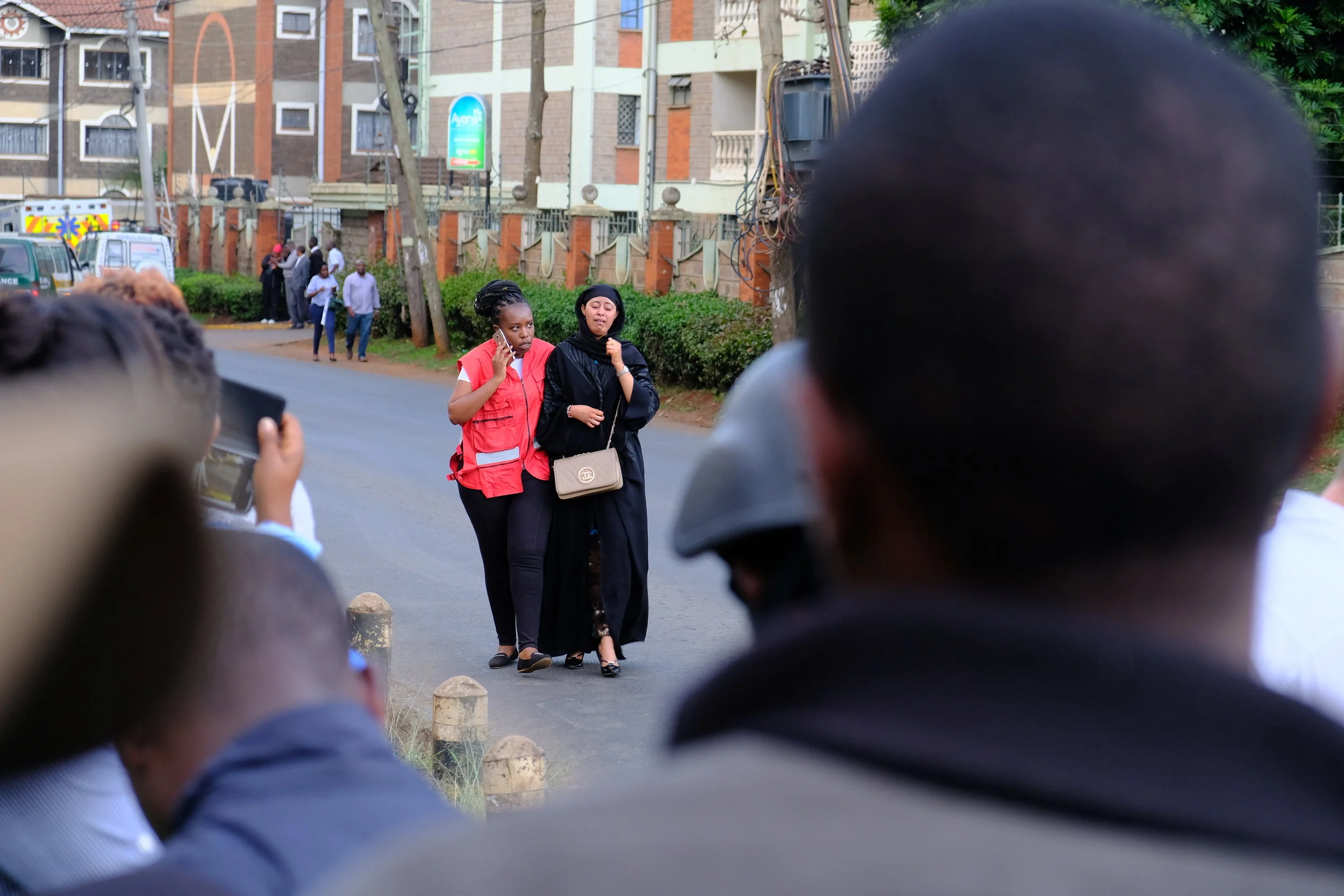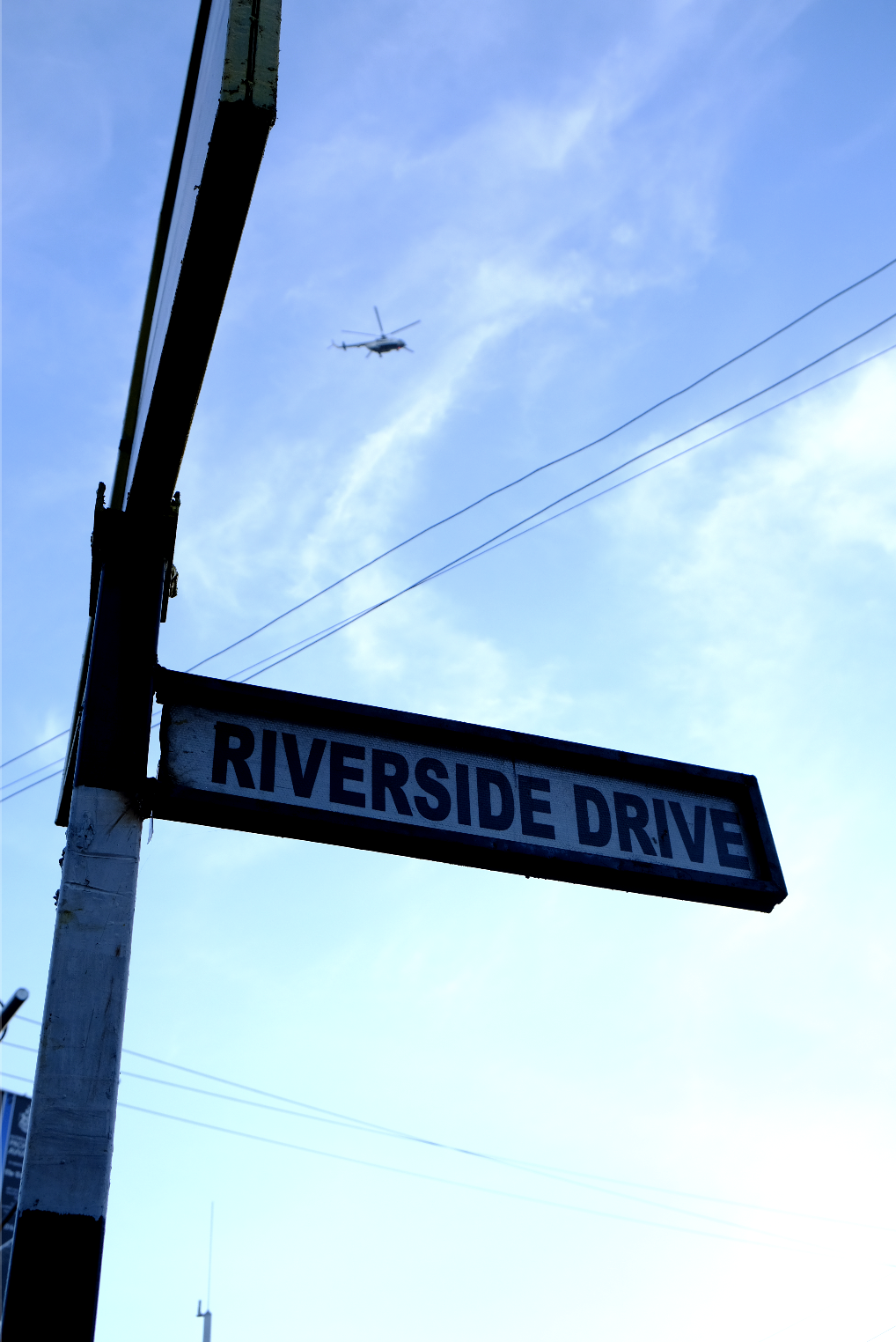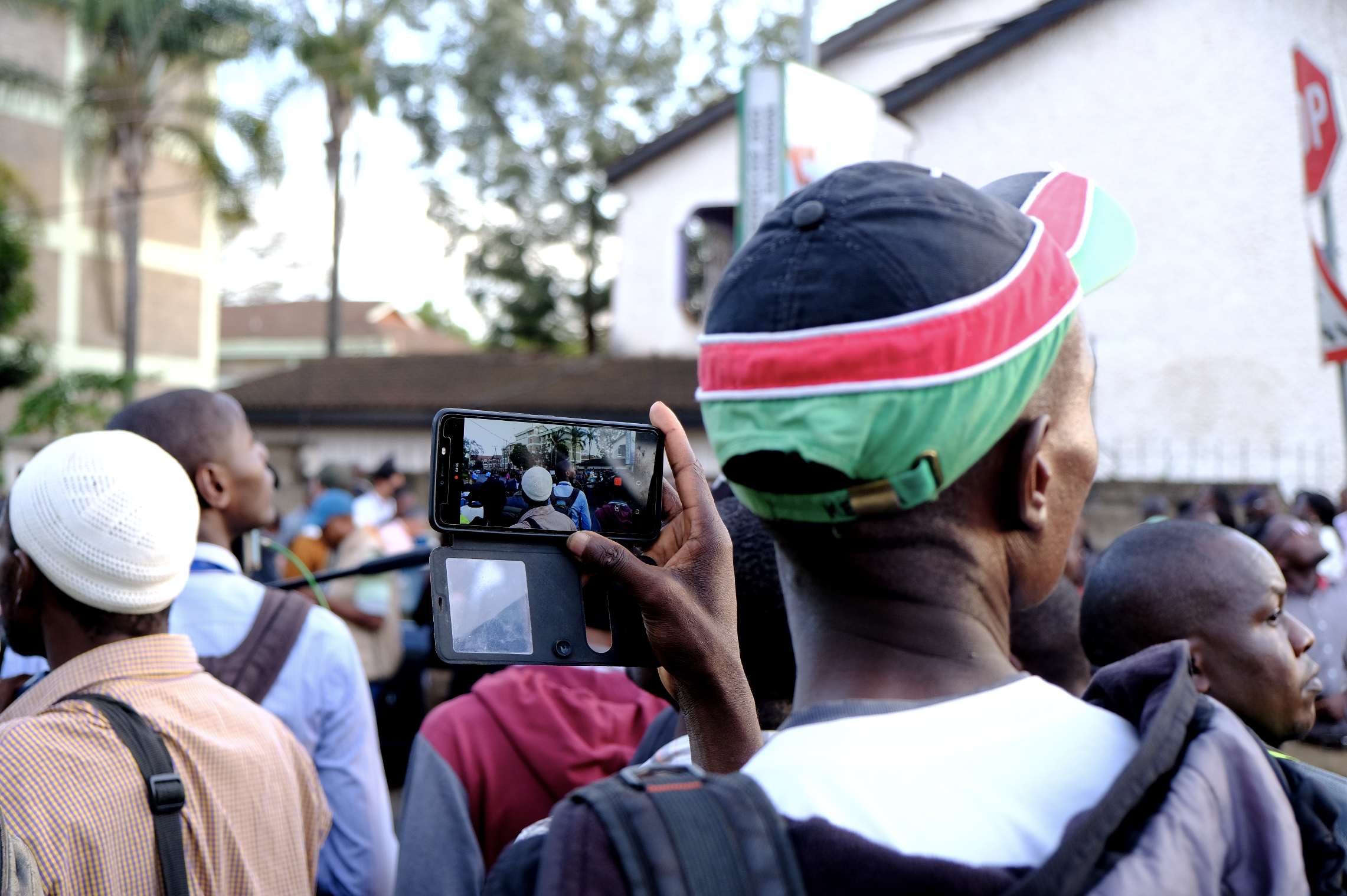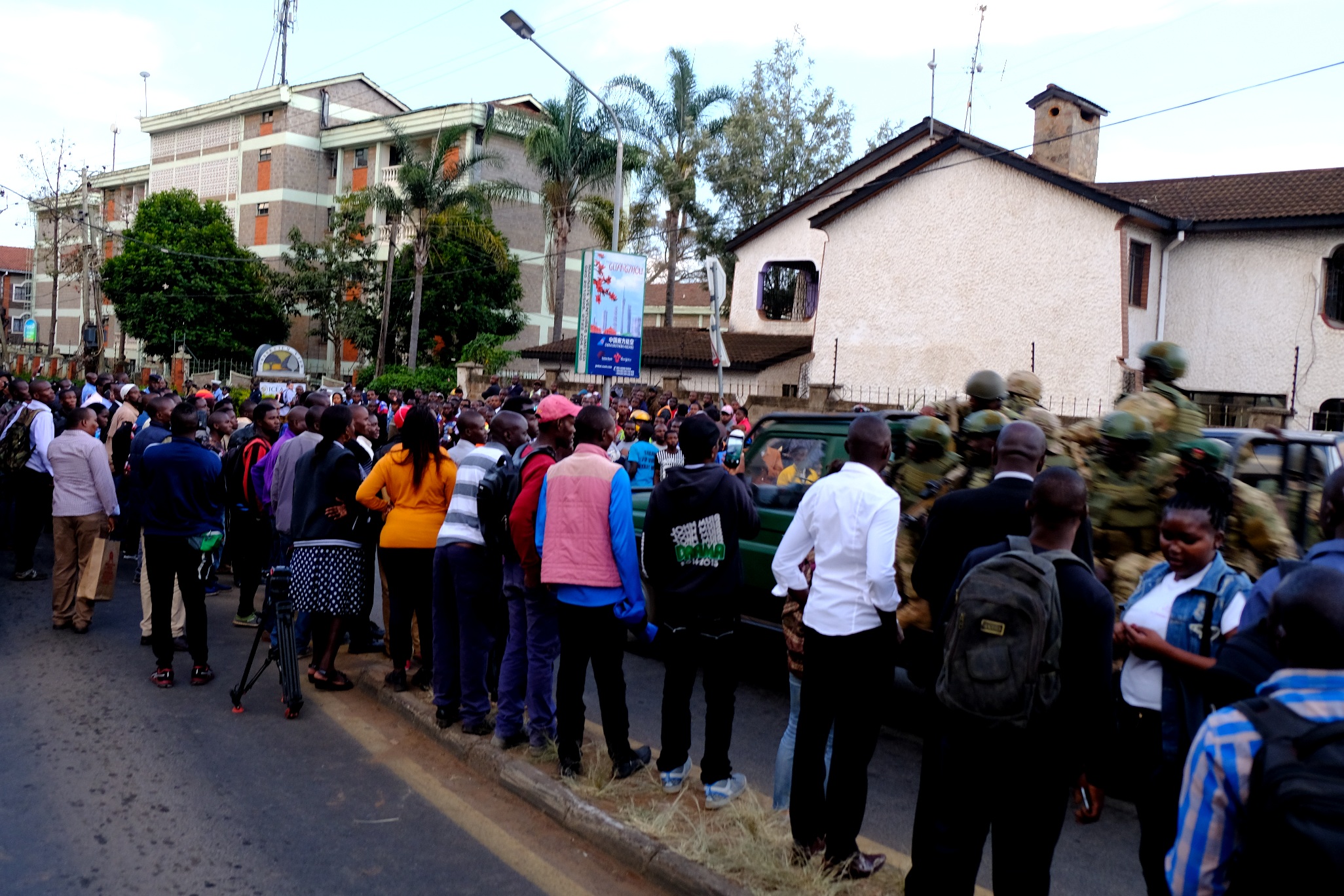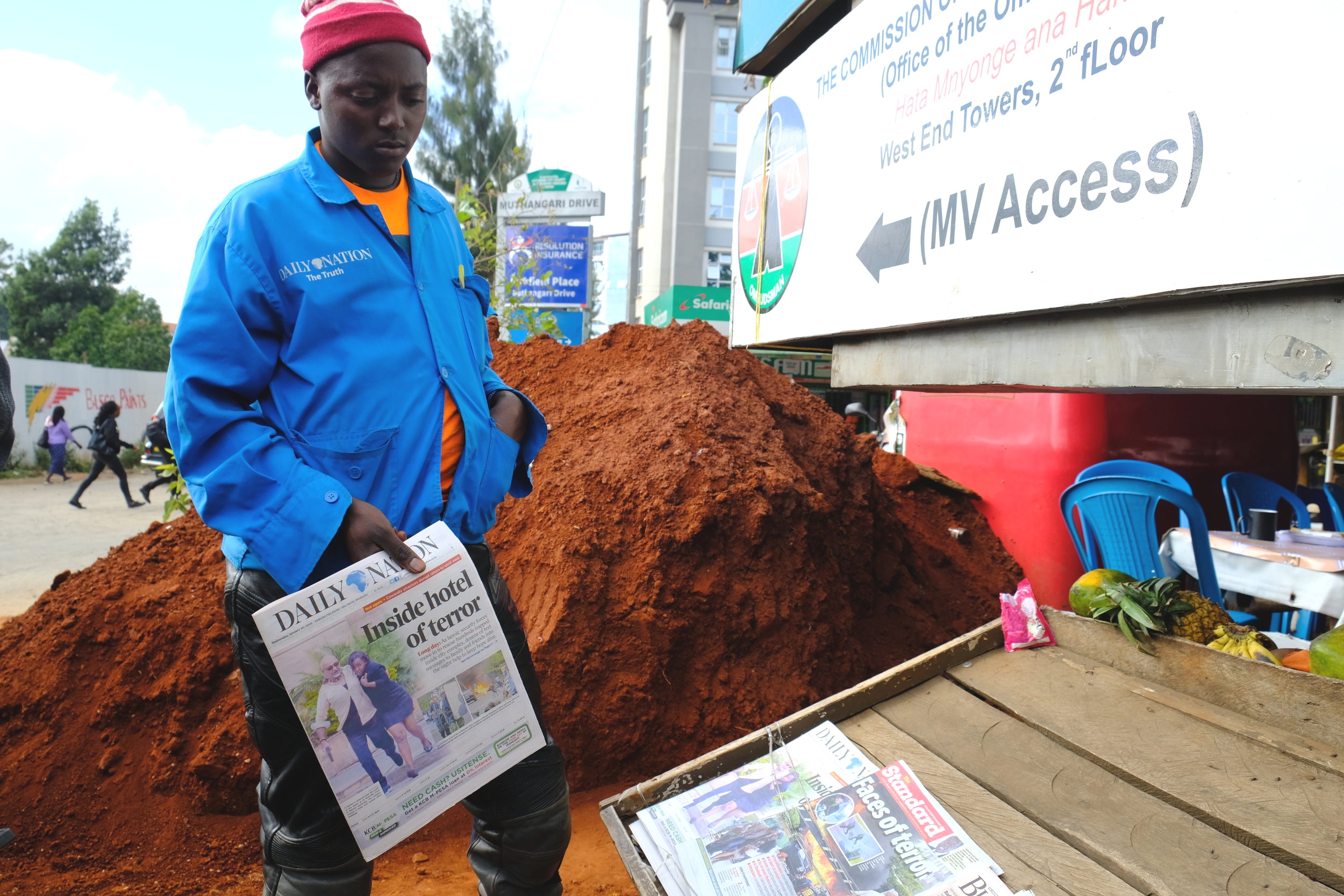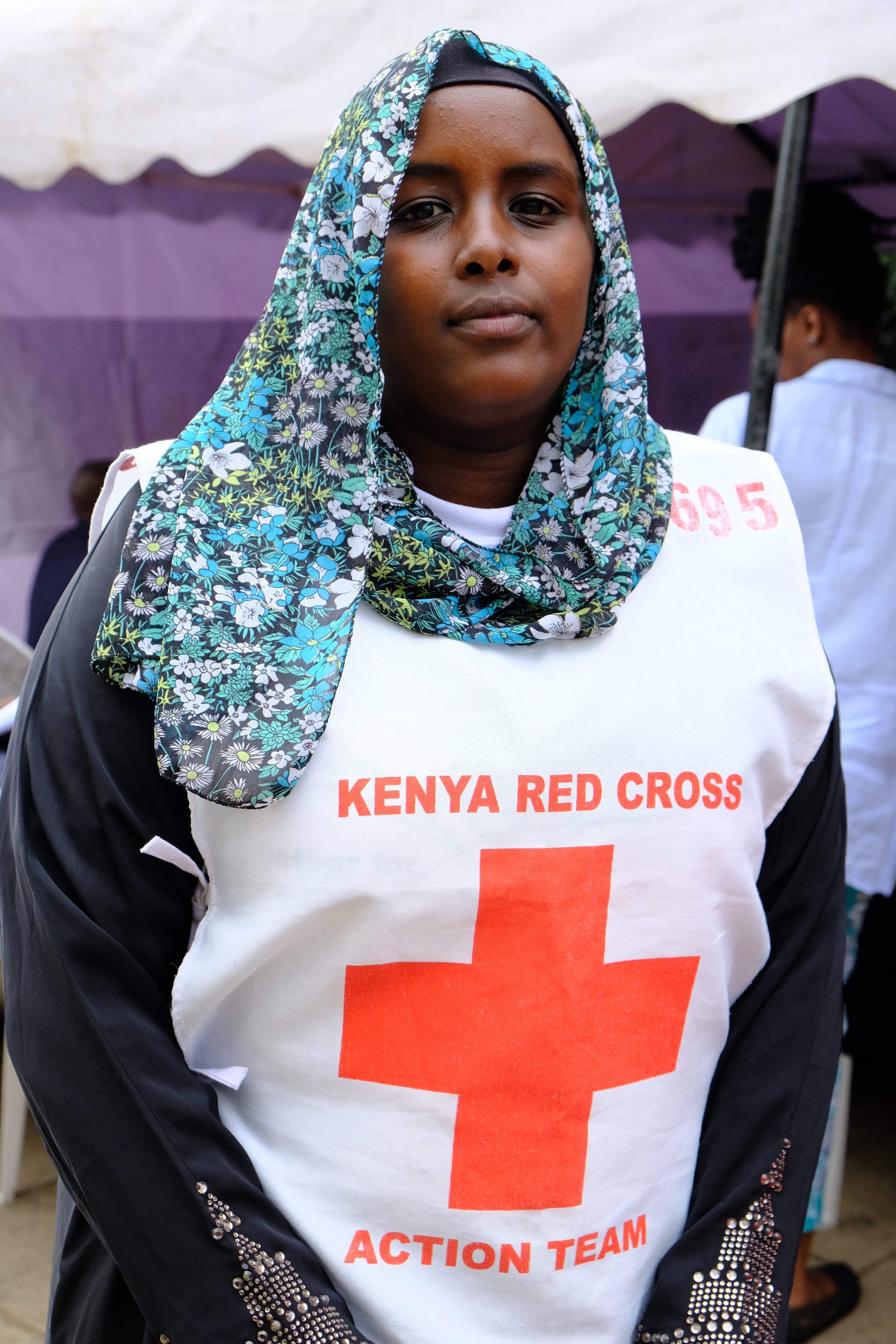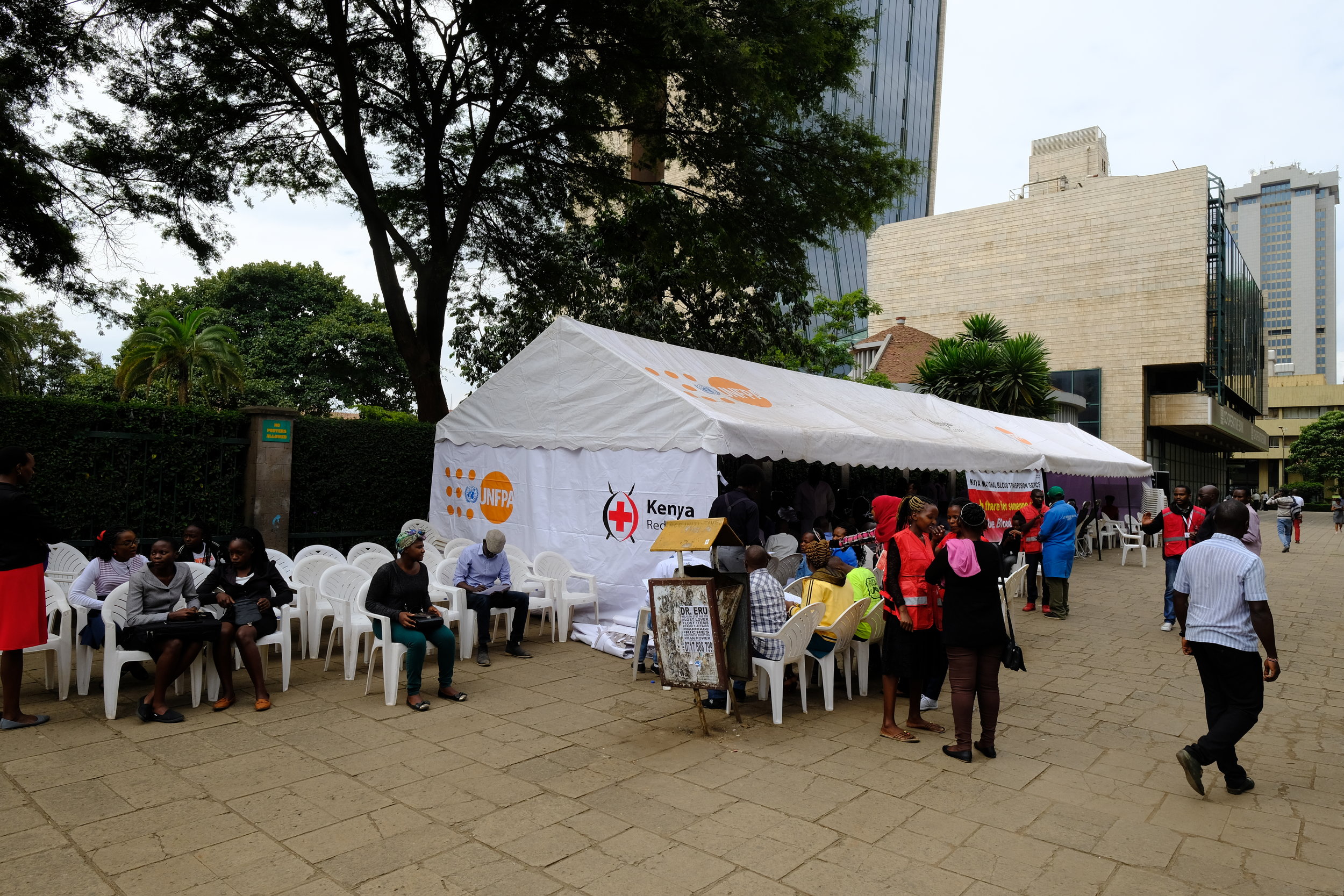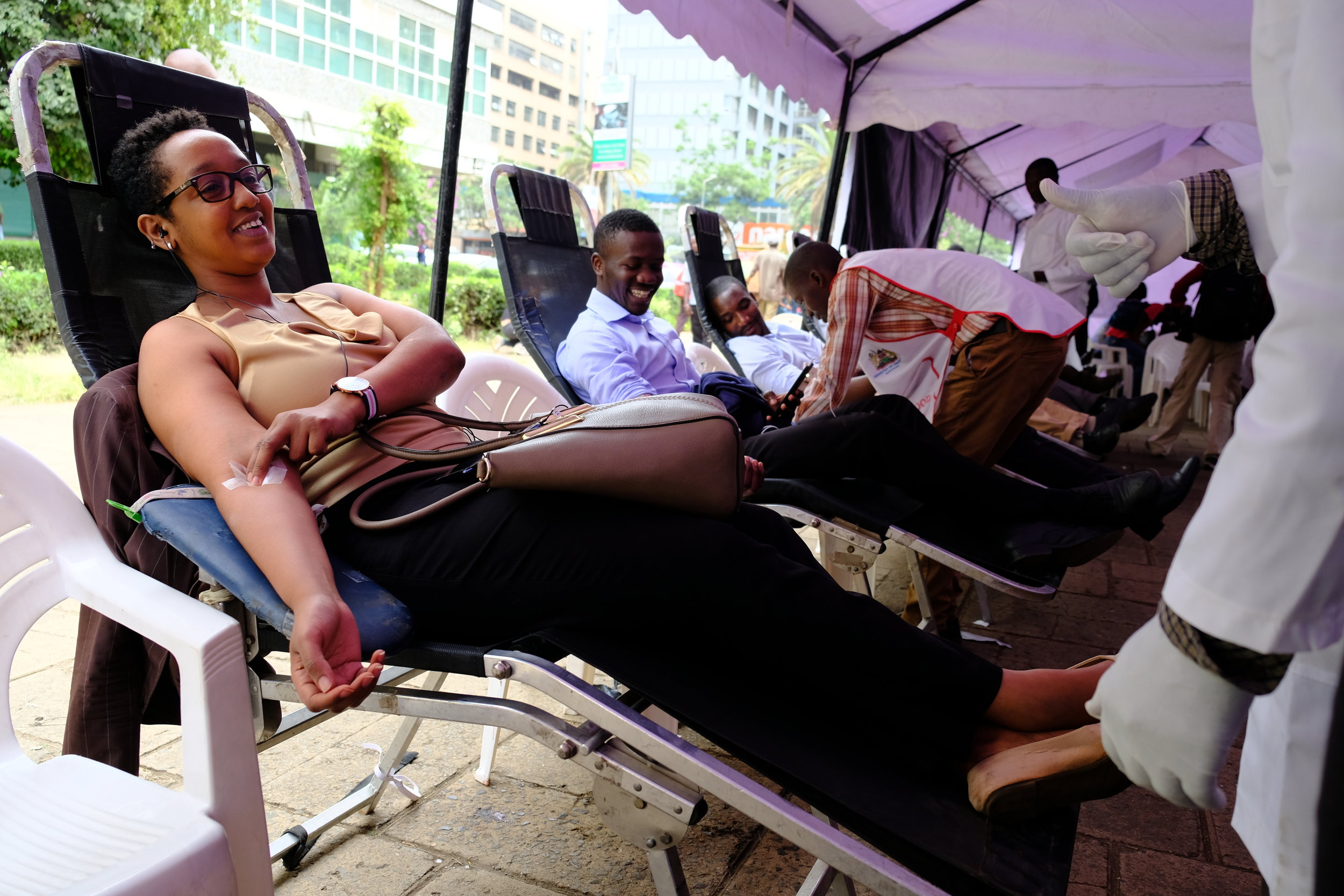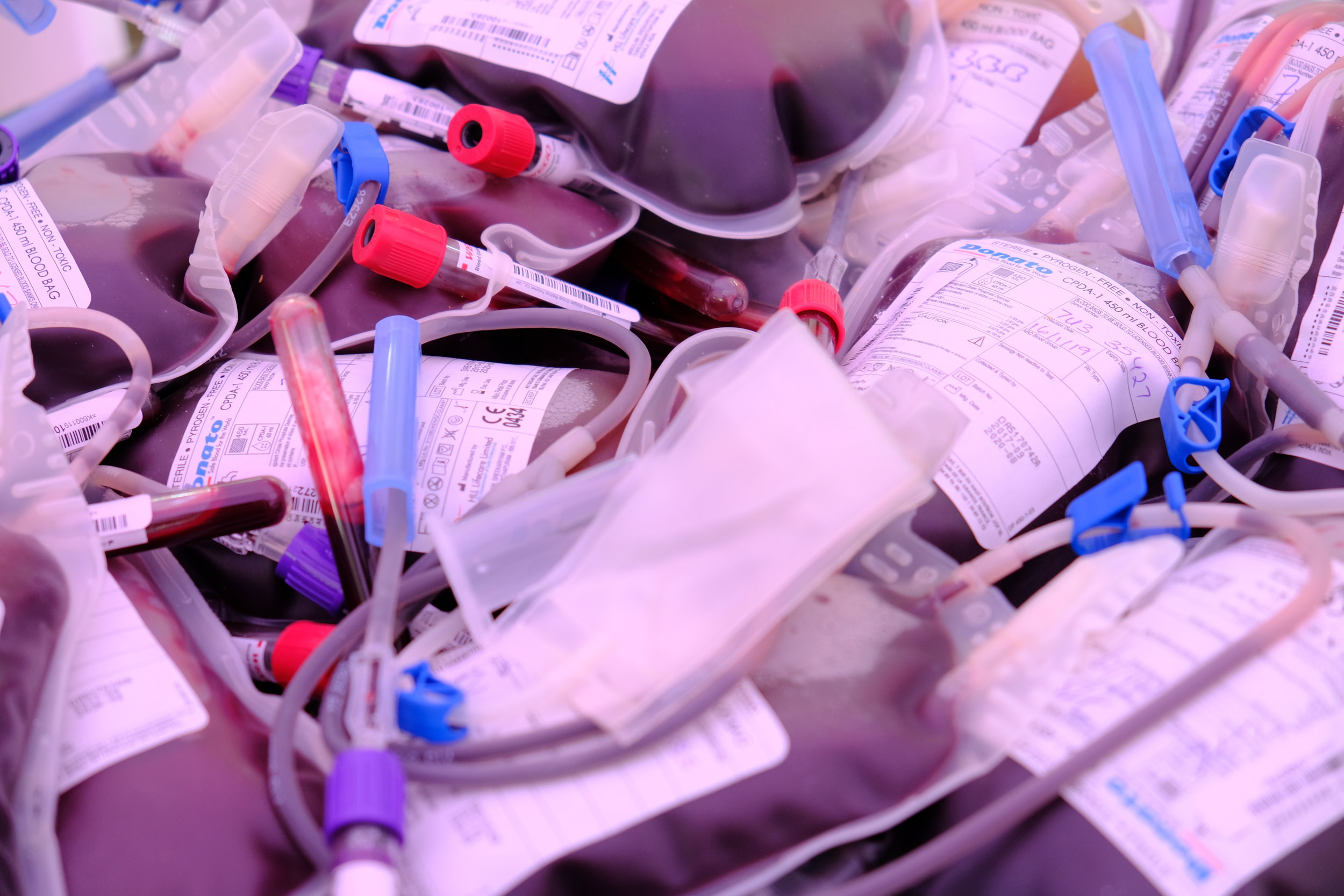After a bit more than 5 years in Kenya, it’s time to focus a bit more on the Western side of the African continent. That’s why Saskia and I, with our daughter Lou (and upcoming second daughter) have moved to Dakar, the capital of Senegal. Saskia will be working as the West Africa Correspondent of Dutch broadcaster NOS, whereas I will still be covering the entire Sub Sahara part of Africa for De Volkskrant.
Nairobi
New work for de Volkskrant: how Nairobi's bicycle riders are fighting for their rights
In the hilly Kenyan capital of Nairobi, a growing number of cyclists are hitting the streets. In monthly bicycle demonstrations, they are demanding more rights and safety. Cyclists hope that the introduction of e-bikes could gain momentum for cycling.
To read my first Volkskrant reportage, click here.
Sex work, China and Nairobi's nightlife: the art of Michael Soi
“I like to let corrupt Kenyans take a hard look in the mirror, to show them how greedy they are. I just can't stand the hypocrisy. If you like going to a prostitute, why shouldn't I make a work of art about it?”
Kenyan artist Michael Soi (1972) doesn’t shy away from controversy. His bright, colored paintings are about political sensitivities and sex work, and he finished a series of 100 artworks on the Kenyan-Chinese relations. But the Chinese are not happy with his statements about their "political interference" in Africa.
To find out more, read the full piece (in Dutch), tap on this link or get a copy of Trouw!
New work for EenVandaag & Trouw: thousands evicted because of "Road for the rich"
The construction of a China-funded toll road has led to the demolition of thousands of houses in a Nairobi informal settlement called Mukuru Kwa Njenga. The demolition painfully exposes the large gap between the rich and poor in Kenya. Through shadowy constructions, high-ranking government officials are said to have used the construction of “the road for the rich“ to drive residents from their land.
For Dutch news programme EenVandaag, I spend a few days with residents of Mukuru Kwa Njenga, who have lost all they have after bulldozers came to demolish their homes. A longer version of the story was also published by Dutch daily Trouw – tap here or on the picture below to read that article.
Kenya's boda bodas: a blessing or a nuisance?
Now that platform companies such as Uber have embraced Nairobi's motor taxis, the Kenyan capital has seen a large proliferation of these 'boda bodas'. There are attempts to replace the millions of polluting motorbikes with electric ones, but not everyone is enthusiastic about these plans.
Read my latest for Het Financieele Dagblad (FD) by clicking on this link.
New work for VPRO: do they have internet in Africa?
“I don’t even think they have internet [in Africa]”
“Maybe the phones over there are nothing more than a cardboard homescreen”
“They can’t even build many houses, let alone an internet transmitter mast”
“There probably isn’t any wifi”
“Maybe they don’t even have a phone”
The answers these children gave when they were asked about how they would imagine what the internet in ‘Africa’ would be like, say a lot about how Dutch people (and their kids) perceive the African continent.
Luckily, there are TV shows like VPRO's ‘De Dikke Data Show’ (about big fat data and the worldwide web). They asked me to tell something about how people in Kenya use internet.
And so I interviewed Nairobi-based Nahla, who follows online classes on her laptop (but also uses it to watch Minecraft videos), and Douglas, who lives near Oloitoktok with his cattle and reads the news and chats using his smartphone.
The video above is just a small snippet - to watch the whole episode of De Dikke Data Show (and also see how the internet is different in China), click or tap here.
New work for Trouw: a story about public toilets in Mathare
Where do you go to the toilet if you live in an informal settlement (aka a slum)? Lidia, who lives in Nairobi, showed me around her Nairobi neighborhood Mathare and the sanitation situation there. “A house with its own bathroom is my big wish. But I fear this will remain a dream. ”
Mathare consists of small houses made of stone or clay and wood, covered with corrugated iron. There are some beds in Lidia’s room, one corner is meant for cooking, and her belongings are stacked from the ground or are hanging from hooks from the ceiling. Next to the door stands a blue bucket with a lid, her toilet for the night.
“During the day we go to the public toilet,” Lidia says, “about a five minute walk from here, but at night we use this bucket. Despite the lid, the house smells unbearable, especially when one of us has diarrhea again. And so I get up early in the morning, and take the bucket to the river to empty it.”
“As you can see and smell, the public toilets are not cleaned daily. But it's better than nothing. The worst thing about communal toilets is that moment when I have to urgently and there is a line at the entrance.”
"I was born and raised here, my parents live here, it is my home. We could move to the countryside, but what do you do there if you don't own any land? Moreover, education is worse there than here in Mathare. I want to offer my children the chance for a better life, hopefully in a house with a toilet. ”
Words by Ilona Eveleens, pictures taken by me on assignment for newspaper Trouw in Mathare. Click here to read the whole story, on the Trouw website.
New work for Hivos: renewable energy businesses
New work for Hivos and their ENERGIA program, for which they are engaging women in starting renewable energy businesses. Providing access to energy in remote areas in western Kenya, they claim, should decrease poverty and improve economic and human development. In the slideshow above, you can see some pictures I took of Joyce, Beatrice, Ruth, Adelaide, Everlyne, Mauline and Anjeline in their shops, where they sell charcoal briquettes, cookstoves and solar lights.
On assignment for newspaper Trouw: Kenyan teachers become farmers to beat Covid unemployment
On my first assignment for Dutch newspaper Trouw, I traveled to ‘Vicodec’, a school in Kenya’s Ongata Rongai. Here, the teachers have picked up farming as they are out of work - because of Covid, schools are closed for the rest of the year. You can read the piece by Ilona Eveleens in full by following this link to the Trouw website.
In Kenya, schools are closed until January next year. The decision, made by the government as a measure to control the spread of Covid-19, proves to be a large challenge for private schools. Where state-run schools still get funding to pay for rent and salary, private schools rely on fees paid by parents. And so many private schools are in financial trouble, sending their staff members on unpaid leave.
Just south of capital Nairobi, in a town called Ongata Rongai, the Victory Community Development Center used to offer education for around 560 children who mainly live in the informal settlement called Kware. But because of Covid-19, children are forced to stay home, and so the school had to get creative in order to survive. Classrooms were transformed into chicken coops, and the gymnastics field and playground have been plowed so that the teachers can grow crops and keep livestock.
“We are getting some donations from Kenyans and a family in the US,” Vicodec’s head teacher Rose Charagu says, "but it’s not enough to pay our staff. With farming and keeping animals, we produce food to distribute to the community, as well as to generate at least some income.” And so the school's IT teacher and the hair & body care teacher work side by side on the land, while their colleagues care for chickens inside the school’s classrooms.
“We try to adapt,” Charagu concludes, "to not just sit still and wait for January. We are in control of the situation now, that feels good.”
A wedding in Kenya: Marieke & Silvere
Nairobi-based friends Marieke and Silvere asked me to take their wedding photographs. They married on the Kenyan coast, during a fabulous four-day wedding party (before there was any COVID around). You can see some of the photos above.
Podcast De Dag: a talk about COVID19 in Kenya
Riding Kenya's matatus amid new coronavirus measures - New work for The Guardian and Al Jazeera
New work for The Guardian & Al Jazeera: With limited resources and limited Intensive Care Unit beds, African governments are looking to prevent the spread of the corona virus as much as possible. In Kenya, all international flights are suspended, and a curfew from 9pm to 7am is in place. The country is known for its ‘matatus’, minibuses that often transport more people than they have seats. In the wake of the coronavirus, Kenyan authorities have issued measures to be taken by matatu companies - fears are that Kenya's informal public transportation buses that carry millions of Kenyans on a daily basis is the weak link in the fight against corona.
To prevent contamination, Kenyan officials have said that 14-seater matatus will carry only 8 passengers, and vehicles that carry more than 30 passengers will carry not more than 60% of their capacity. But people have to get to work, as Kenya is not yet ‘in lockdown’, and many Kenyans have work that cannot be done from home. For some, a day without work even means a day without food.
And so, among many drivers and matatu touts who are not yet taking precautions, some matatu staffers in Nairobi’s Westlands matatu terminal are wearing face masks as they disinfect their buses and clean hands of passengers. “Many people will not be able to afford to go to the hospital. And if you can’t seek medical attention, you will die. We are taking every measure seriously.”
Click here to see my photos on the website of The Guardian: ‘Minibuses keep Kenya’s wheels turning amid Covid-19 fears – in pictures’
Click here to see my photos and words for Al Jazeera: ‘In Pictures: Riding Kenya's matatus amid new coronavirus measures’
#RiversideAttack coverage of al-Shabaab attack in Nairobi
Yesterday and the day before yesterday, terrorist organization al-Shabaab carried out a large-scale terror attack on the DusitD2 hotel and business complex in Nairobi, Kenya. At least 21 people were killed when Somali militants stormed the compound.
RTL correspondent Saskia Houttuin and I could hear the explosions from where we were, about two kilometers away from the Dusit complex. While the attack was still ongoing further down the road, we reported from behind the security cordon.
The following day, security forces and terrorists were still fighting. Saskia and I visited the August 7th Memorial Park in Nairobi’s CBD, where the Kenyan Red Cross collected donated blood for the victims of the attack. Later on, we also visited the city’s mortuarium and talked to Moureen, who had been inside the complex during the attack for over 13 hours.
Above, you can see some of the pictures I took over the last two days. Below, you can find publications of Saskia and me.
Saskia reported for BNR Nieuwsradio on the second day of the attack;
On Twitter, Saskia and I reported over the course of the last few days, tweeting updates in a thread about the attack;
De Telegraaf newspaper interviewed me on the evening of the attack. The article also features 8 of my pictures and videos;
Here, you can watch our Facebook Live report on the RTL Nieuws page, about the blood transfusions for the victims of the attack;
In the broadcast of RTL Nieuws on the evening of the attack, we made a small report from behind the police cordon, filmed with an iPhone;
For the 7.30pm RTL Nieuws broadcast of the next day, we filmed a reportage about the aftermath of the attack. You can watch the whole broadcast here, or see the video below.
